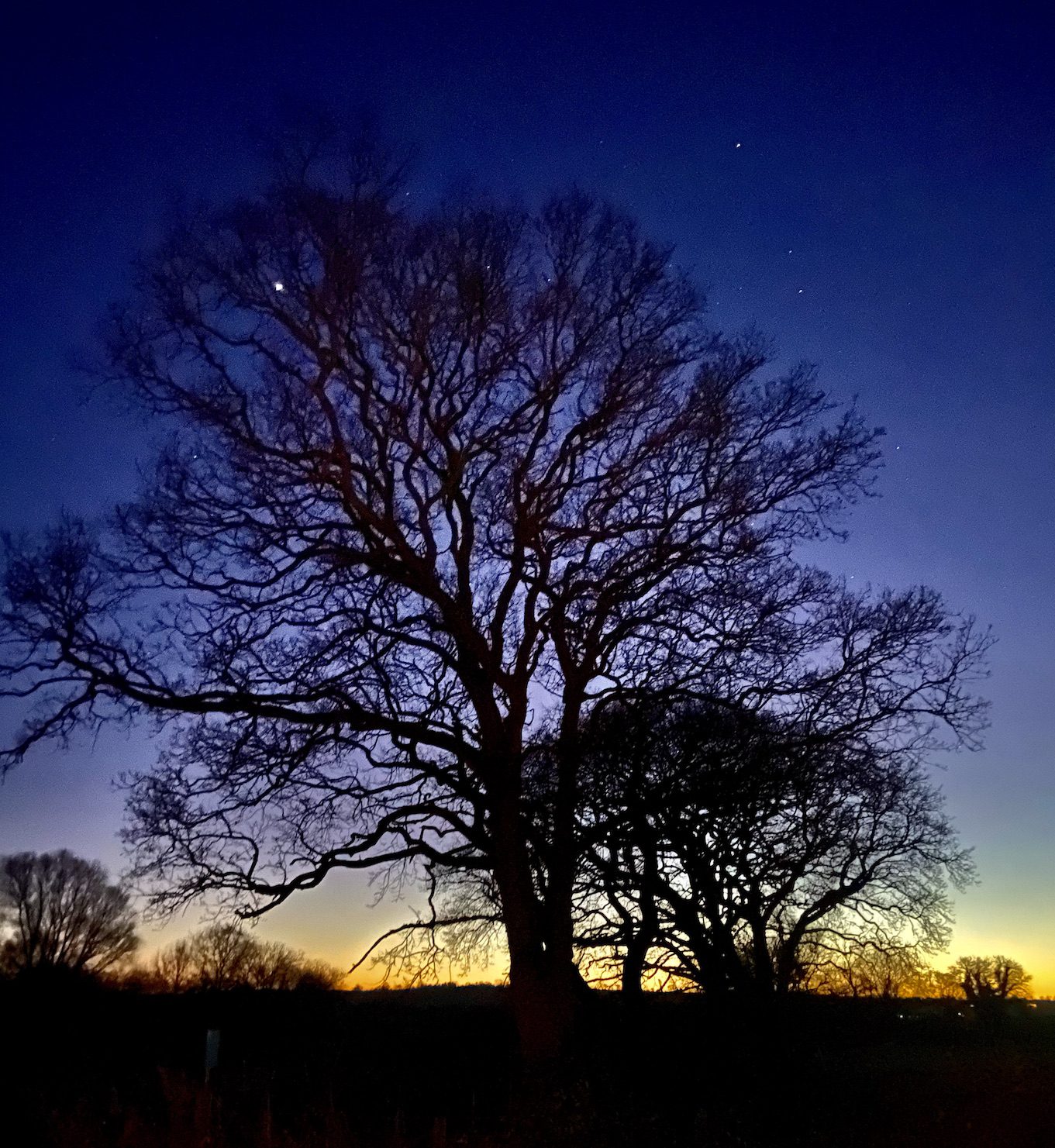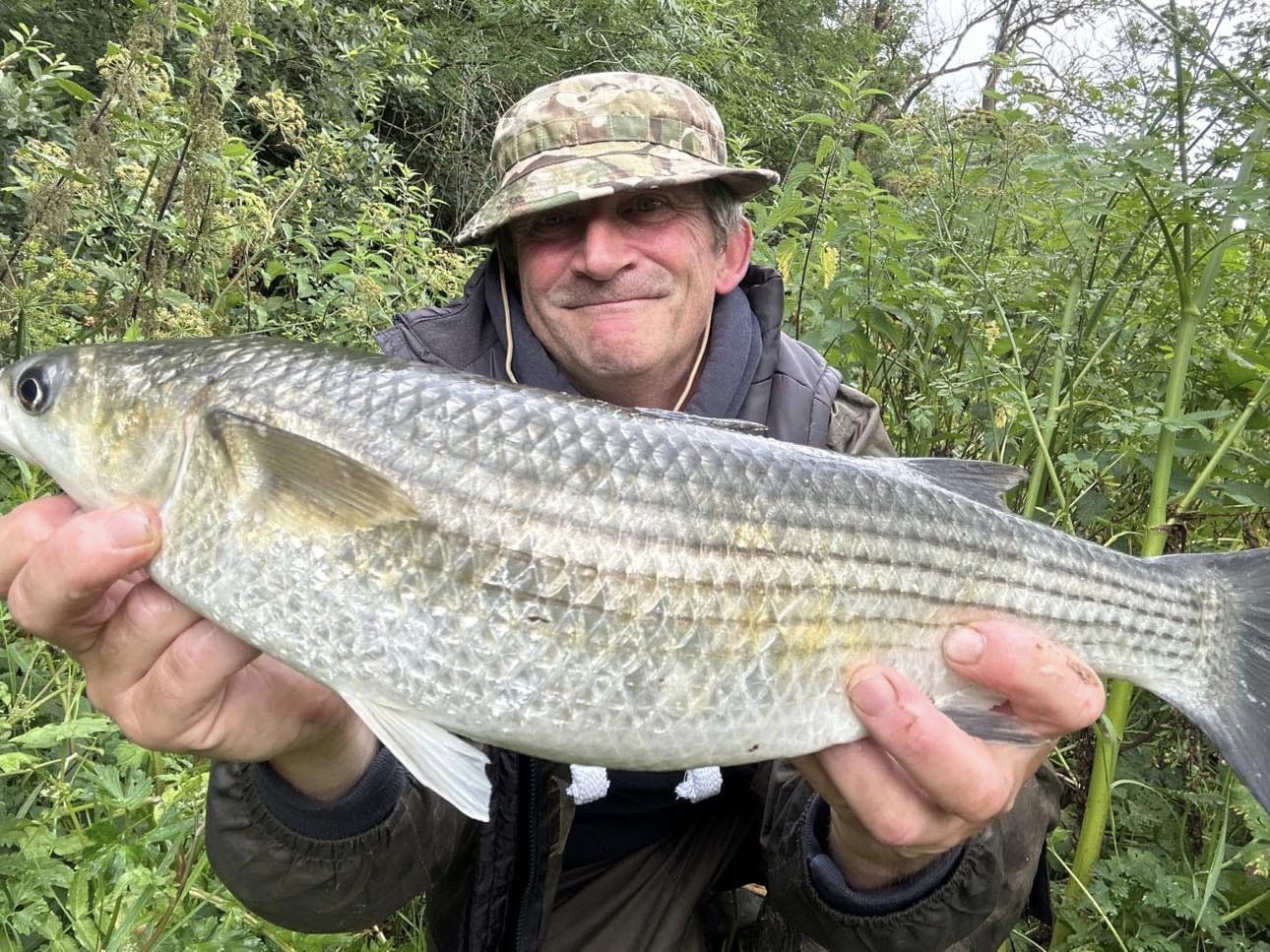
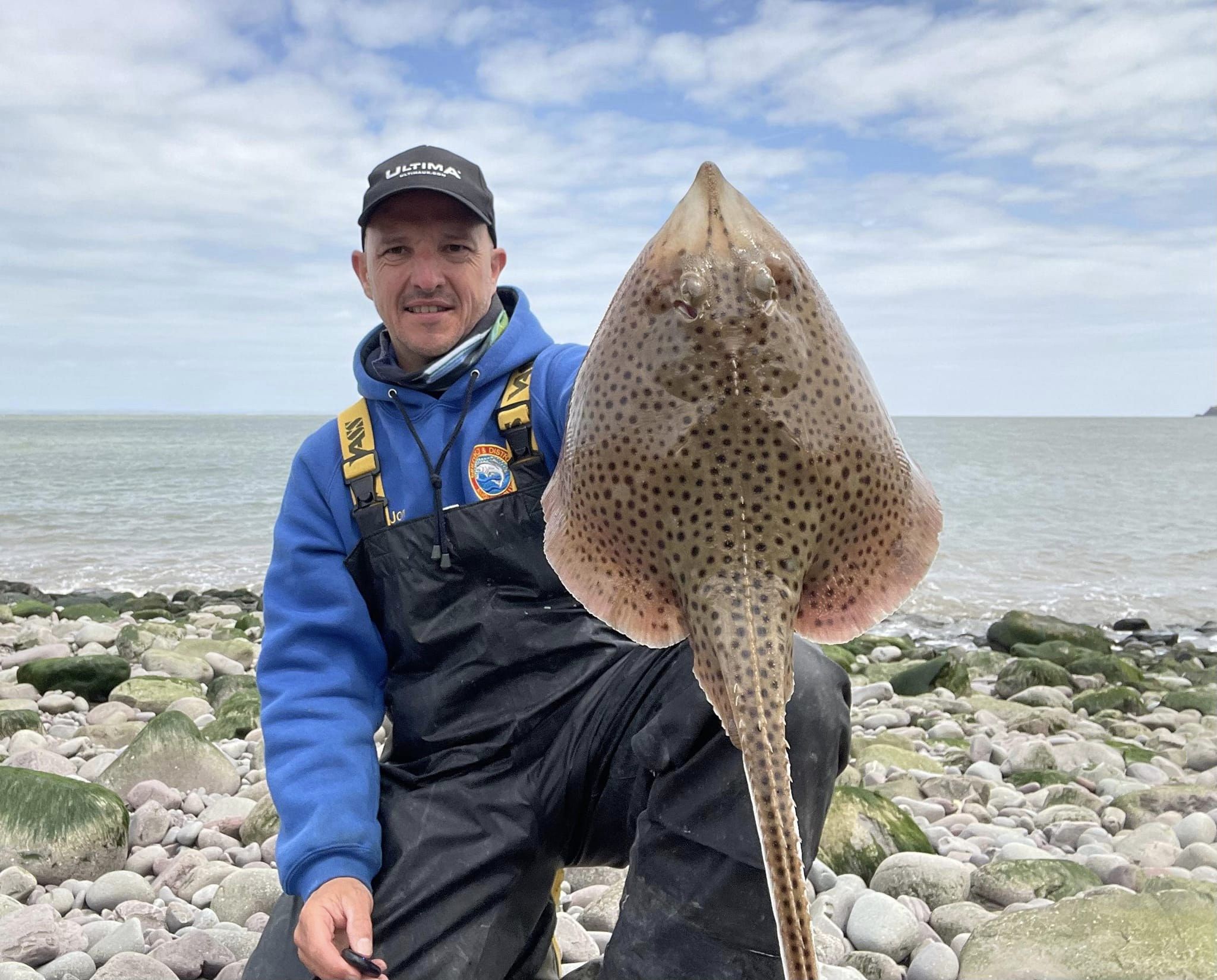




Combe Martin SAC are hosting an Open Lure Fishing Competition with High Street Tackle Ilfracombe. If the event is well supported it is hoped it will become an annual event that can be built upon each year if the appetite is there to share the wonderful lure fishing for bass that can be enjoyed along Nortb Devons coast line. The coast line offers a wide variety of marks to target bass with a wide range of lure tactics proving successful.
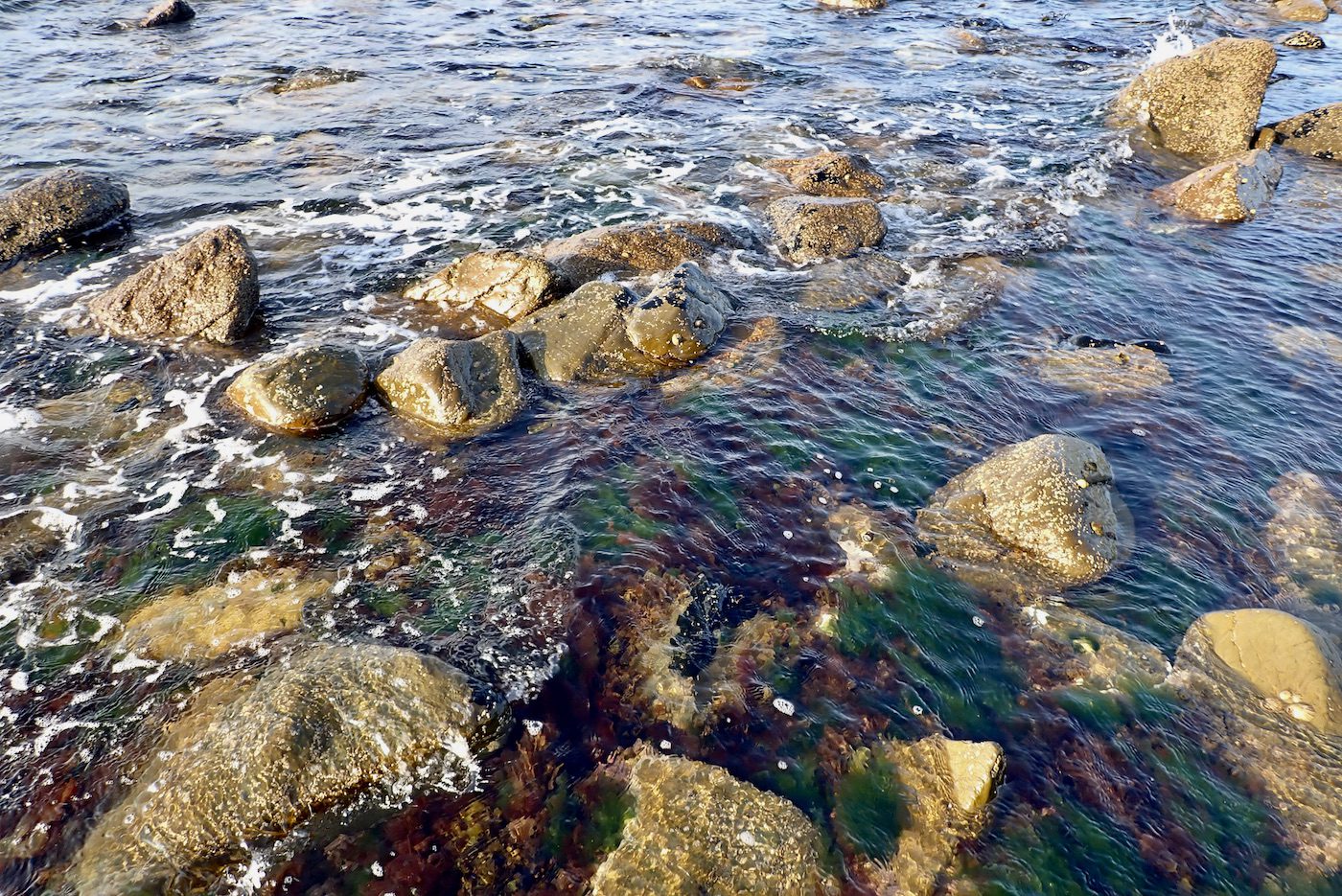
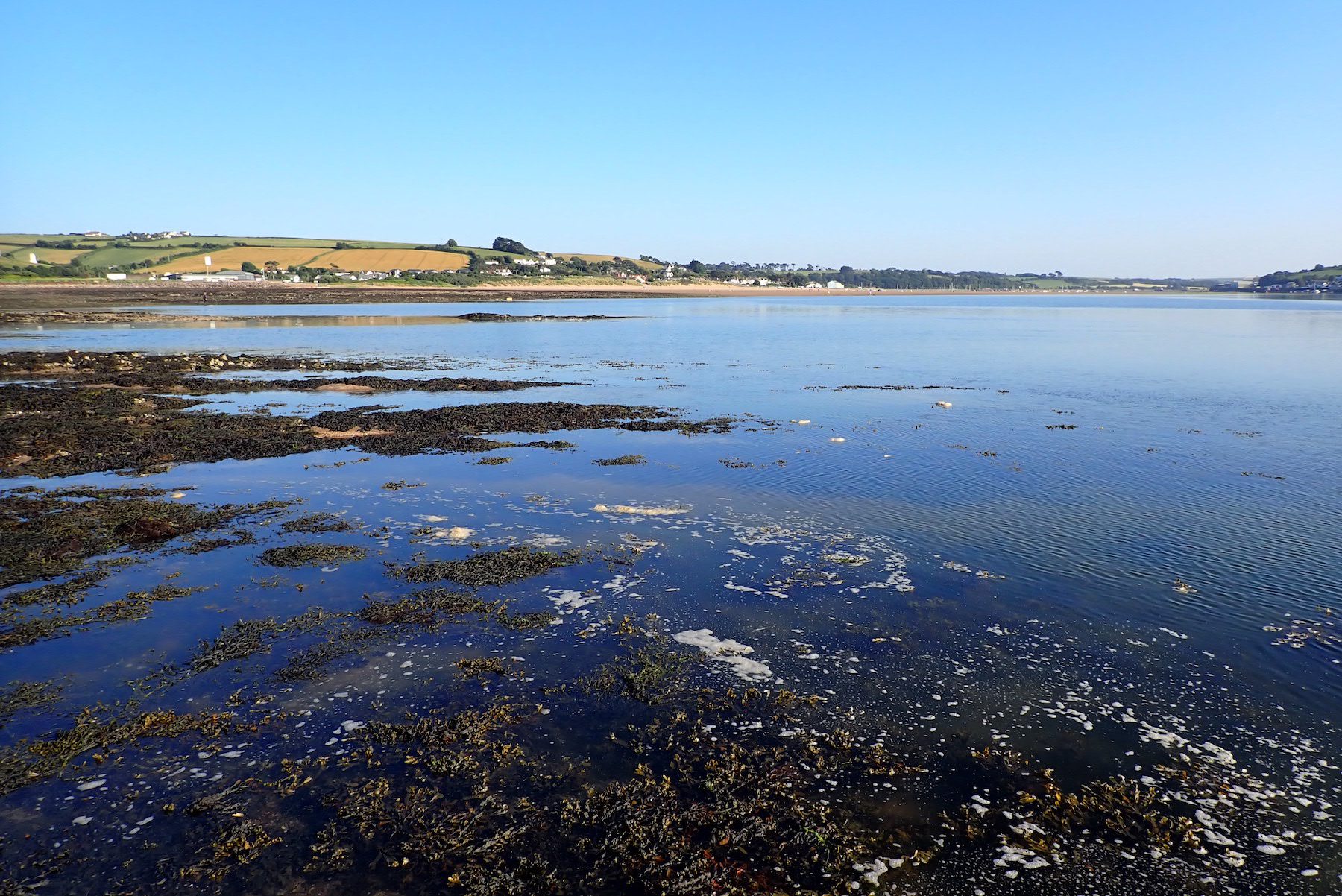
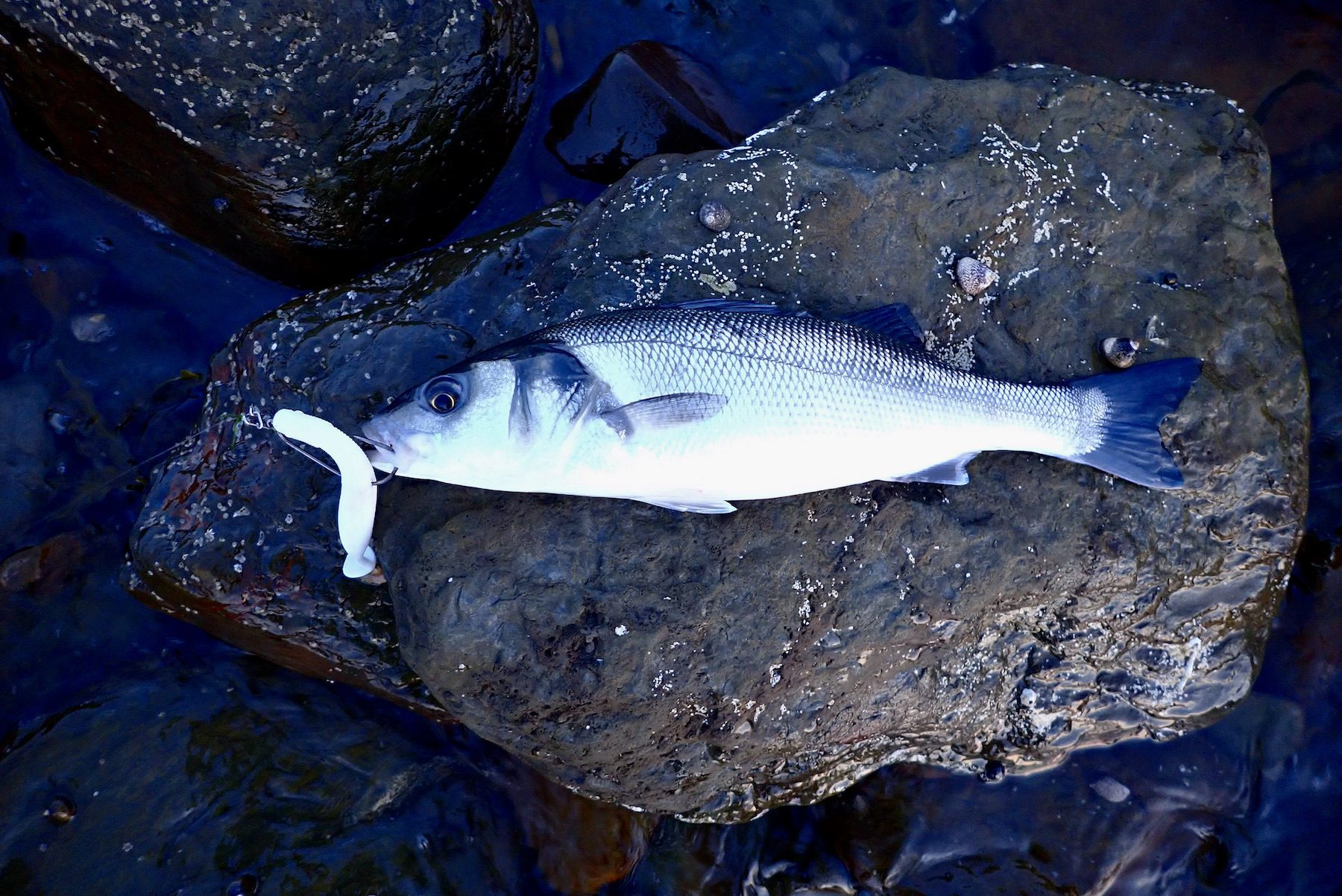
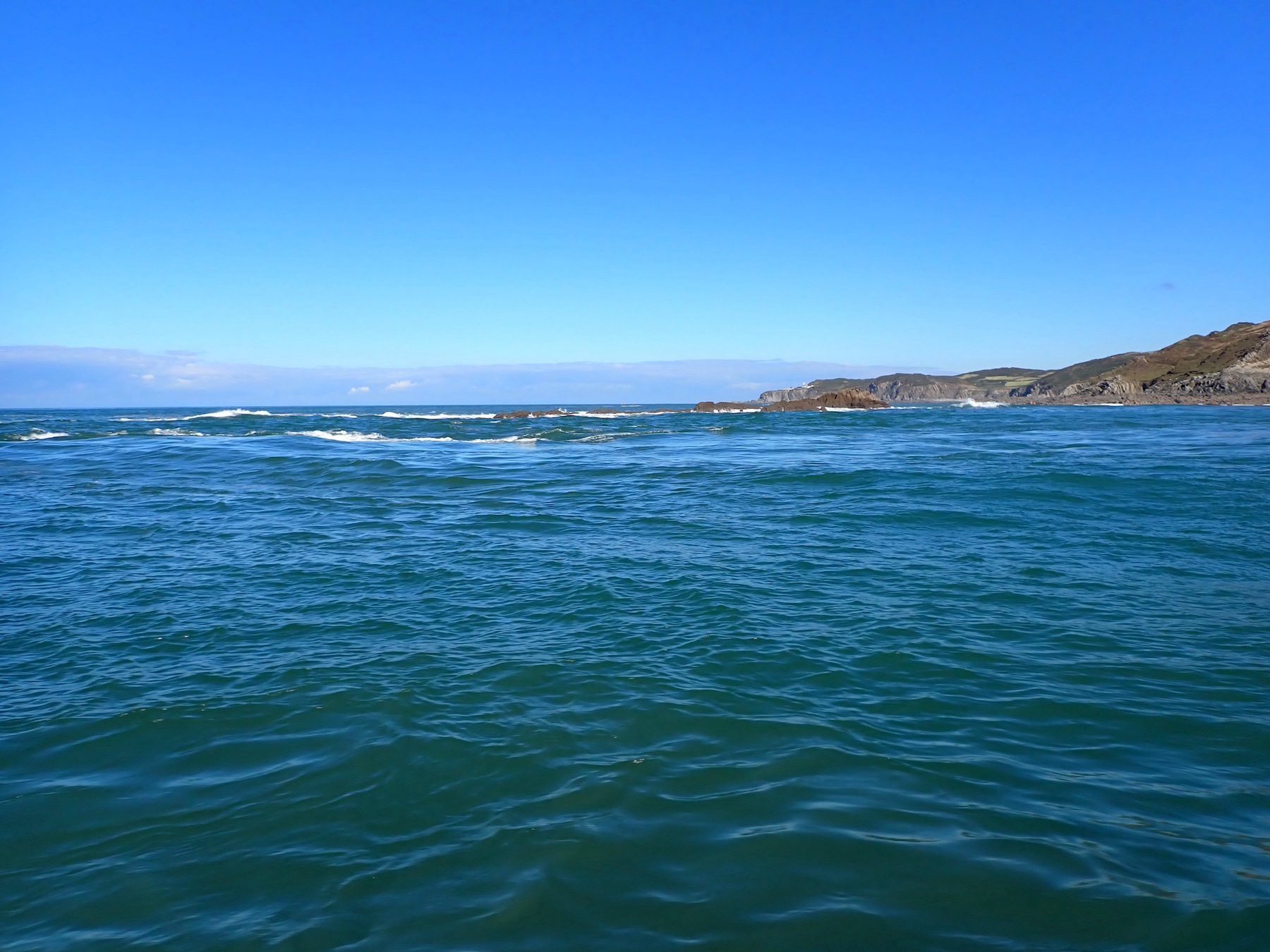
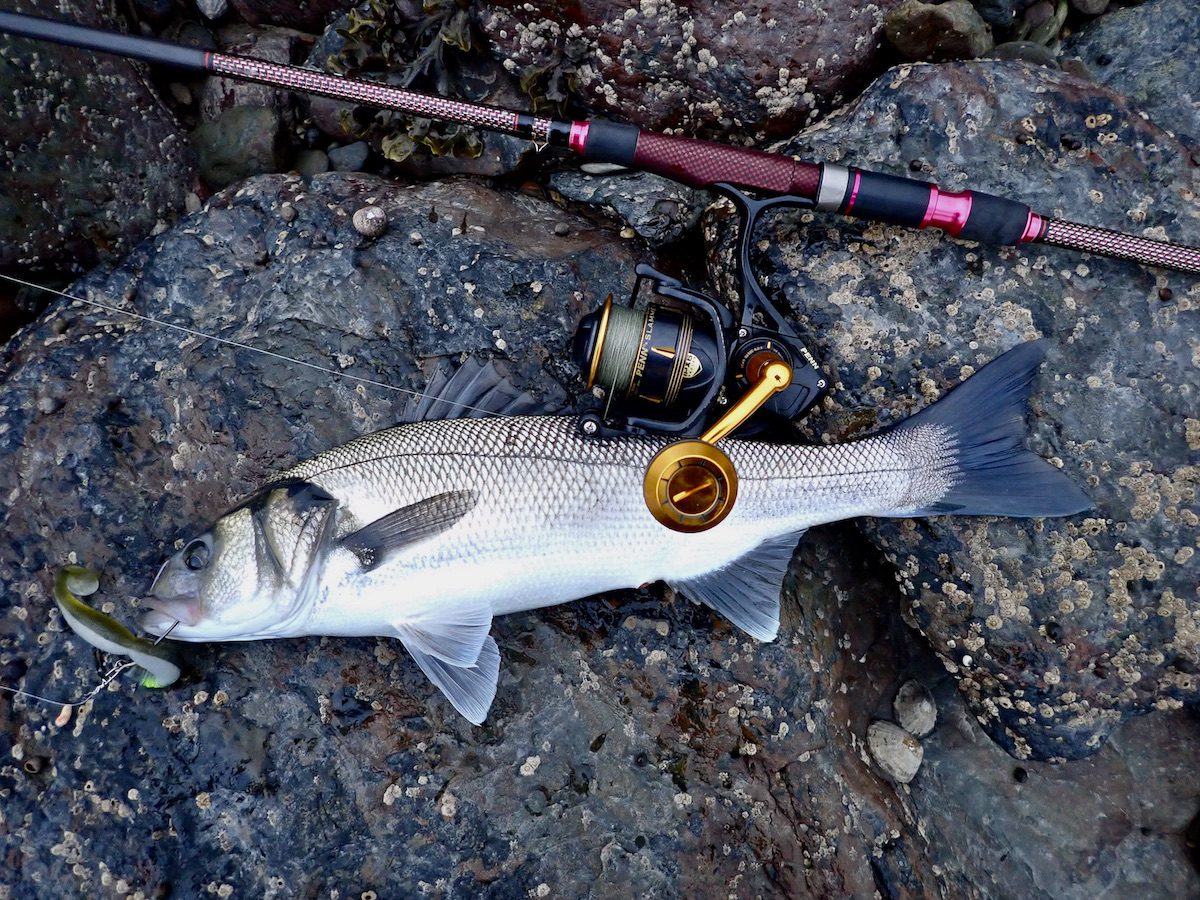
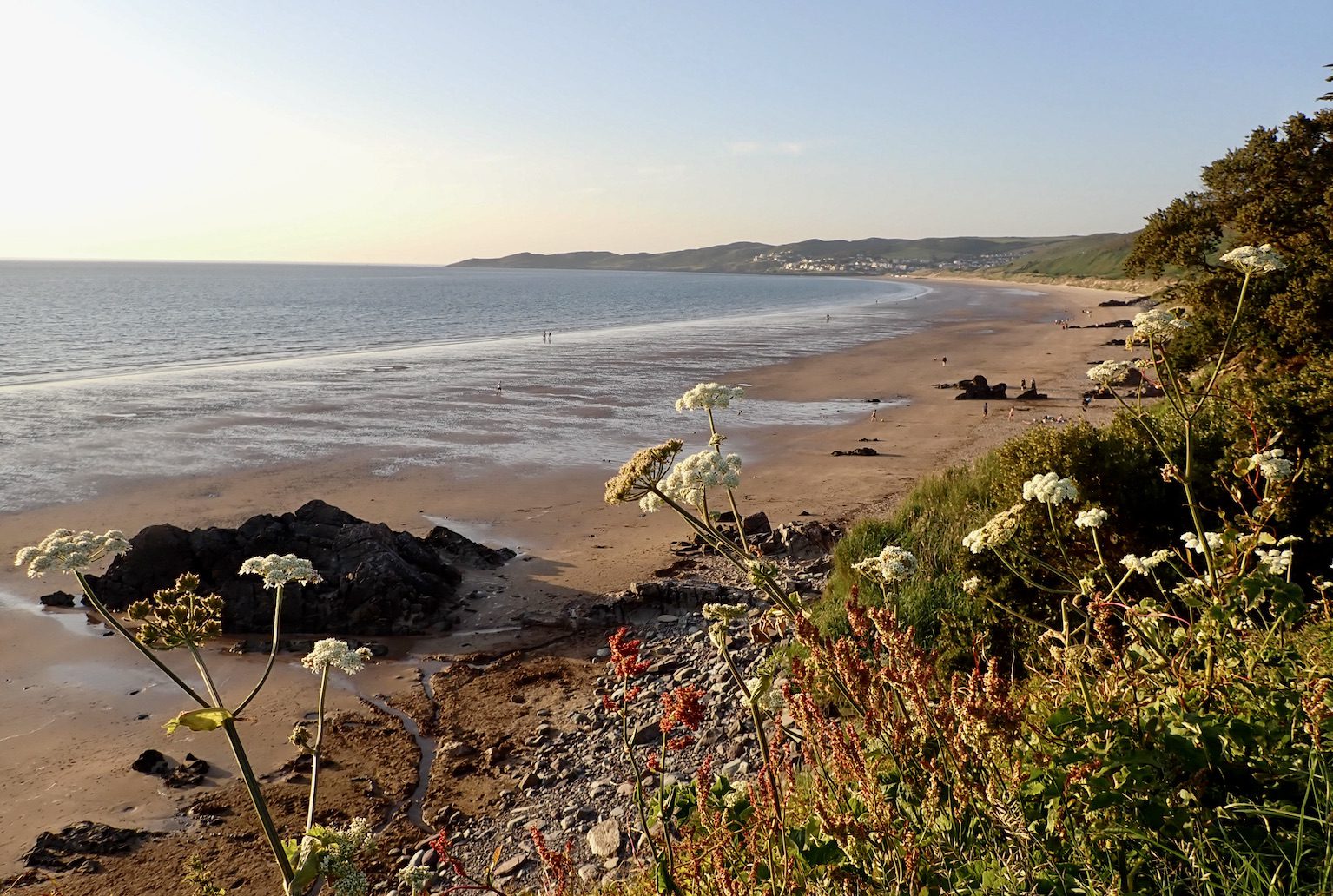
The boundaries for the event are the entire North Devon Coastline from County Gate to Welcombe Mouth.
https://northdevon-aonb.org.uk
This event is shore only.
The entry fee is £10.00 Competitors must book in at High Street Tackle Ilfracombe.
There is a first prize of £100 and £50 for the runner up. Additional prizes may be added if support is good.
The presentation will be held at Ilfracombe Pier, Outside the Aquarium at 6:30pm on Sunday July 2nd.
All those who attend the presentation will be entred into a raffle for a lure donated by High Street Tackle.
The prizes are for the longest bass nose to tip of tail caught using an artificial lure. A photo of bass and tape must be provided in addition to picture with captor if possible.
Fishing is from 00.00 June 29th until 6.00pm July 2nd.
All entries to be sent to CMSAC via their facebook page or to North Devon Angling News via social media or [email protected]
Advice on lure fishing for bass along with a huge sellection of lures are avaialble at High Street tackle.
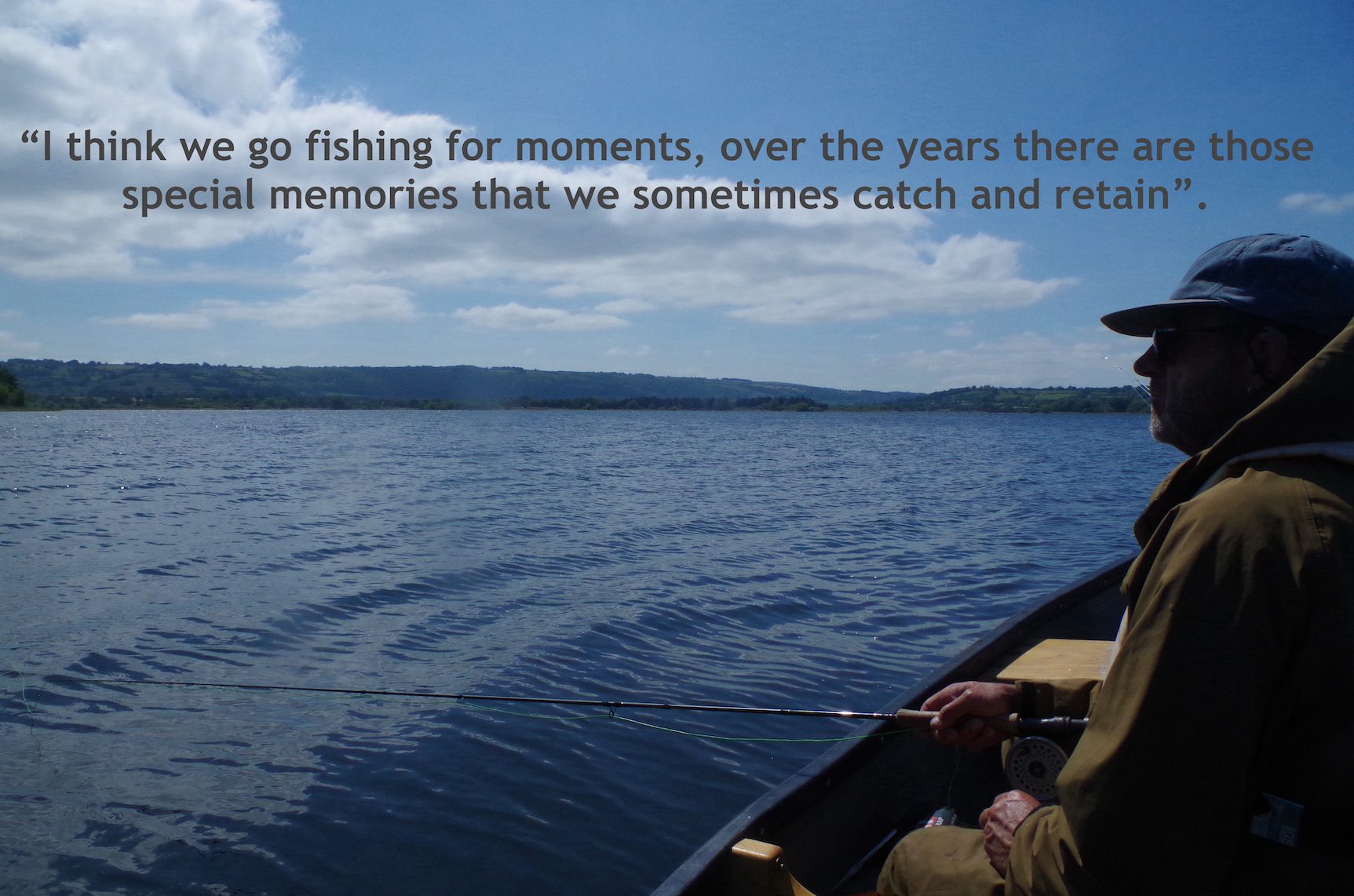
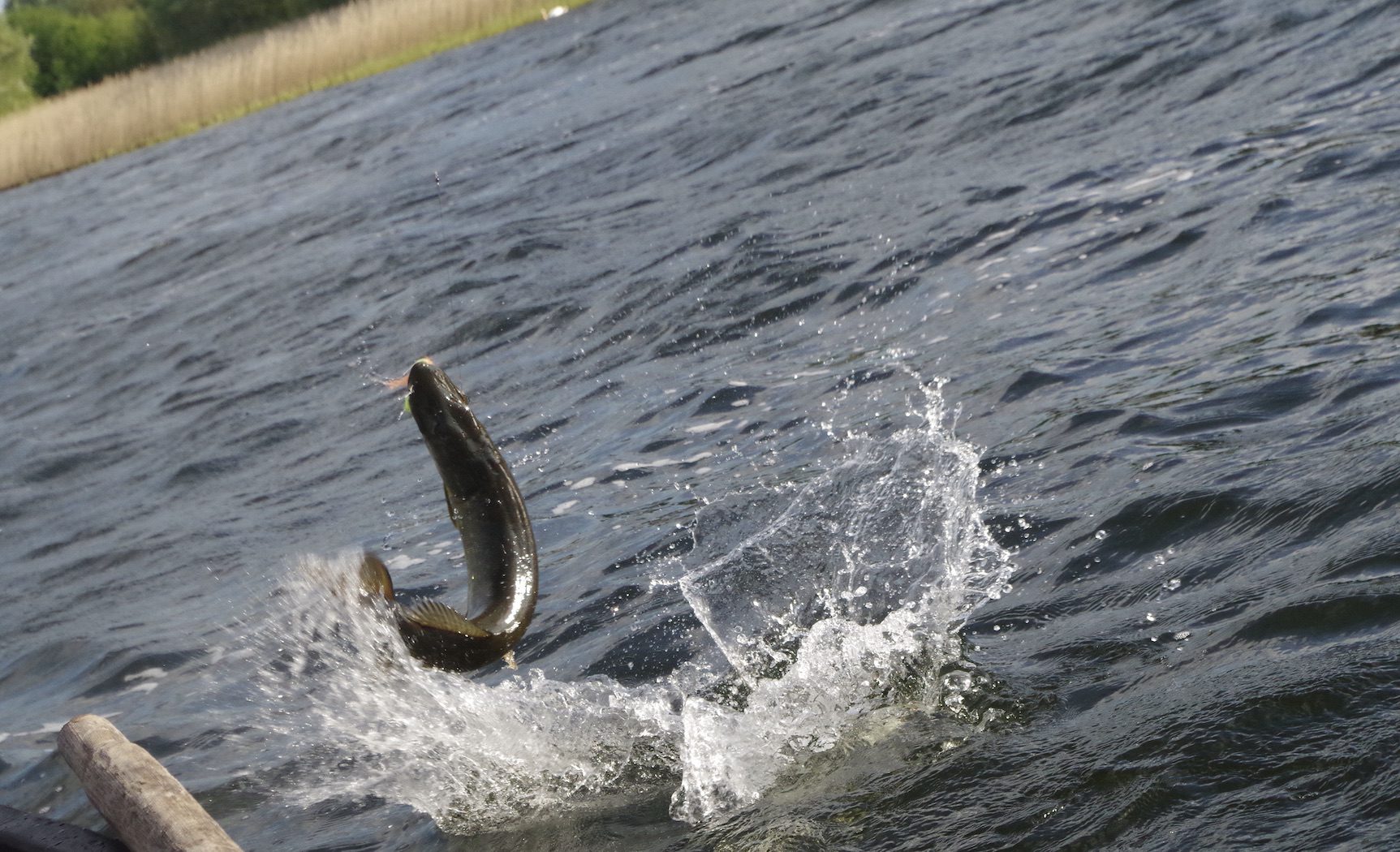
It had been a long day casting big flies for pike on the vast Chew Valley Lake in Somerset and we had just a few jacks to show for our efforts. We tramped back to the car and began to wearily sling the gear into the back of the vehicles. Should have played golf quipped Bruce, really! I replied in disdain. We both knew that we would have viewed such a day a waste of time. I commented that I am often asked by non-anglers why we go fishing as we only throw them back? I said I have given up trying to explain. Bruce paused and commented, “ I think we go fishing for moments, over the years there are those special memories that we sometimes catch and retain”.
This got me pondering as I drove home. At the time I was reading the classic tome “ Where the Bright Waters Meet”, written by Harry Plunket Green and first published in 1924. The previous night I had been reading of Blagdon Lake and the village of Blagdon.
“ But Blagdon itself will always remain one of the few places where the hand of man has improved on nature, bewitching in its beauty, with its Bavarian village, its purple sunsets, its nights with the thousand eyes, its kindly people, its virile sport and its blessed physical fatigue.”
Plunket enjoyed visits to the lake with his great friend H. T. Sheringham who also waxes lyrical about Blagdon in his book “ An Open Creel’ published in 1910. “ I have known rise from four-pounders missed because the angler was so busy admiring Blagdon Village, with its grey church tower and wealth of fruit blossom, and one cannot praise it more highly than by that confession.”
The words of Plunket and Sheringham drifted through my mind as I glanced down to the historic waters of Blagdon as I drove through the village and reflected upon my memories of Blagdon, those of the authors above and of Bruce’s words fishing for memories.
Through an angling life we do indeed gather memories and there not all directly related to special catches of fish. The places, the people and nature that surrounds are all embroidered into our minds eye.
Harry Plunket Greens classic book , “ Where The Bright Waters Meet” paints a generally tranquil picture of rural England and the quintessential Chalk streams that flow through peaceful villages. I wondered how much this had changed over a century and whether Plunkett would recognize his home village. Speaking to a fellow angler one evening he commented that little had changed in Hurstbourne Priors where Plunkett resided and fished the Bourne Rivulet all those years ago.
In early June Pauline and I arrived in the village of Longparish to explore the Test Valley and perhaps get a glimpse of Plunket’s England. A day’s fishing on the Test and its tributaries is prohibitively expensive so any casting of the up-stream dry fly would be virtual.
The delightful thatched cottage we stayed in was a short walk from the Test and we enjoyed several walks to watch its waters flow. On our first afternoon walk we heard the timeless and evocative call of the cuckoo echoing across the water meadows. Mayfly were fluttering above the water, occasionally dimpling the surface. I watched as trout sipped them down in classic style. I imagined casting a dry fly to these trout and the delectable moment of deceit as the trout is hooked.
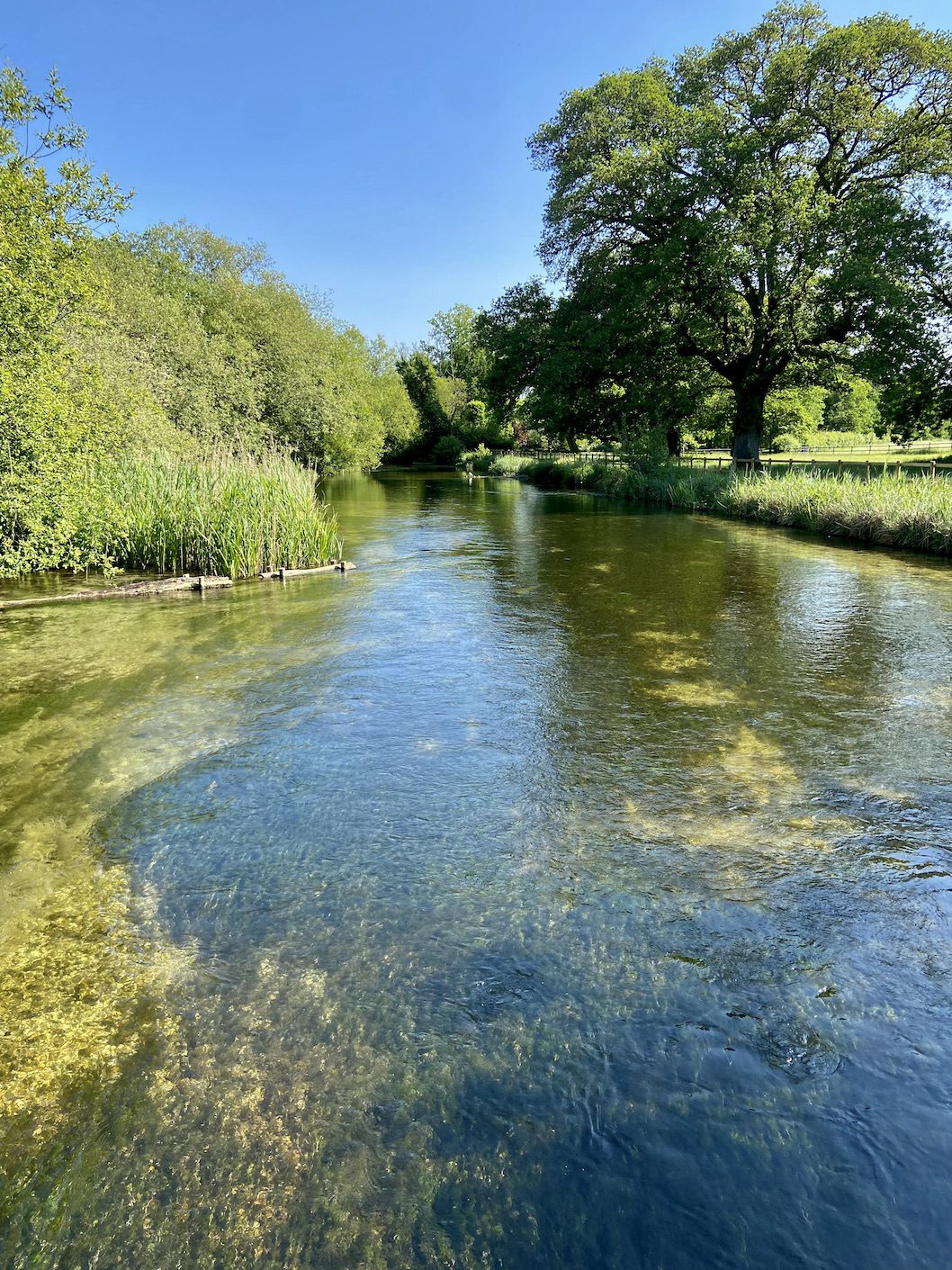
We set off early in the morning to walk from Longparish to Hurstbourne Priors where HPG lived from 1902 until 1912. “the little Hampshire Bourne, in those days unquestionably the finest small trout stream in England.” Plunket reflects upon his first visit.
“It was a gorgeous day without a breath of wind, and the smoke from the thatched cottages rose up in straight blue lines against the dark elms of the hill behind. The valley ran at right angles to the one we had come through , and in the middle of it lay the village in a golden sheet of buttercups under the beechwoods of the deer park there ran a little chalk stream clear as crystal and singing like a lark.”
“There was a church half hidden in the trees and the people were just coming out after the service, and there was an indescribable feeling of peace over the whole scene. It was a typical picture of English country Life which Constable might have painted or Gray have sung.”
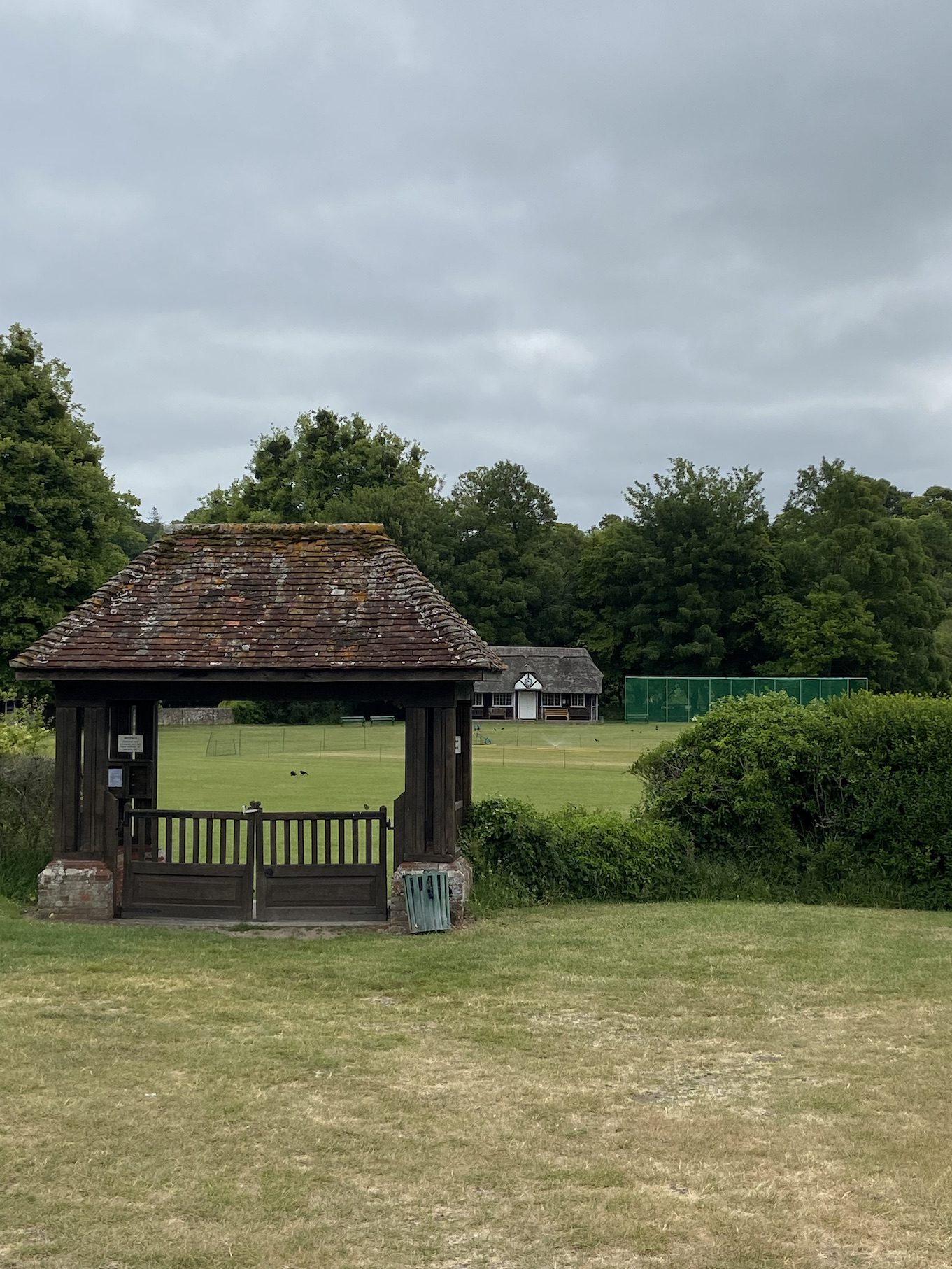
We walked a footpath across several fields on our way to Hurstbourne Priors. A red kite soared above the lush green valley and a hare bounded away from us as we disturbed its morning graze. We walked into Hurstbourne Priors and approached the centre of the village and paused at the entrance to the Cricket pitch looking across to the church partially hidden amongst the lush green trees of early summer. The scene before us was one of reassuring continuity. We walked slowly across towards the Thatched Cricket Pavilion and sat upon one of the green benches placed to commemorate the Jubilee of King George V in 1935. There was also a bench commemorating the Silver Jubilee of Queen Elizabeth 11 1952 to 1977.
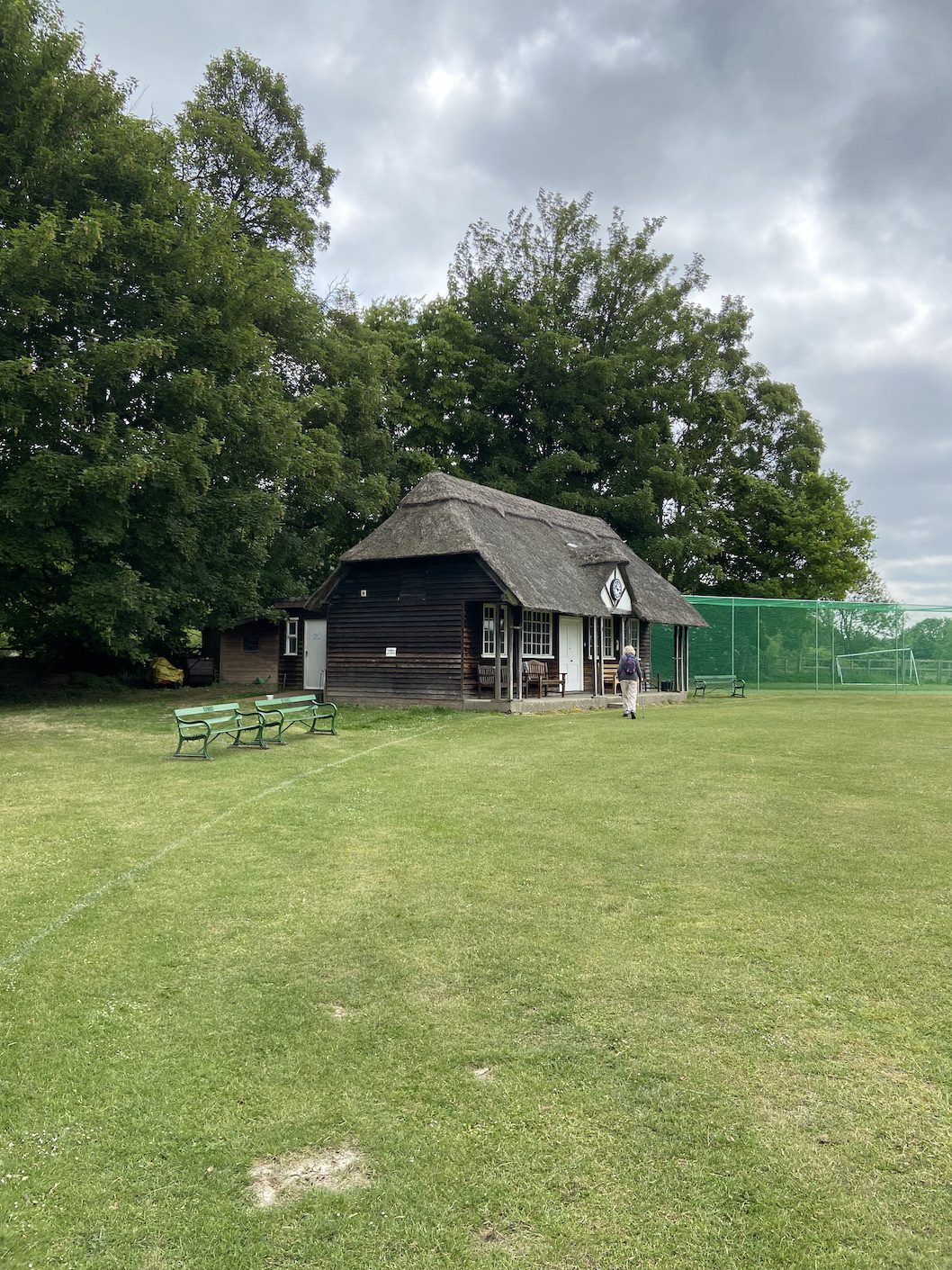
We sat for a while soaking in the timeless vista. Swallows swooped low over the wicket and rooks paced upon the closely mown grass searching for worms. Harry Plunket Green was a keen Cricketer and includes reminisce about Cricket in his book and the two cricket teams in the village. The Hurstbourne Priors Club and the Hurstbourne Park Club.
We noted the notice in the club house window; Hurstbourne Priors Cricket Club is a friendly village club with a long history and is seeking to recruit and welcome new members. Looking out across the pitch It was apparent that little had changed since 1911 when Harry Plunket spent most of the summer playing cricket.
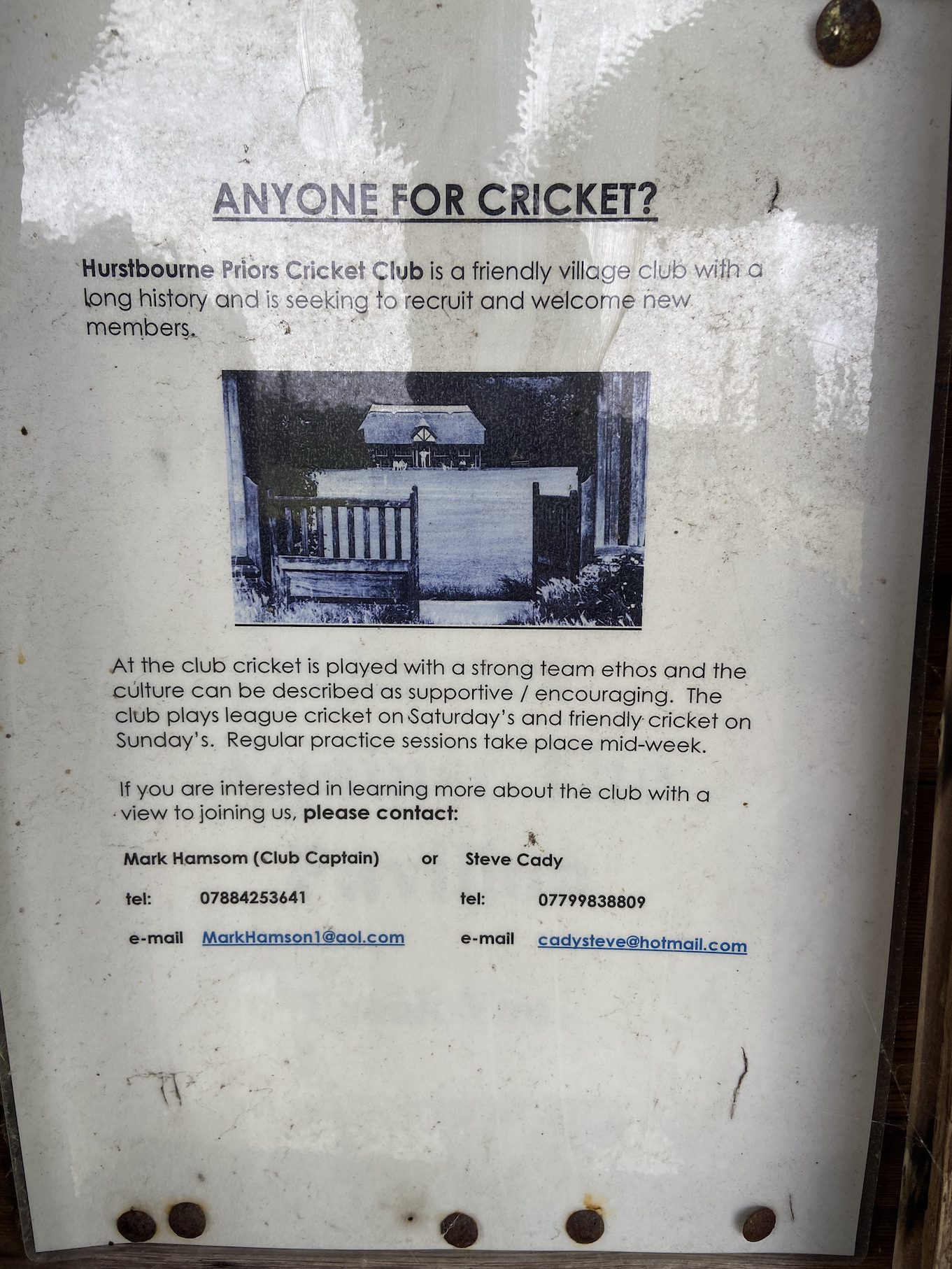
A path lead from the Cricket ground directly into the church yard where we hoped to locate the resting place of Harry Plunket Green. Ancient Yews grew within the grounds and it was pleasing to imagine the tranquil waters of the Bourne Rivulet just a few yards away hidden from view amongst the lush green growth of early June.
After a while strolling around the historic grave stones, We found a cross and at its base the inscription
HARRY PLUNKET GREENE
SINGER
1865 – 1936
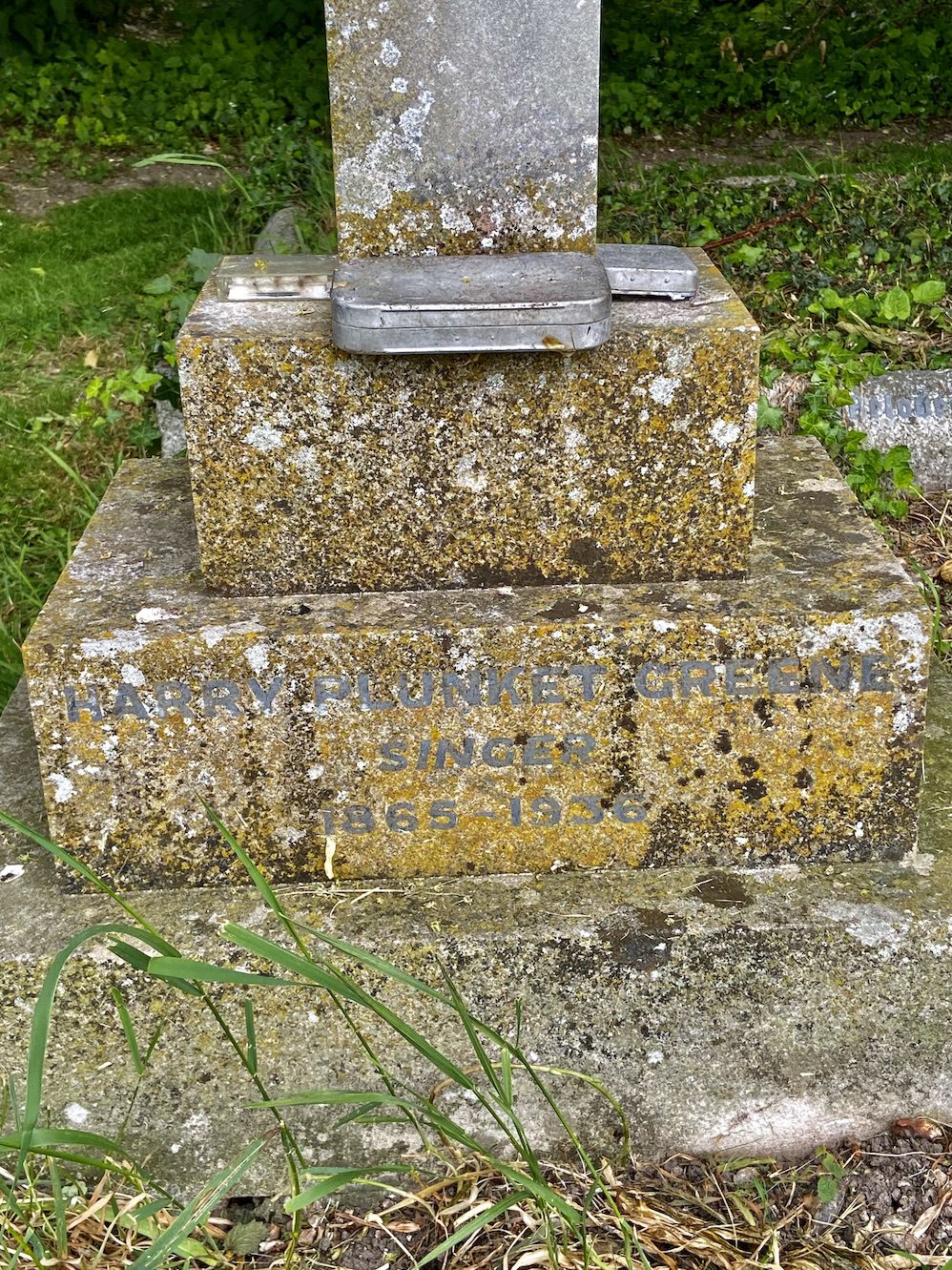
Placed upon the grave stone were poignant boxes of old rusty flies left by anglers paying homage to a man who had shared his treasured memories and thoughts from a time now long since passed. High up on the lichen encrusted stone I found a recently deceased mayfly that seemed to symbolise the spirit of those bright waters. Harry Plunket Greens resting place is perfectly located between those bright waters that still sing like a lark and those mowed greens where leather meets willow on long summer days and evenings.
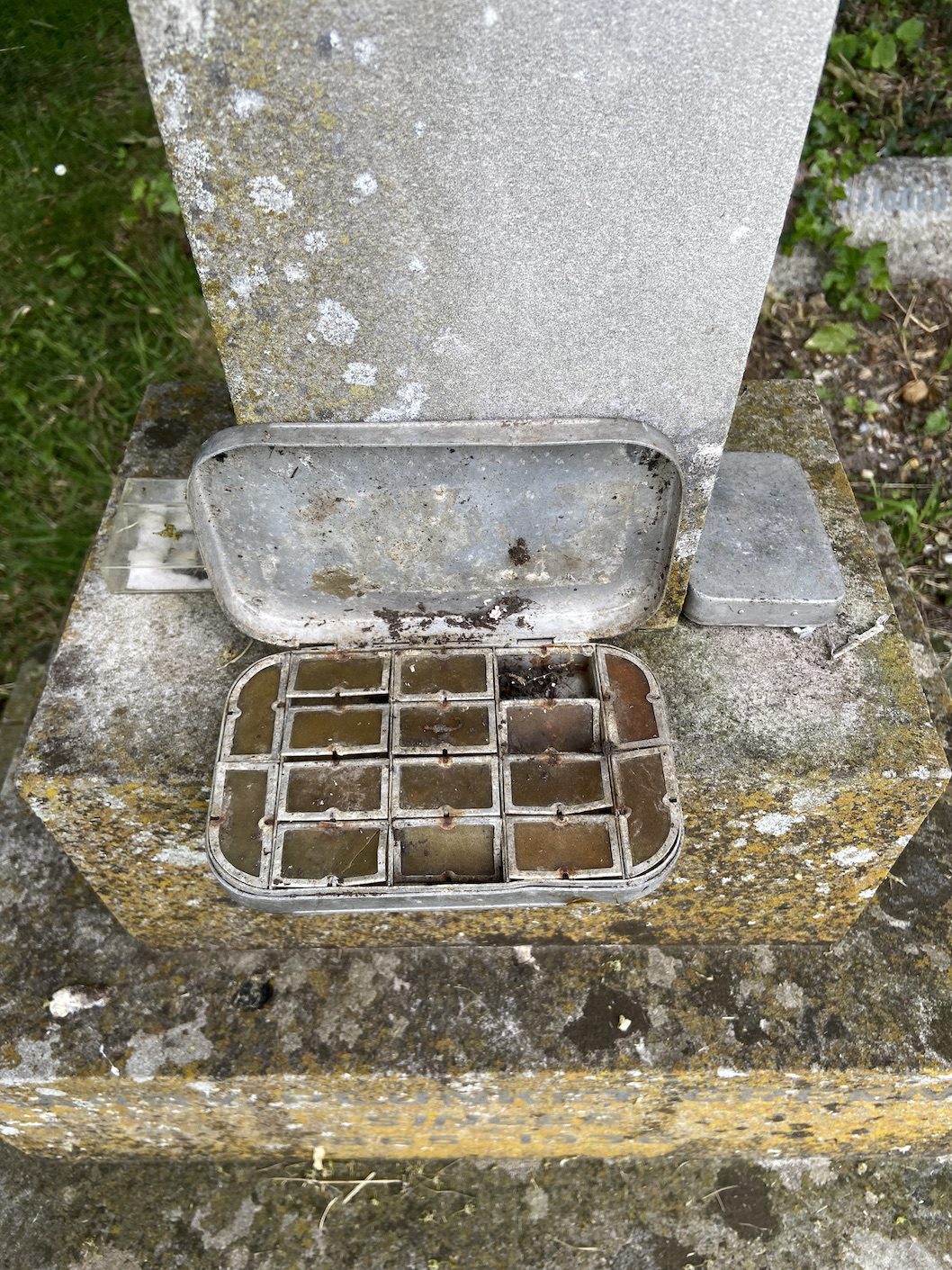
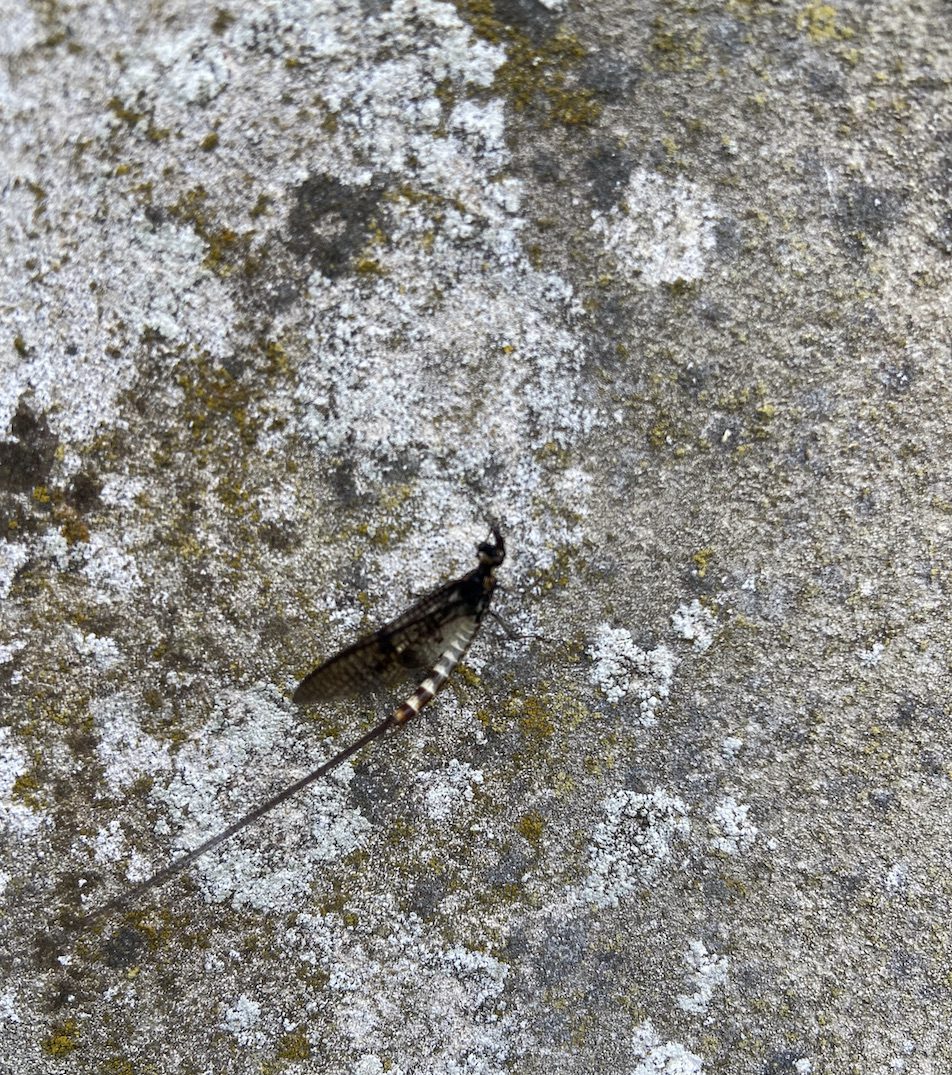
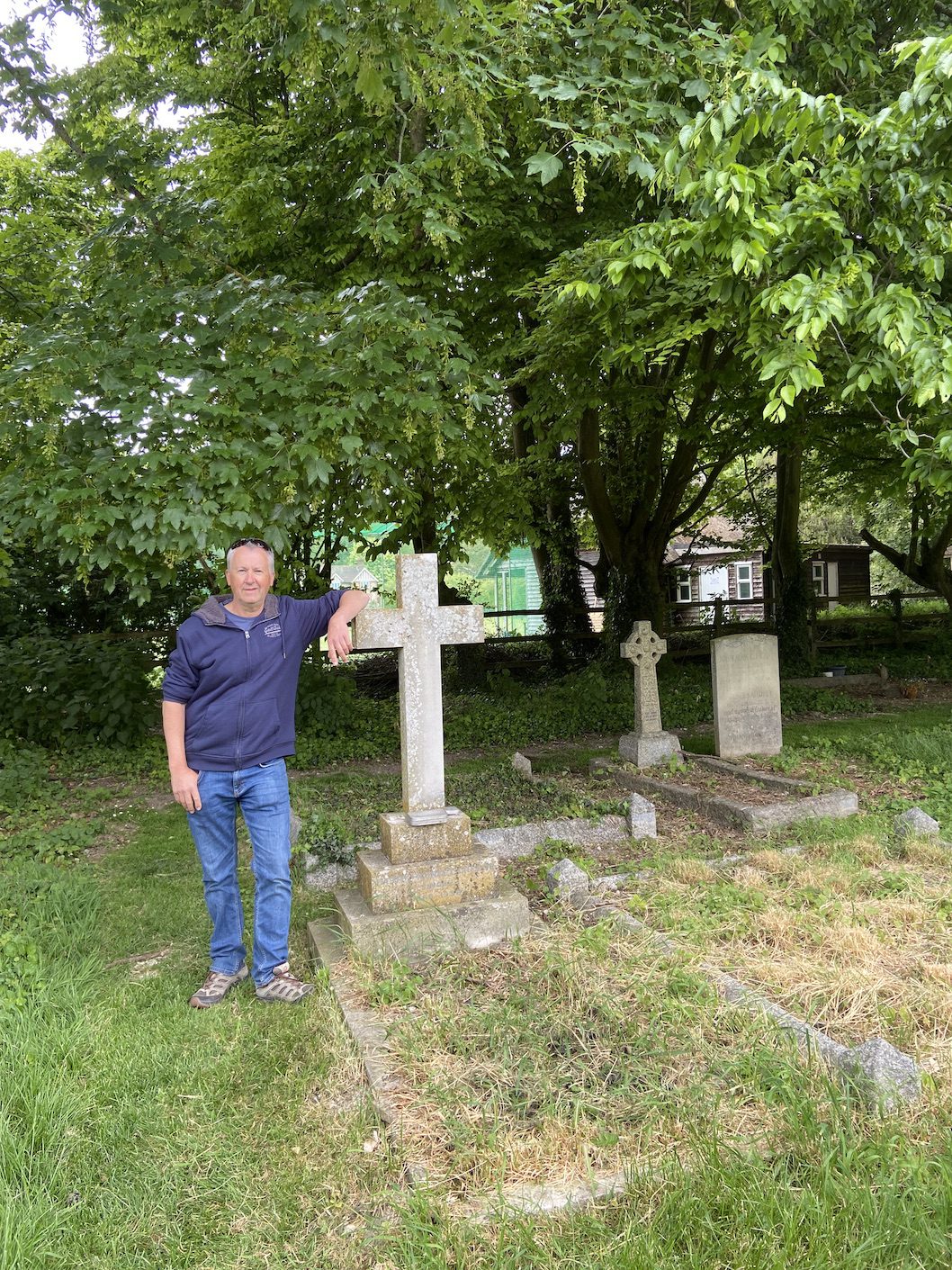
Harry Plunket Greene was a renowned singer of his time and toured Europe. He was Professor at the Royal Academy of Music (1911-19) and the Royal College of Music (1912). When he retired from teaching he devoted more time to writing about music and his passion, Fly Fishing. He was a member of the MCC, and president of the Incorporated Society of Musicians in 1933.
Later that afternoon we visited the village of St Mary Bourne close to where the Bourne Rivulet rises and wandered along the gin clear stream that passes through another delightful old English village of chocolate box thatched houses of red brick decorated with rambling roses of red, pink, gold and yellow.
The following day we headed to the National Trust property of Mottisfont. Its grounds border the River Test and its tributaries. Beside the Abbey Brook is a hut apparently used by the grandfather of Dry Fly Fishing F M Halford whose forthright and at times dogmatic views stimulated heated debate with G E M Skues who preached upon the effectiveness of the Upstream nymph. Halfords book ‘Dry Fly Fishing-in theory and practice’ published in 1889 still influences the anglers who fish the Test a century later.
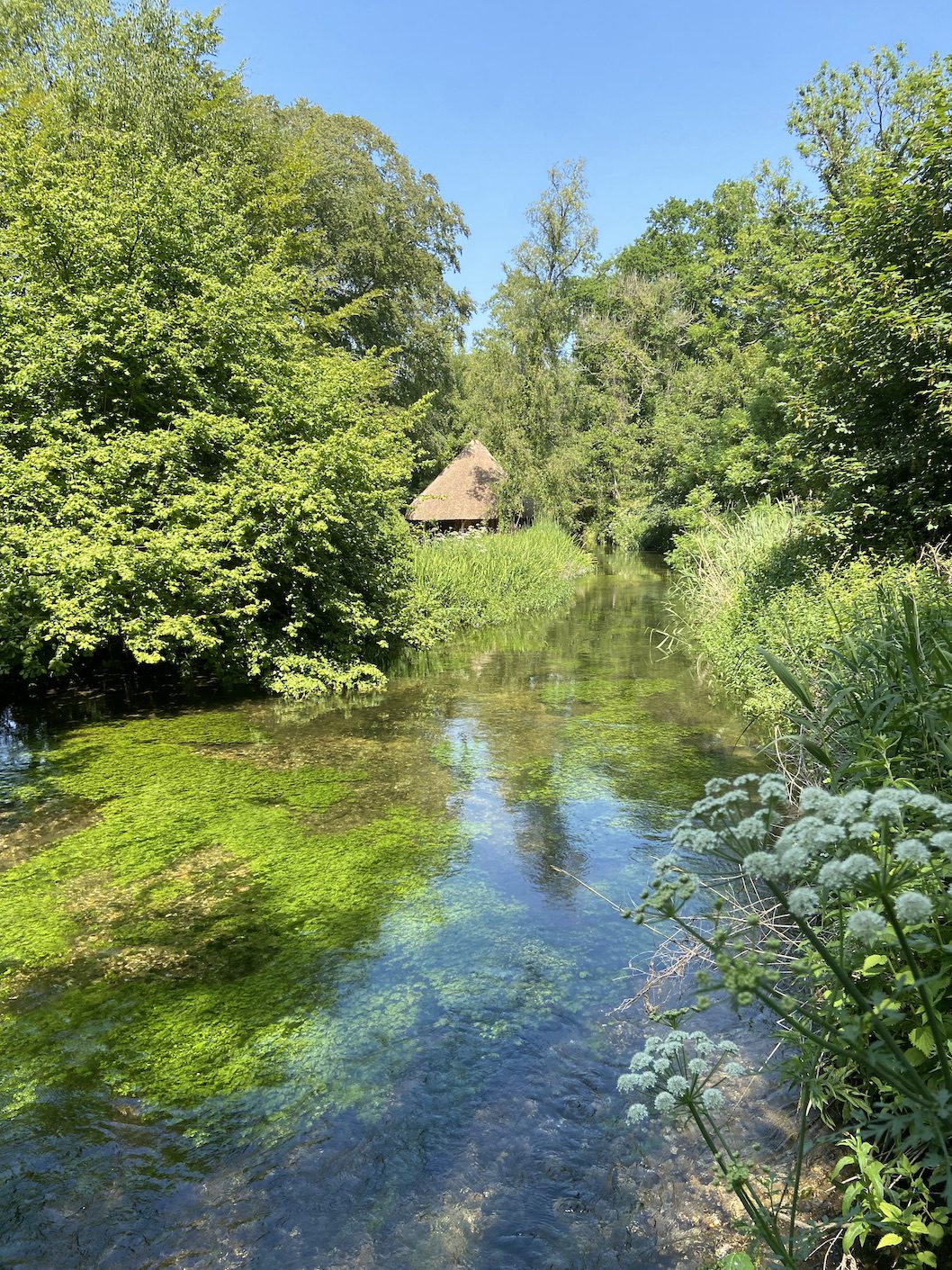
We walked the river within the grounds of Mottisfont and gazed into those clear waters glimpsing a wide variety of fish. Not just large trout but specimen roach, grayling and perch. These tranquil waters with lush beds of ranuculus and clean gravel are undoubtedly the Fly Fishing equivalent to Lords Cricket ground. The strict rules of etiquette introduced by Halford’s doctrine have refined the art of fly fishing effectively making the catching of trout more enjoyable and rewarding.

On our last day in Hampshire, we headed for Stockbridge where it was easy to linger in a High Street punctuated by clear waters of the Test as they flowed through the small town. A tower in the heart of the town carries a golden trout weather vane. Swifts gyrated around it screeching their sound of high summer.
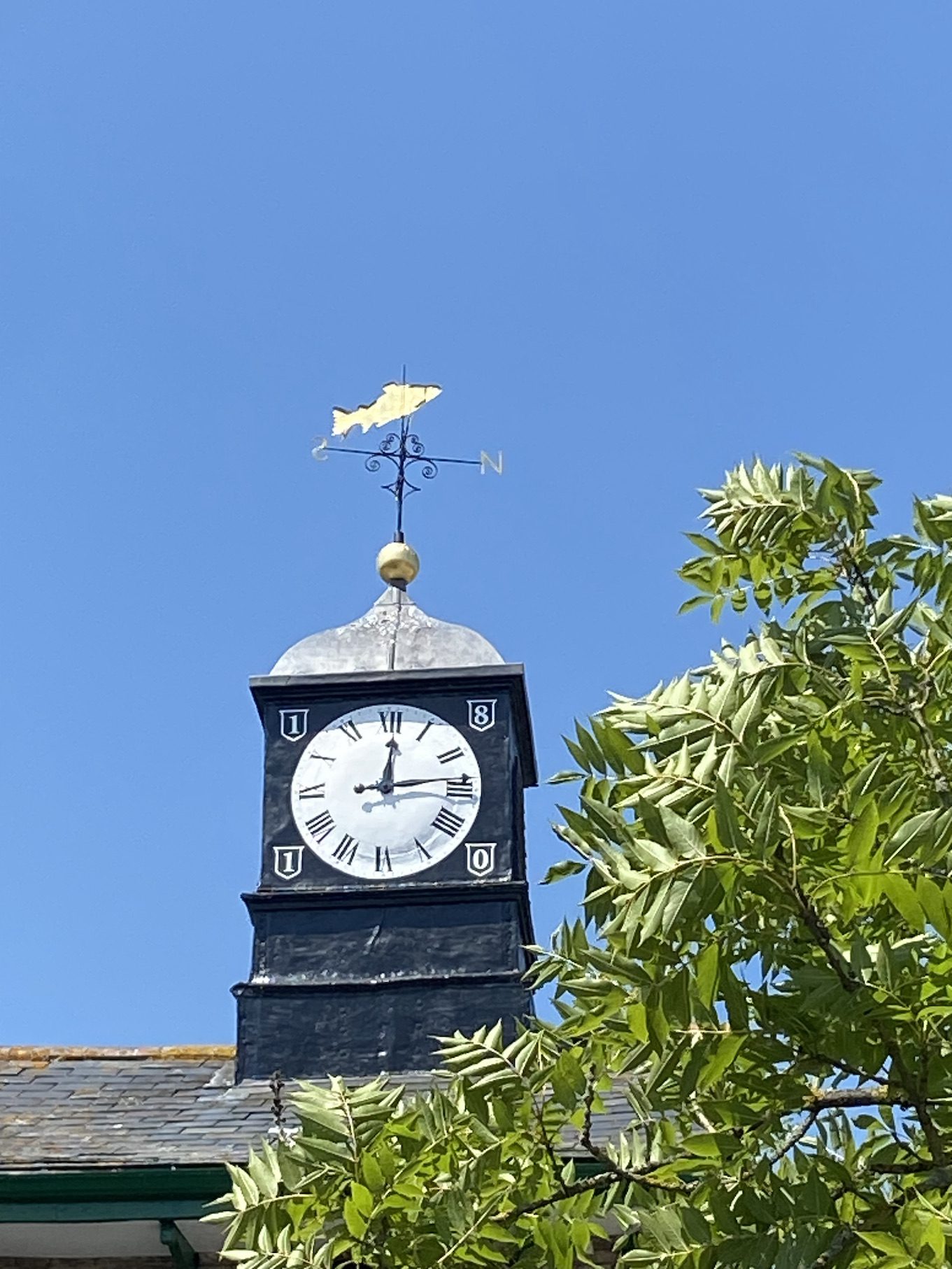
Two fine tackle shops sit either side of the High Street the last remaining Orvis Outlet store and ROBJENTS of Stockbridge. Both game fishing shops carry a wealth of fly fishing equipment and clothing. I chatted for a while with those in both shops and left feeling optimistic for the future of fly fishing despite many issues that blight our world.
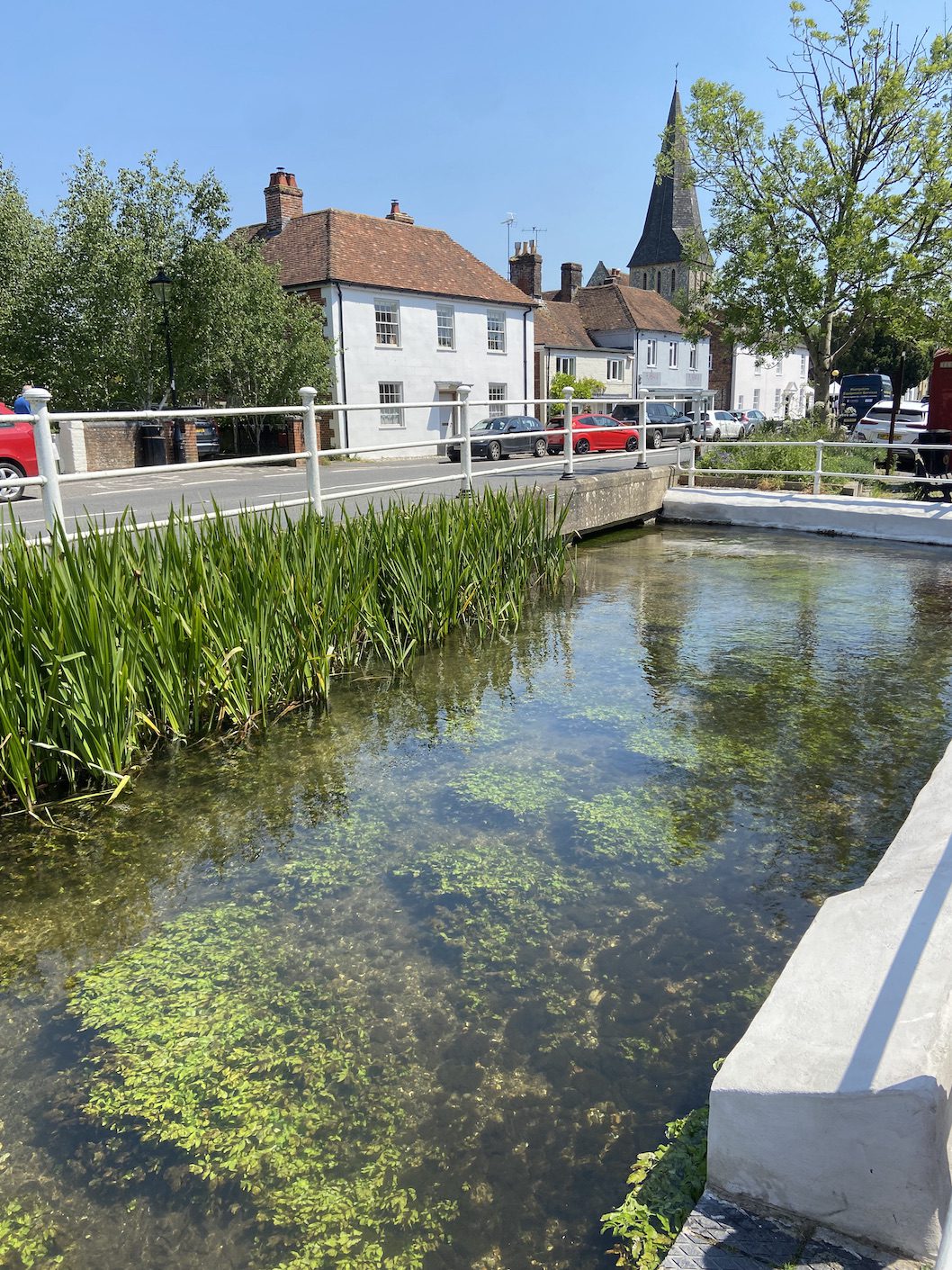
We leave Stockbridge to walk the water meadows below the town. These havens for wildlife flank the Test and once again I relished the art of virtual fly fishing flicking an imaginary dry fly or upstream nymph. I spotted some beautiful thick bodied trout in the main river. A cuckoo’s summer song drifted across the buttercups and the river lined with water hemlock and yellow flag Iris.
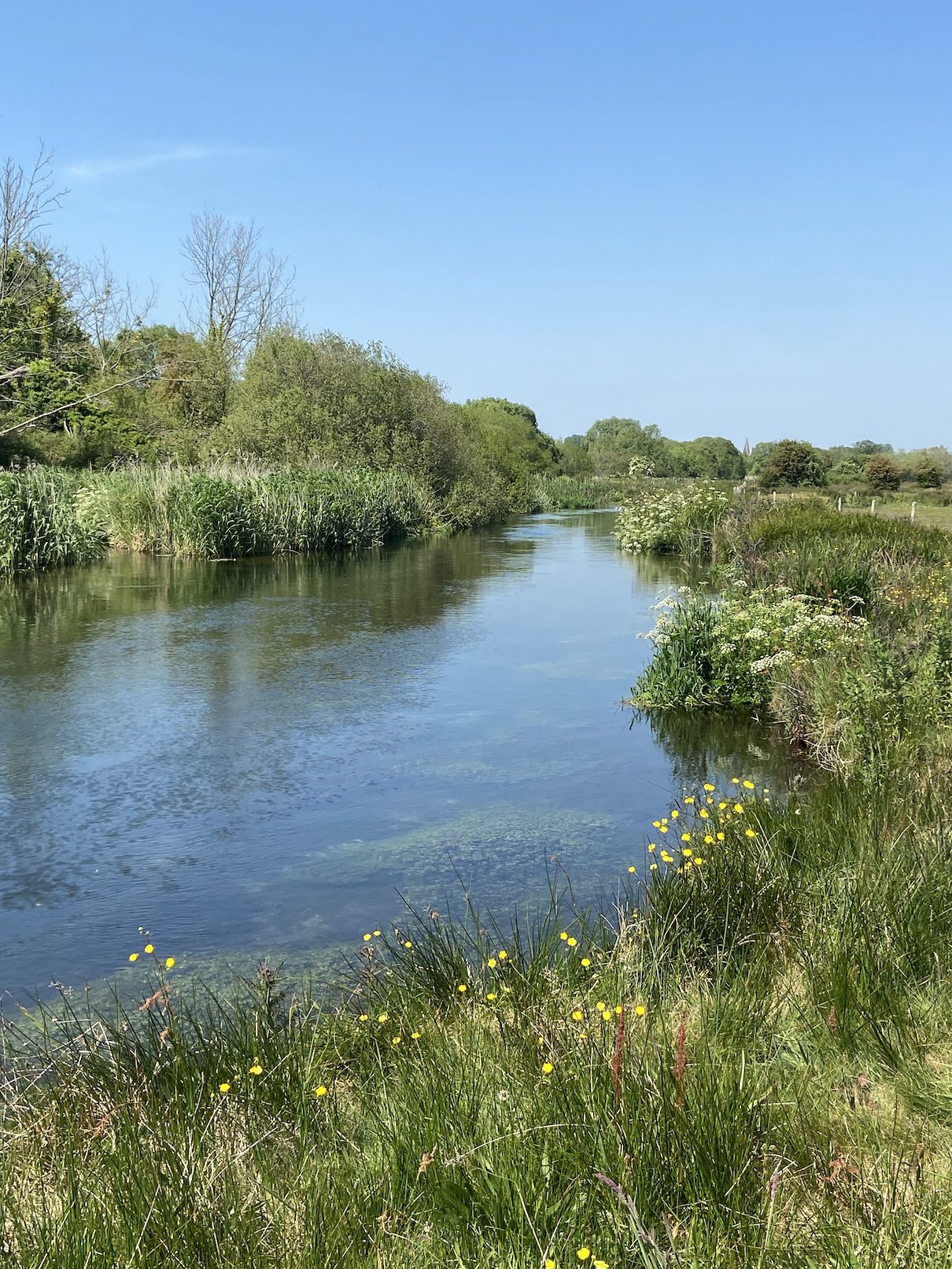
We stopped for afternoon tea and coffee beside a small carrier stream the small brown trout clearly visible in the gin clear waters illuminated by the bright sunshine. I watched these small trout and remembered the wild browns of the tiny River Umber in North Devon where my lifelong love of fishing started.
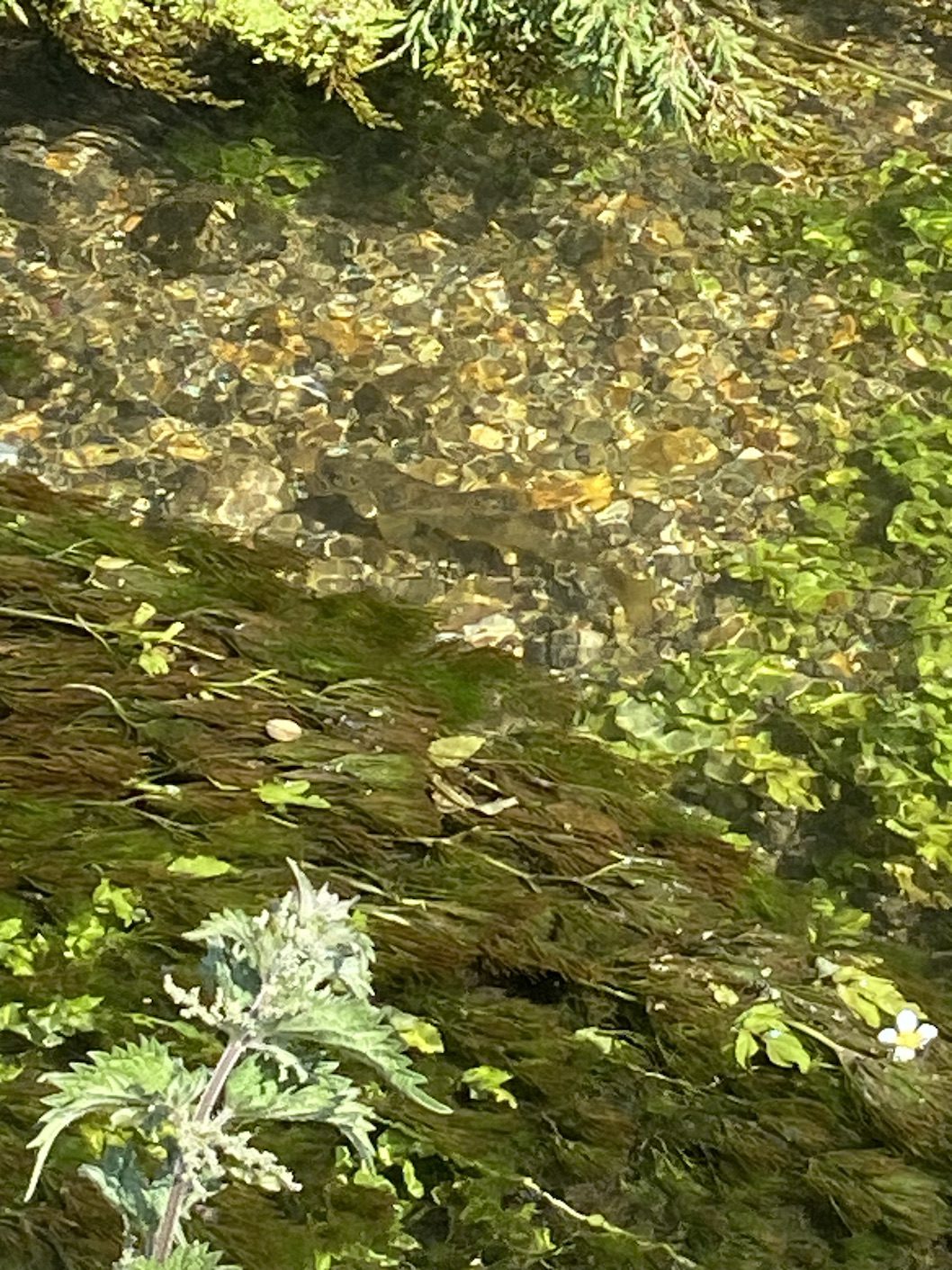
The revered waters of the Test are famous throughout the world in parts manicured and stocked whilst other beats still hold wild and wily trout. Whilst all is not perfect it is perhaps to be noted that this corner of England seems to have retained a certain tranquil charm that is to be treasured. Those privileged to live and fish and walk these banks have in part due to wealth and nimbyism protected the worlds of Harry Plunket Green and F M Halford. And ensure that generations continue to fish for memories be it virtual or real.
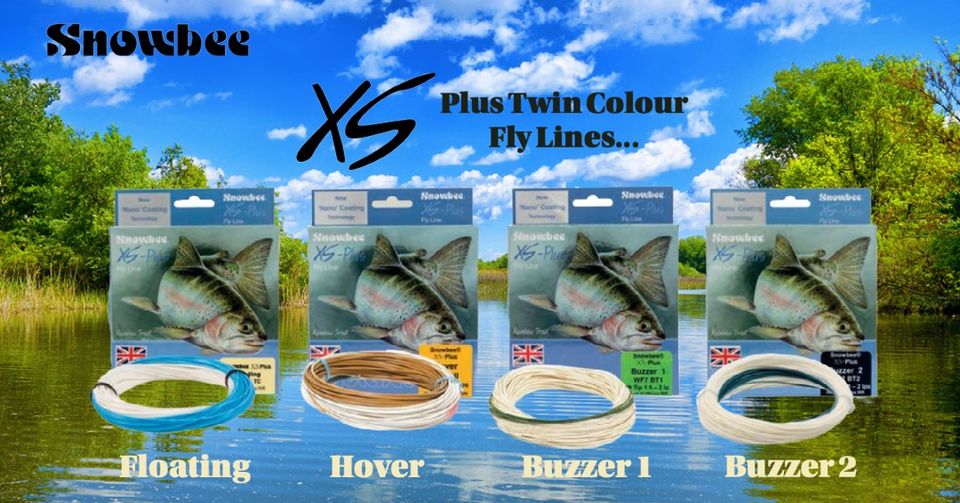
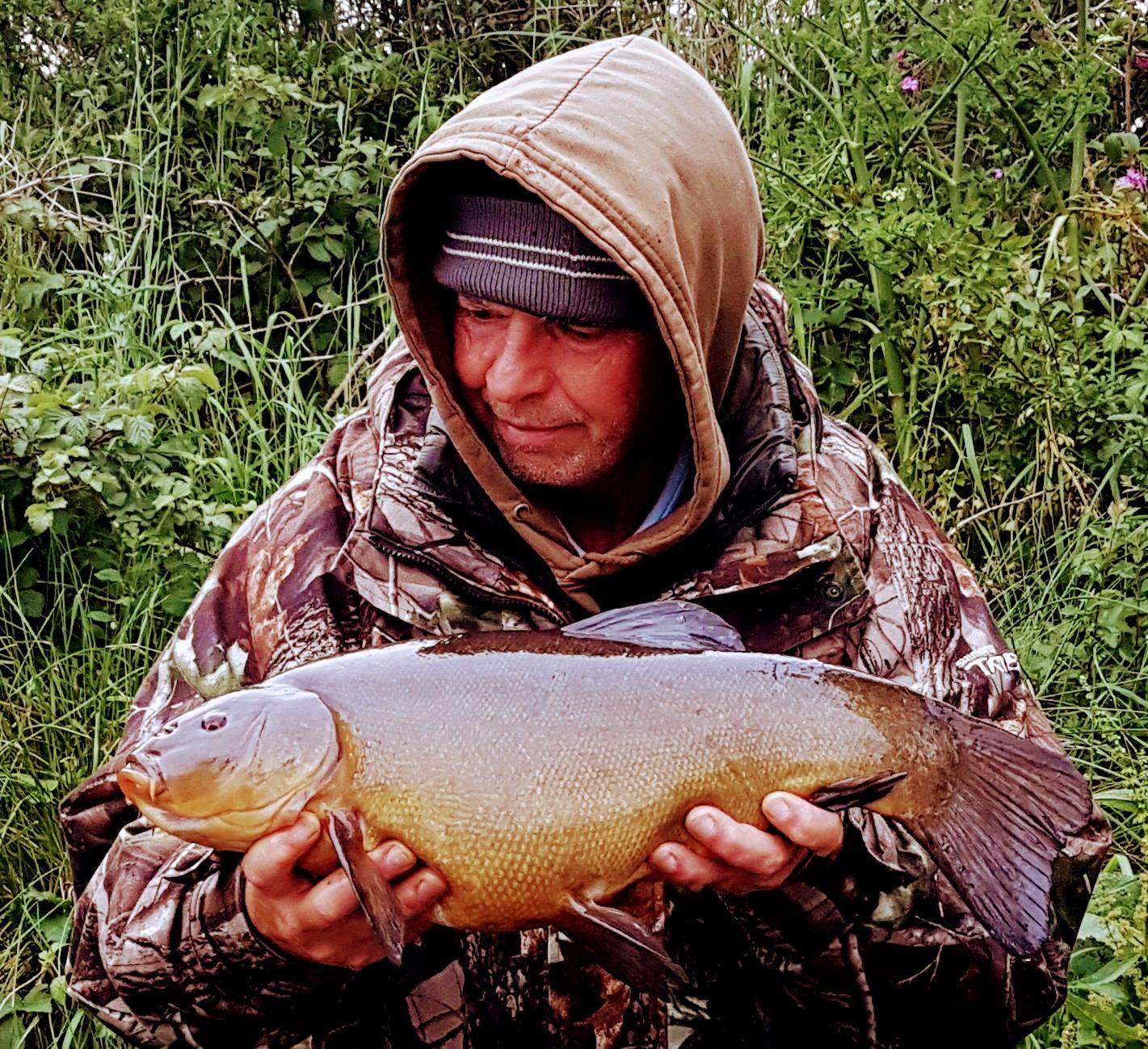
Shaun Thorne fished at Lower Tamar lake to tempt several double figure bream to 11lb 14oz and a tench of 6lb 11oz.

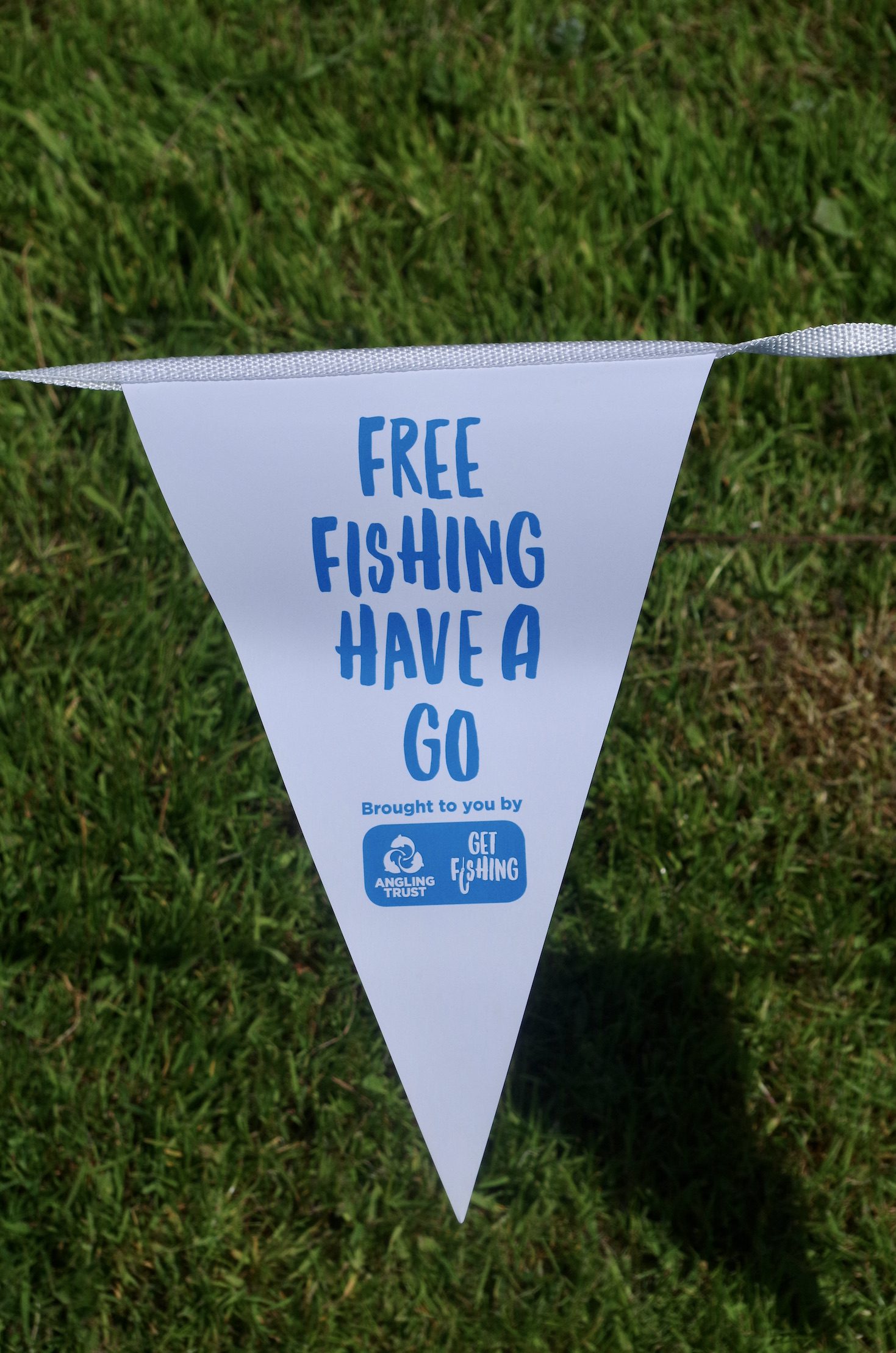
Spring into Fishing – Get into fishing this April, May and June with FREE fishing from the Angling Trust
The Angling Trust’s Spring into Fishing campaign returns for a fourth year with FREE fishing sessions to re-awaken your love of the outdoors
Come and Spring into Fishing at free, fun, outdoor activity events for families around the country that are the perfect way to discover the wonderful world of angling. Everybody is welcome, to come and try fishing – whatever your age, ability or experience level.
Never been fishing before? No problem – tackle, bait, instruction and info on fishing clubs and places to go are all included for everyone at Spring into Fishing events.
Already a beginner? Great – come back and continue your introduction to angling, refresh your basic fishing skills this spring and discover some new fishing tips to help progress your angling to the next-level!
Spring into Fishing beginner sessions are quality assured by the Angling Trust to give the best possible experience of fishing to children, families and anybody who wants to find out what you need and where to go fishing. Funded by the Environment Agency and Sport England, Spring into Fishing gives everyone the chance to get outside, try fishing and learn new skills.
Free fishing events like this let you experience first-hand how fun, inexpensive and accessible fishing is, and how it’s good for your wellbeing to get outside next to water and simply tune-in to the peace and quiet of nature.
Spring into Fishing events are happening all over the country from April right through to June at fishing clubs and venues in partnership with friendly, helpful coaches and volunteers who will show you and your children what fishing is all about.
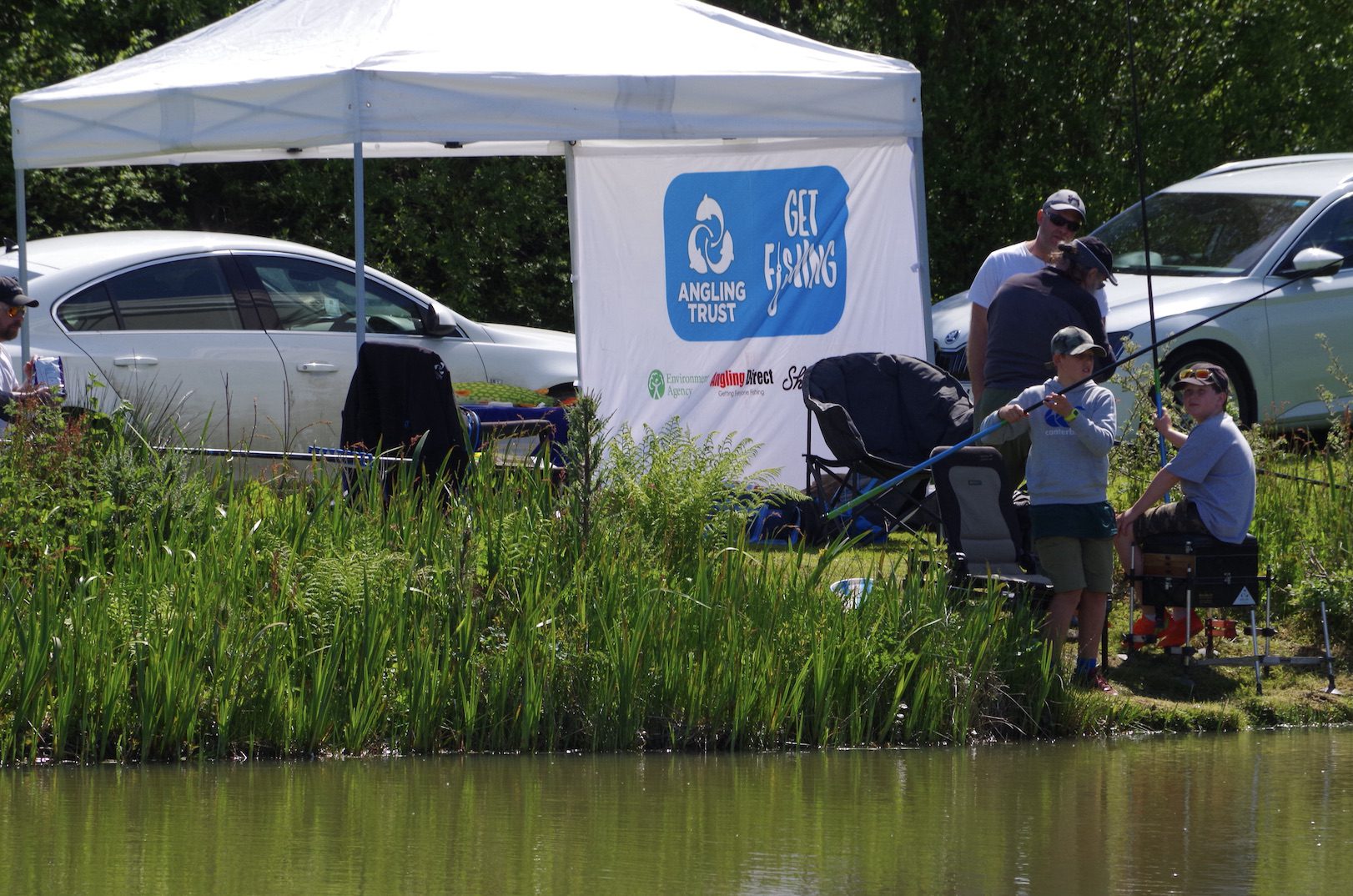
I arrived at Anglers Paradise’s Eldorado Day Ticket complex shortly after the start of the morning session of the 2023 Spring into fishing event. It was a perfect late Spring morning with warm sunshine and a gentle breeze. Wispy white high clouds drifted across the blue sky with the water of the mixed general lake reflecting the lush green surrounds of the flag Iris and bankside trees.
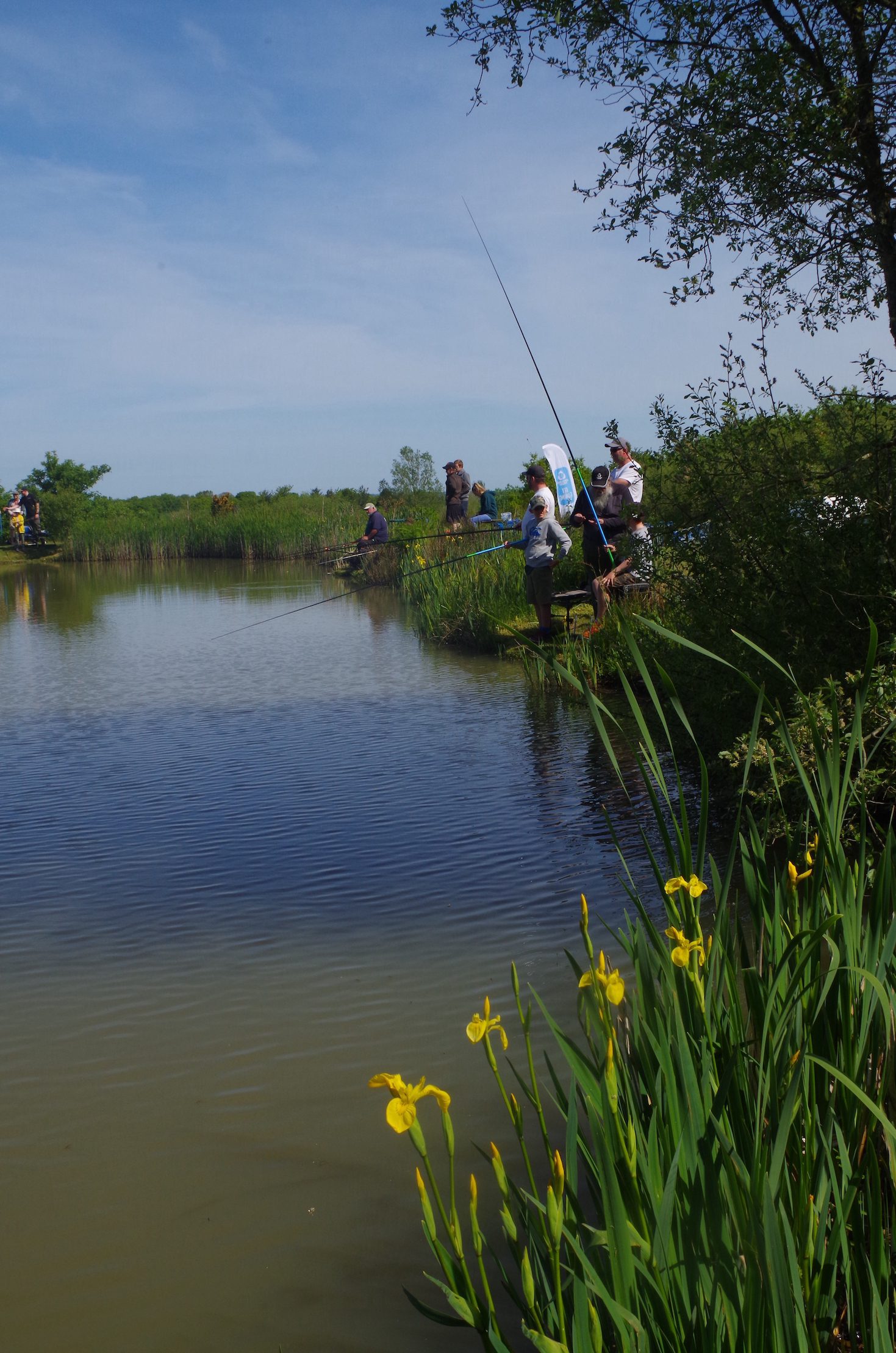
The vibrancy of the Devon countryside in late May and early June is certainly to be savoured. The lake was surrounded by families sharing in an introduction to the joys and tribulations of fishing. The coaches were certainly in for a busy day as they explained the setting up of tackle to the eager pupils. The brightly coloured wriggling maggots always fascinate children who are often eager to touch and feel the writhing mass within the bait tub.
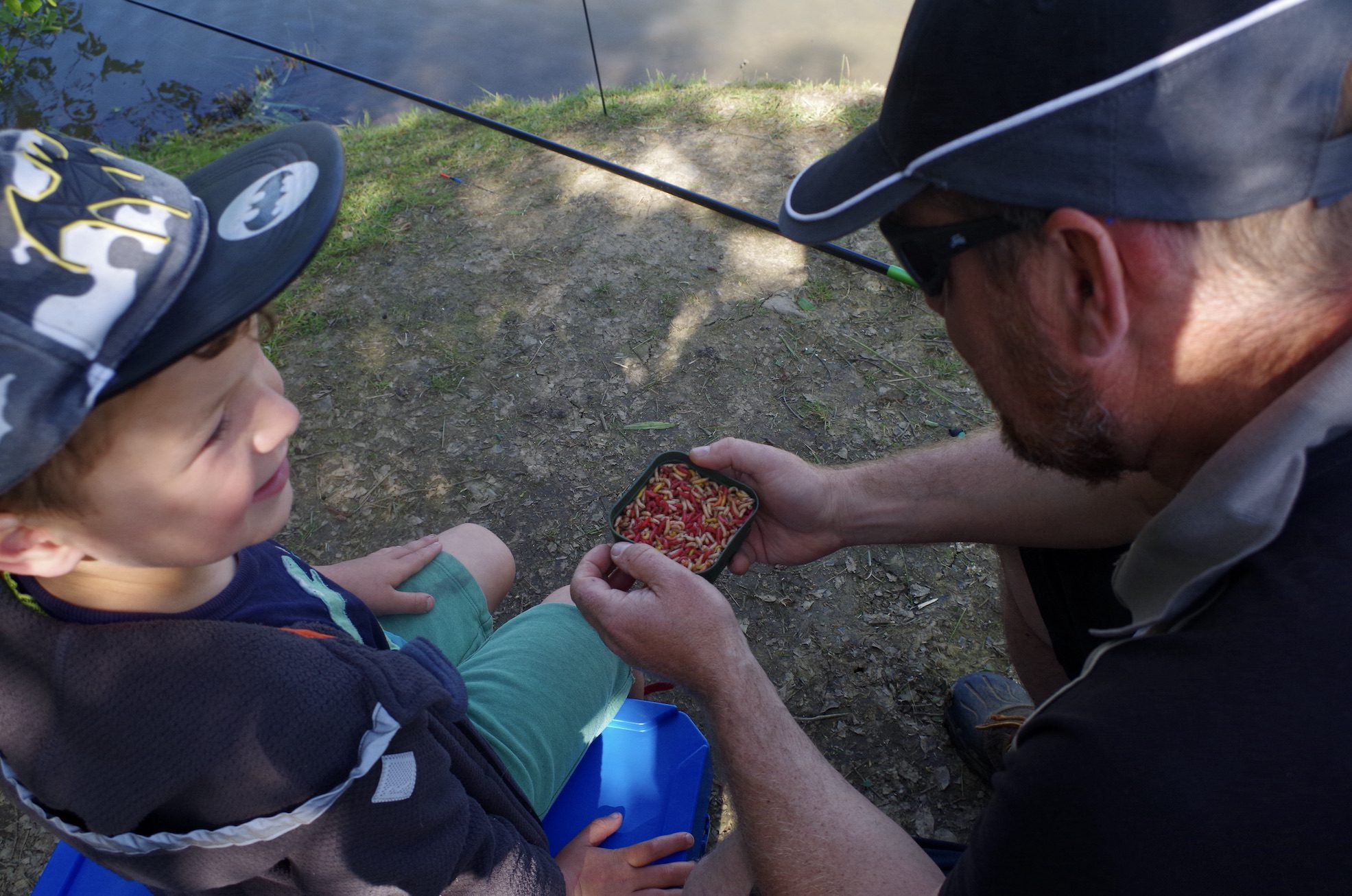
The coaches set up a selection of tackles some putting out self-hooking leger rigs whilst most opted for the simplicity of pole tackles and float. I always think that the simplicity of float fishing is perfect for beginners. A float offers a point of focus; giving delight in its disappearance and buoyant optimism whilst watched.
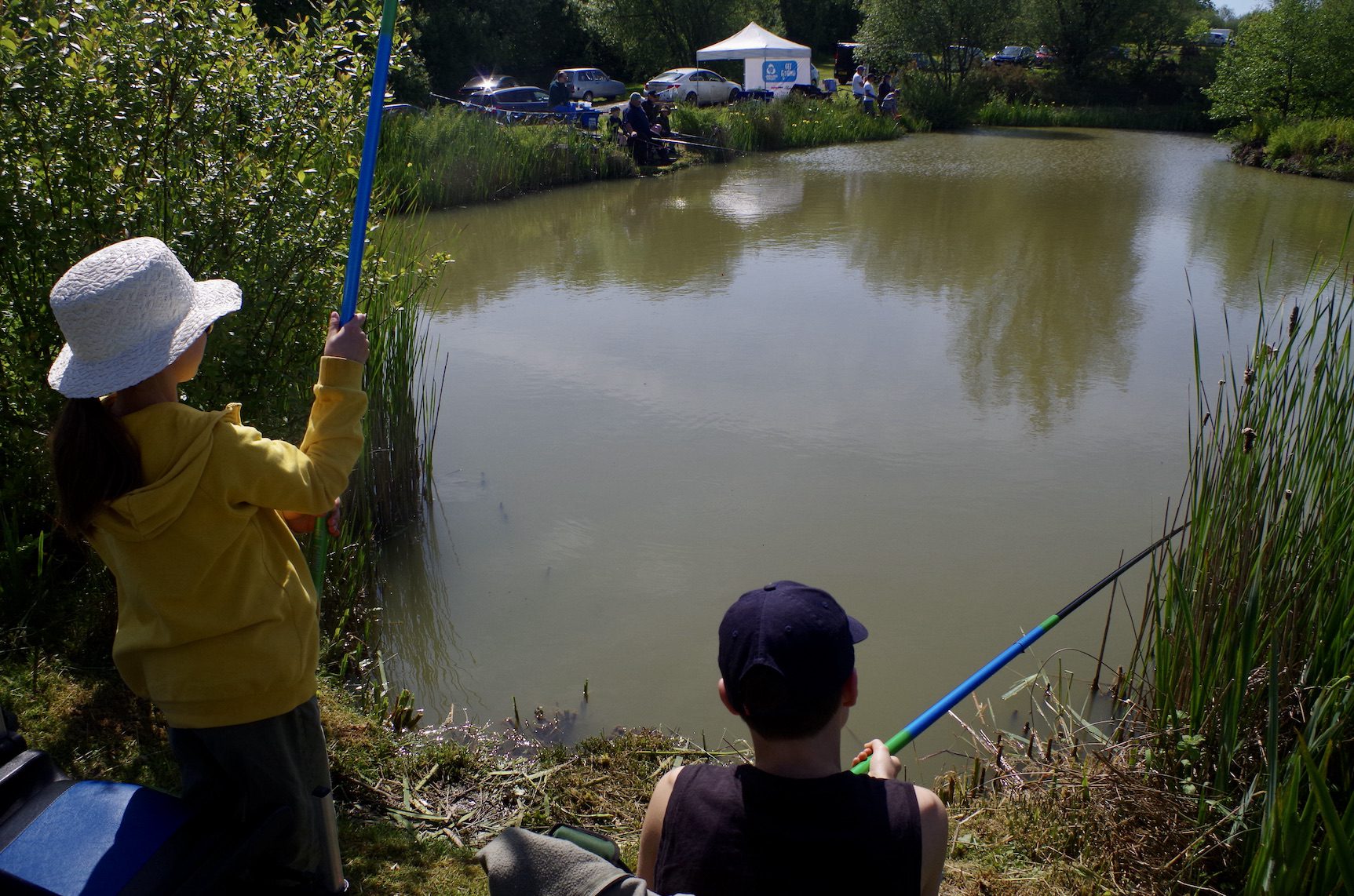
I wandered around the lake with my camera chatting with coaches and pupils whilst trying to capture the essence of the day. It is always a joy to witness success as the fish were lifted from the water their jewelled flanks glistening in the sunshine. Beaming smiles abounded as floats dipped frequently during the morning session.
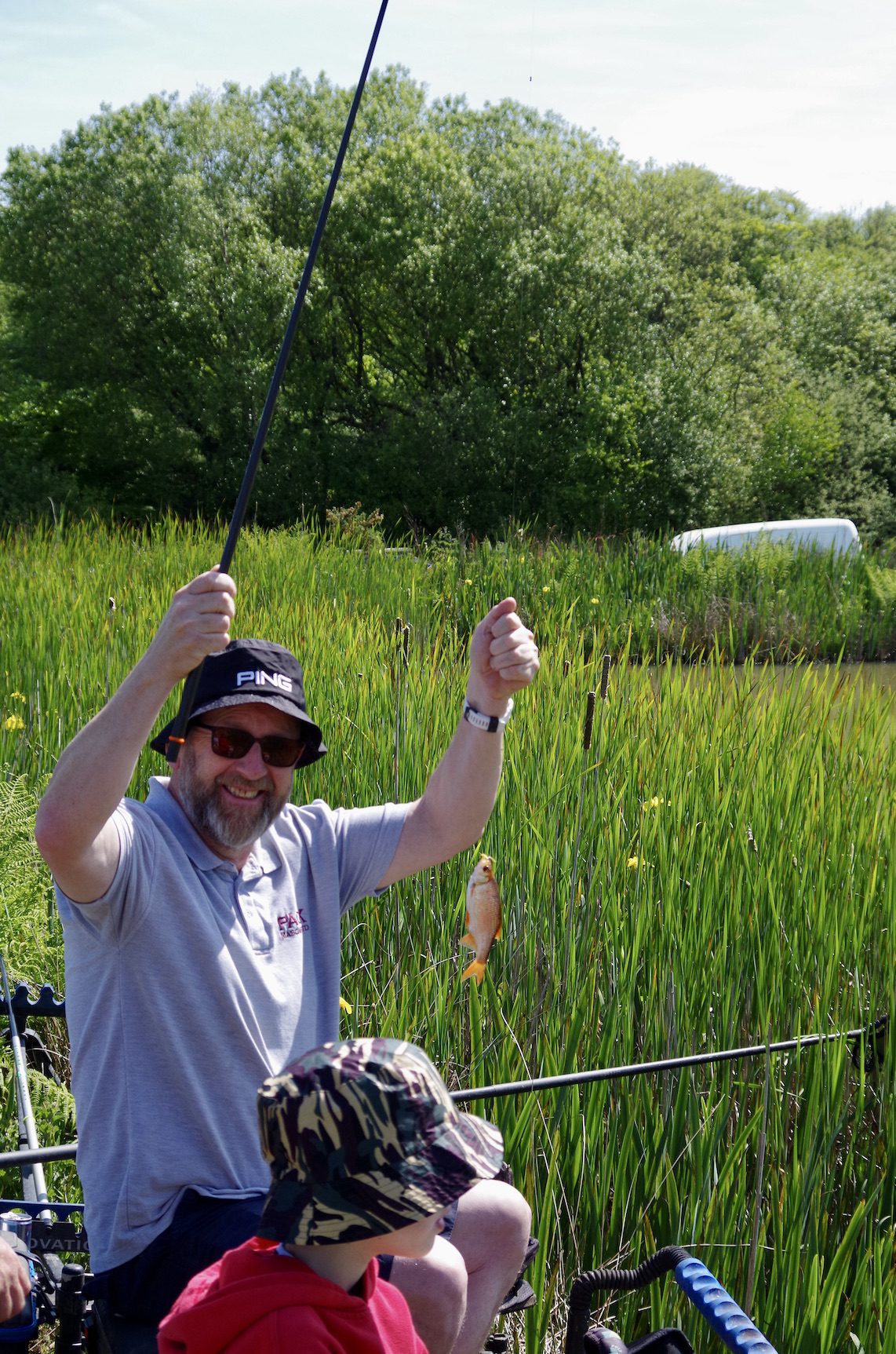
The coaches were kept busy carefully unhooking the fish and explaining the importance of correct handling procedures. The use of unhooking matts, wet hands and correct unhooking tools was explained.
A variety of species were caught including golden rudd, perch, carp and a stunning koi carp of close to 10lb caught by Lewis Jones.
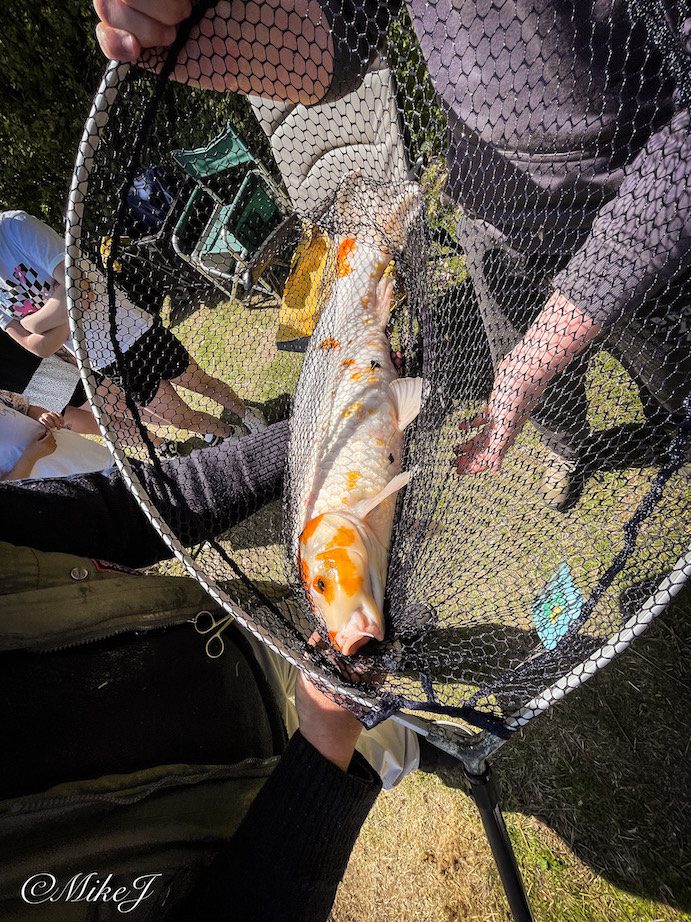
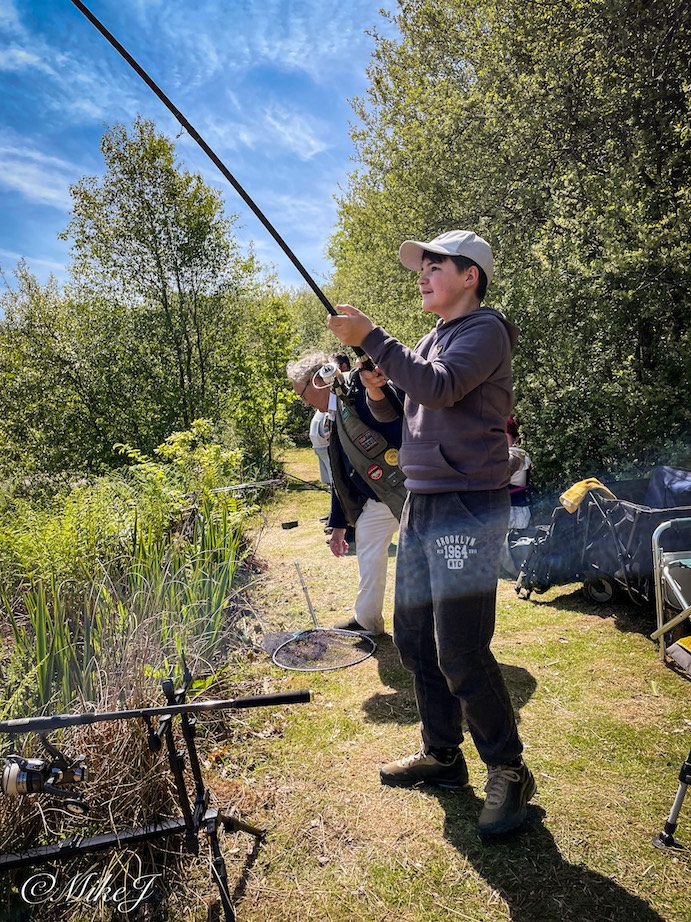
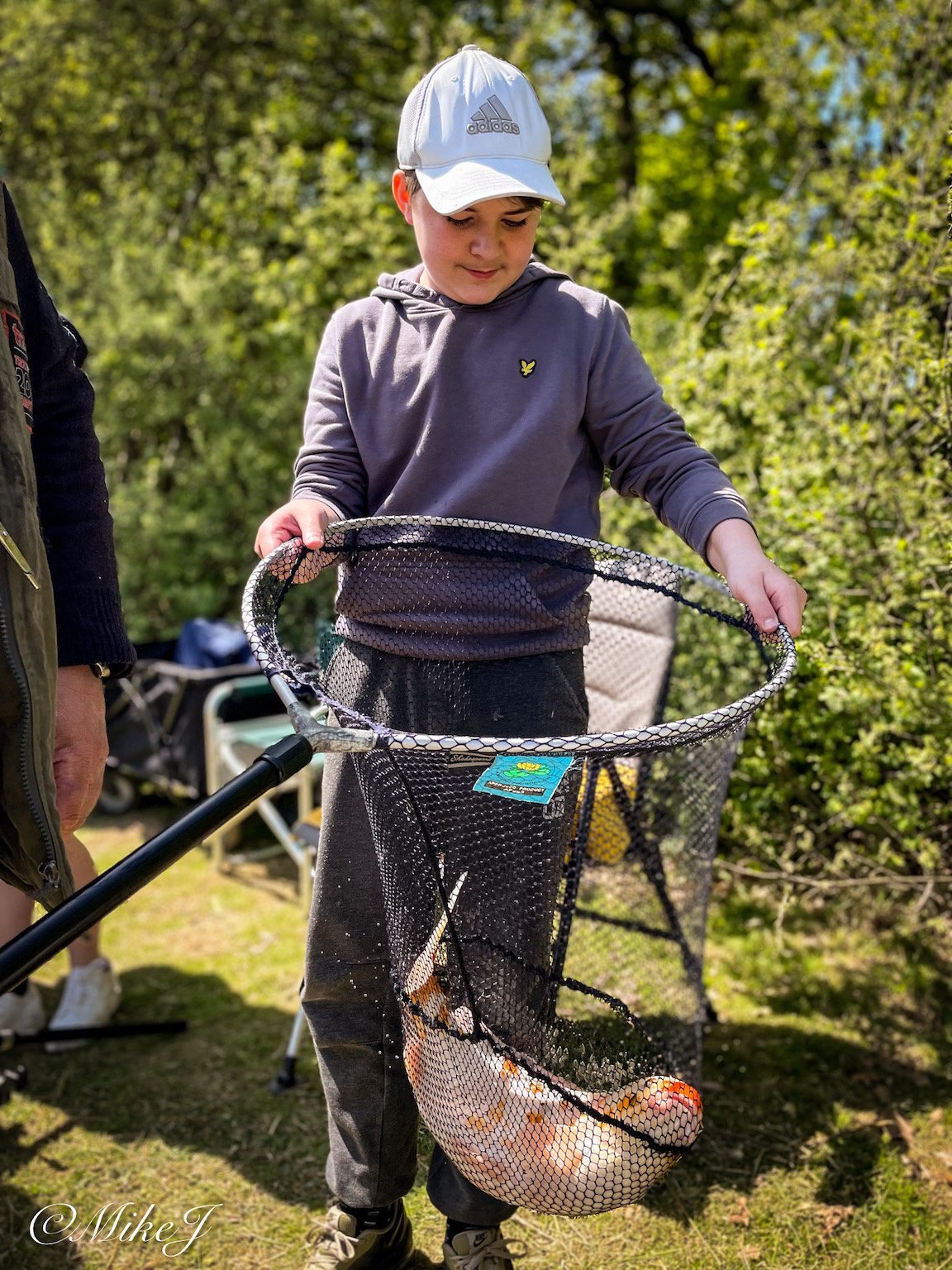
The coaches talked about each fish and pointed out its characteristics, the golden flanks of rudd with scarlet fins, the stripy flanks of perch with their spiky bristling fins and the bronze chain mail flanks of carp.
During my walks around the Lake I caught sight of a bent rod on the cat and carp lake below. I dashed down to witness Paul Hockam land a pleasing catfish. Later in the day his fishing partner Tasha Caunter banked a stunning common carp of 17lb.
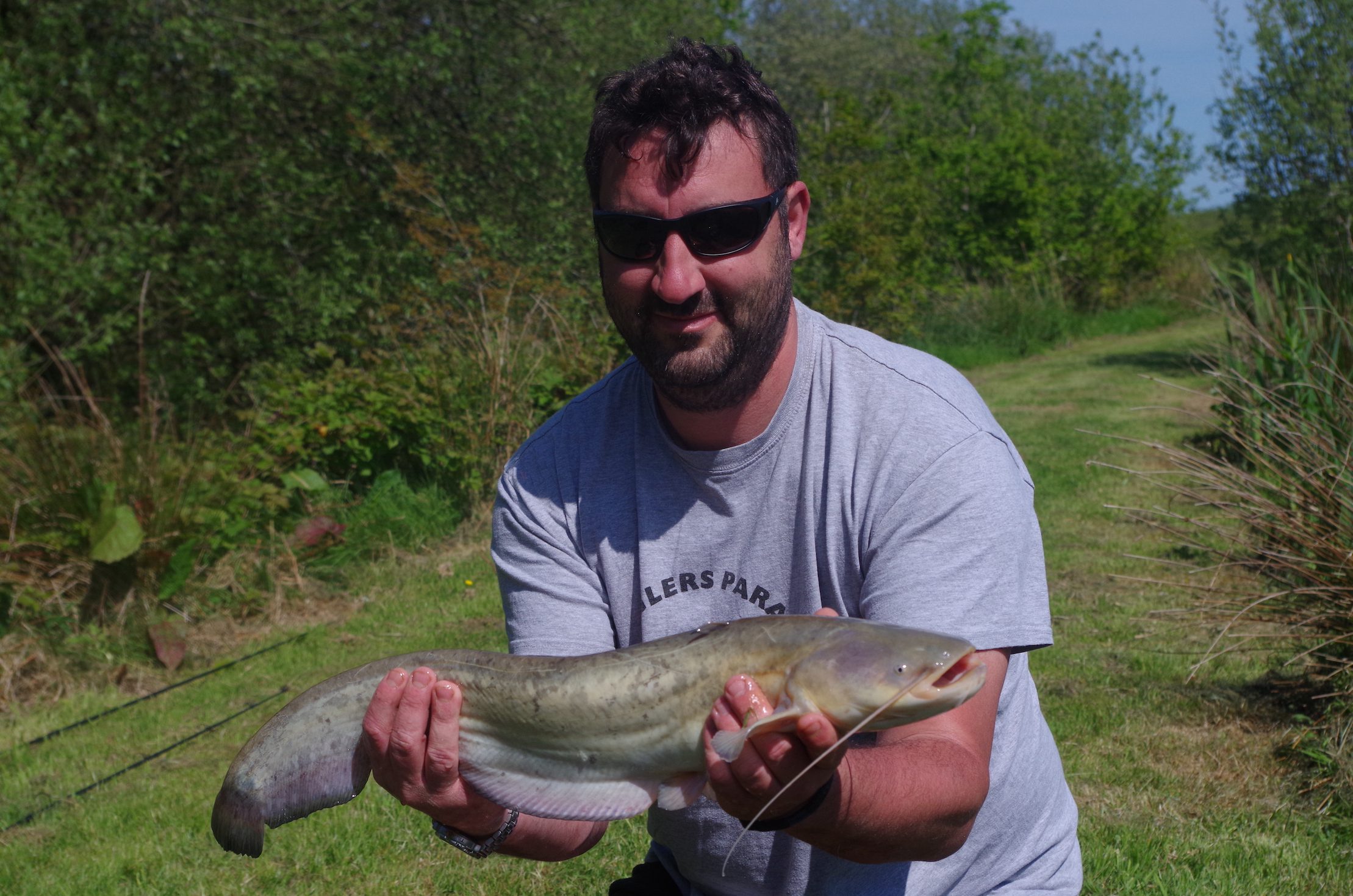
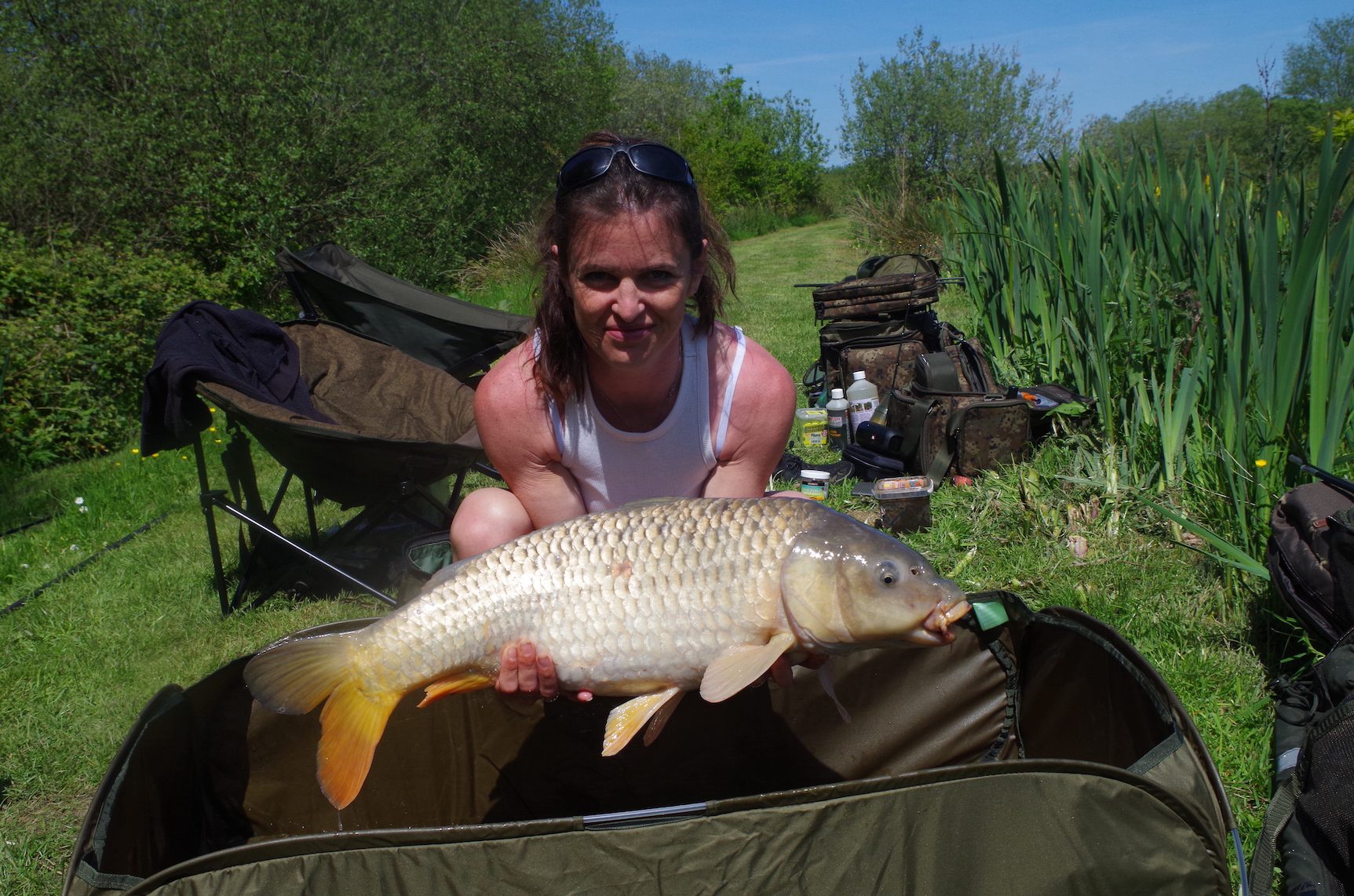
The pupils ranged from families who travelled from across the South West to individual anglers rediscovering the joys of angling. I hoped that some of the young would become hooked by the fascination of angling and follow a journey through life enhanced by days in nature that can nurture mental health. It was also good to share the rediscovery of angling with a man who recalled fishing with his Grandad as a child.
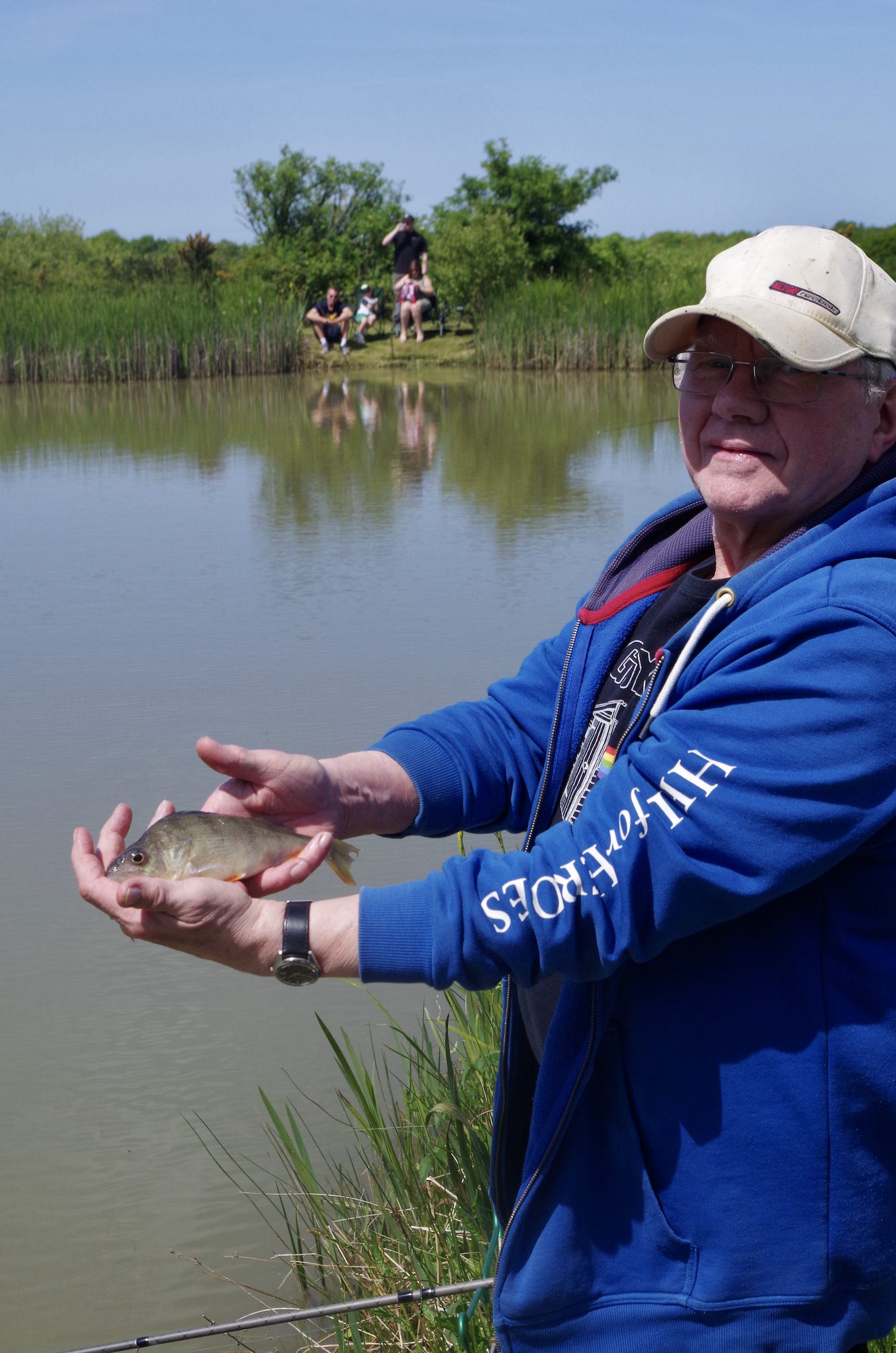
Angling is a passion that can be enjoyed in many different ways. I have commented before how an angling journey can often be plotted with beginners wanting to catch fish, they then wish to catch more fish, bigger fish or maybe more than their fellow angler. At some point they perhaps rediscover the simple of joy of just going fishing.
By the end of the morning session most pupils had caught a fish and hopefully most will want to return to the water’s edge again.
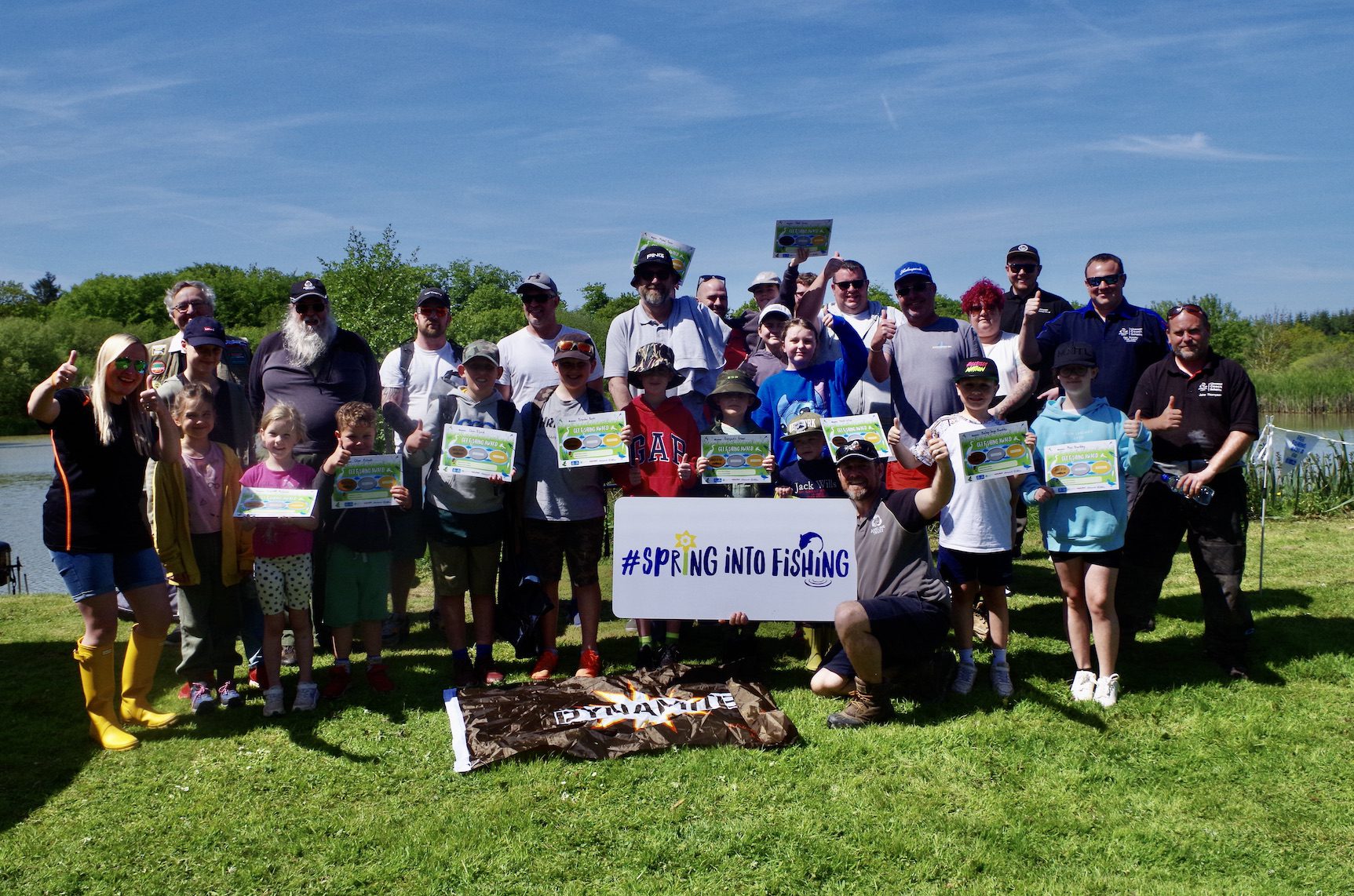
During the short dinner break between the two session’s I chatted with Dean Asplin Angling Development Manager for the Angling Trust. Dean works with the trust and its volunteer coaches to organise these valuable events at participating fisheries across the country.
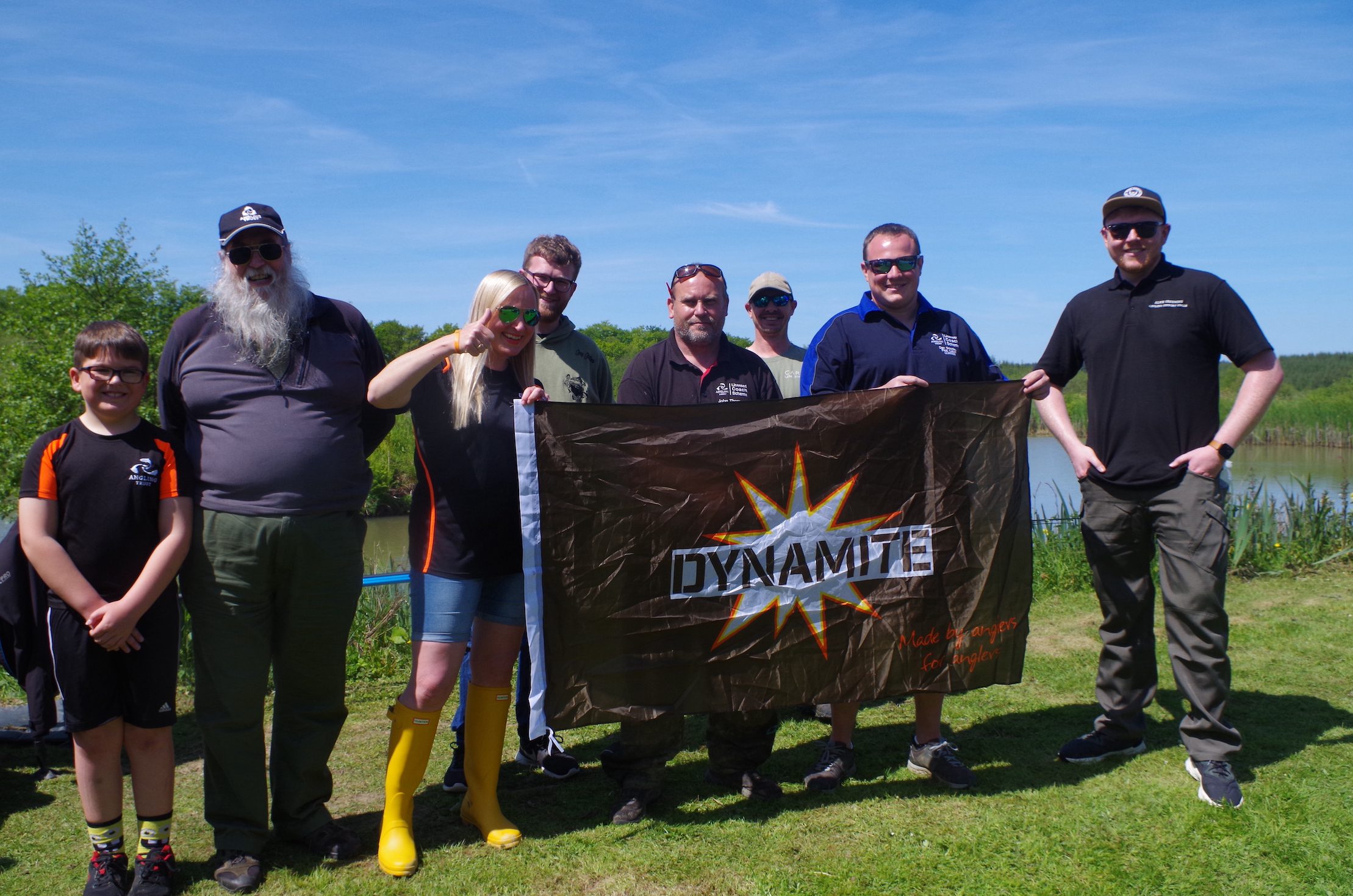
Dean told me that they are very busy at present with many eager to sample fishing. Zenia Gregorek of the Anglers Paradise complex is a passionate supporter of the Angling Trust and thanked Dynamite baits and Shakespeare Tackle for their generous support. Anglers Paradise continues to grow and there are many exciting plans for the future that I will continue to share here on North Devon Angling News
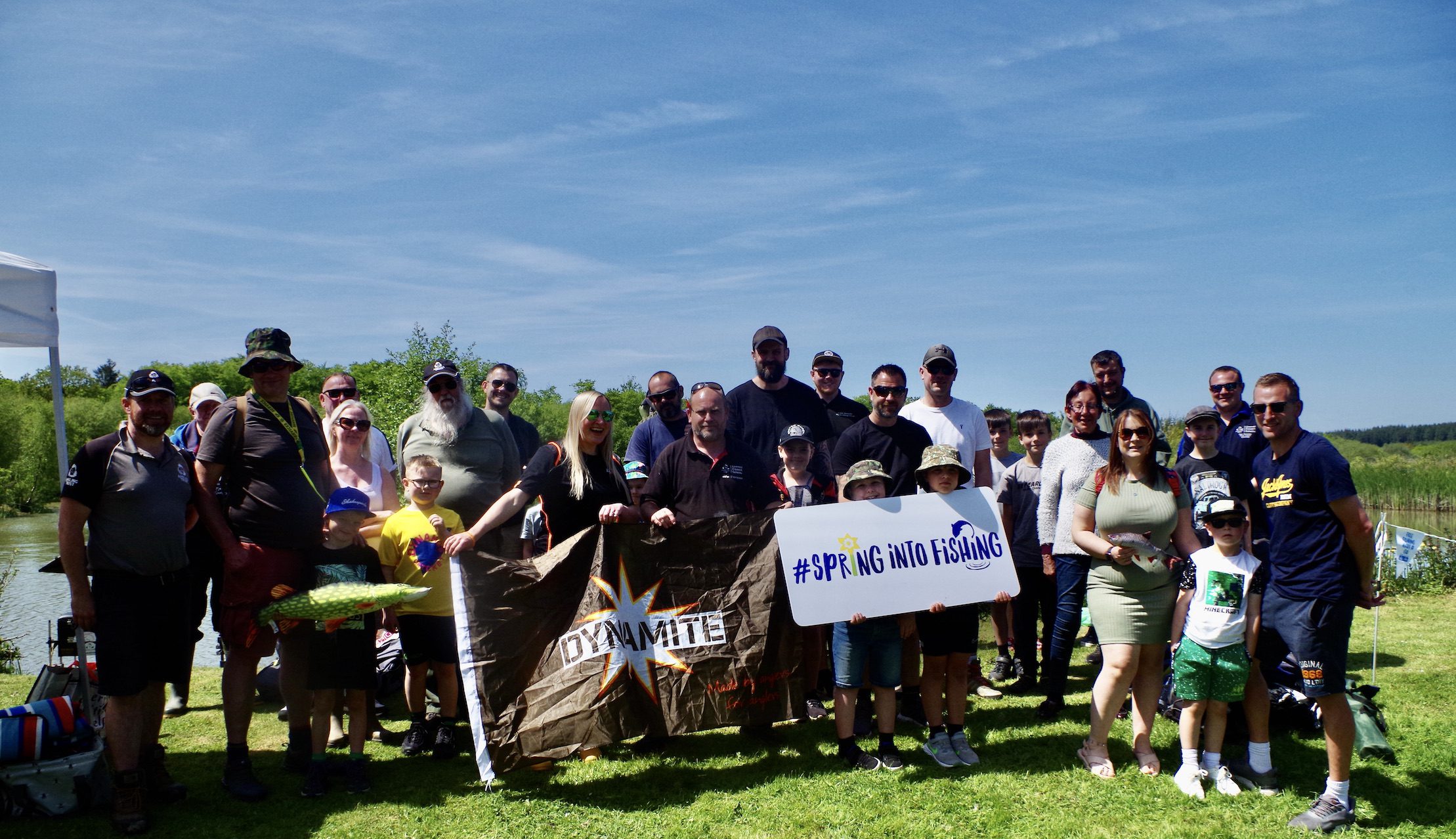
Before the afternoon session commenced I called for a quick group photo as another group of budding anglers converged on the water. After the busy morning the fish seemed less inclined to dine and action was less frantic. With coaches having to explain why it is called fishing and not catching.
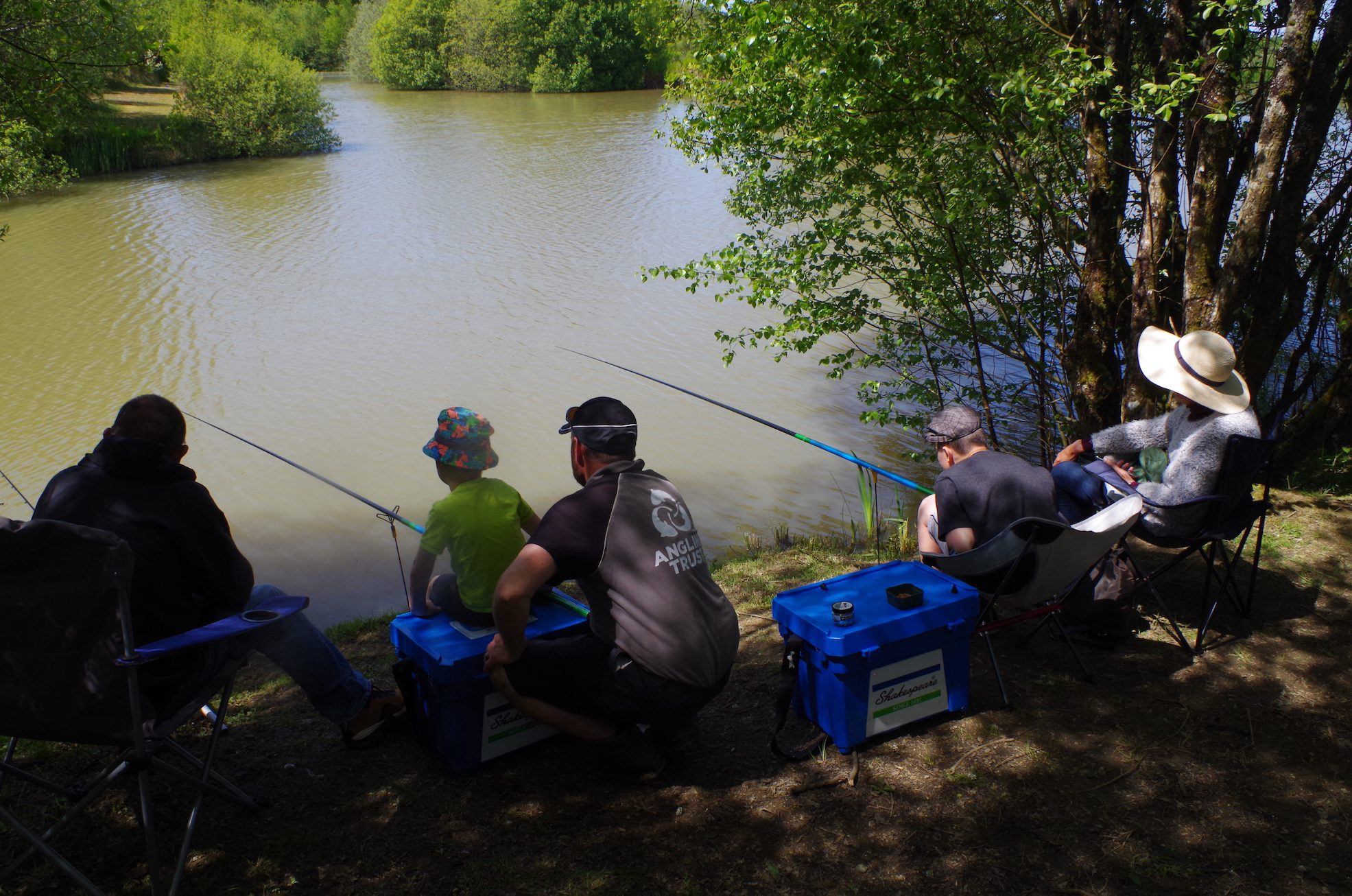
Despite the slower fishing there were plenty of smiling faces as I departed for home with a camera full of the days images.
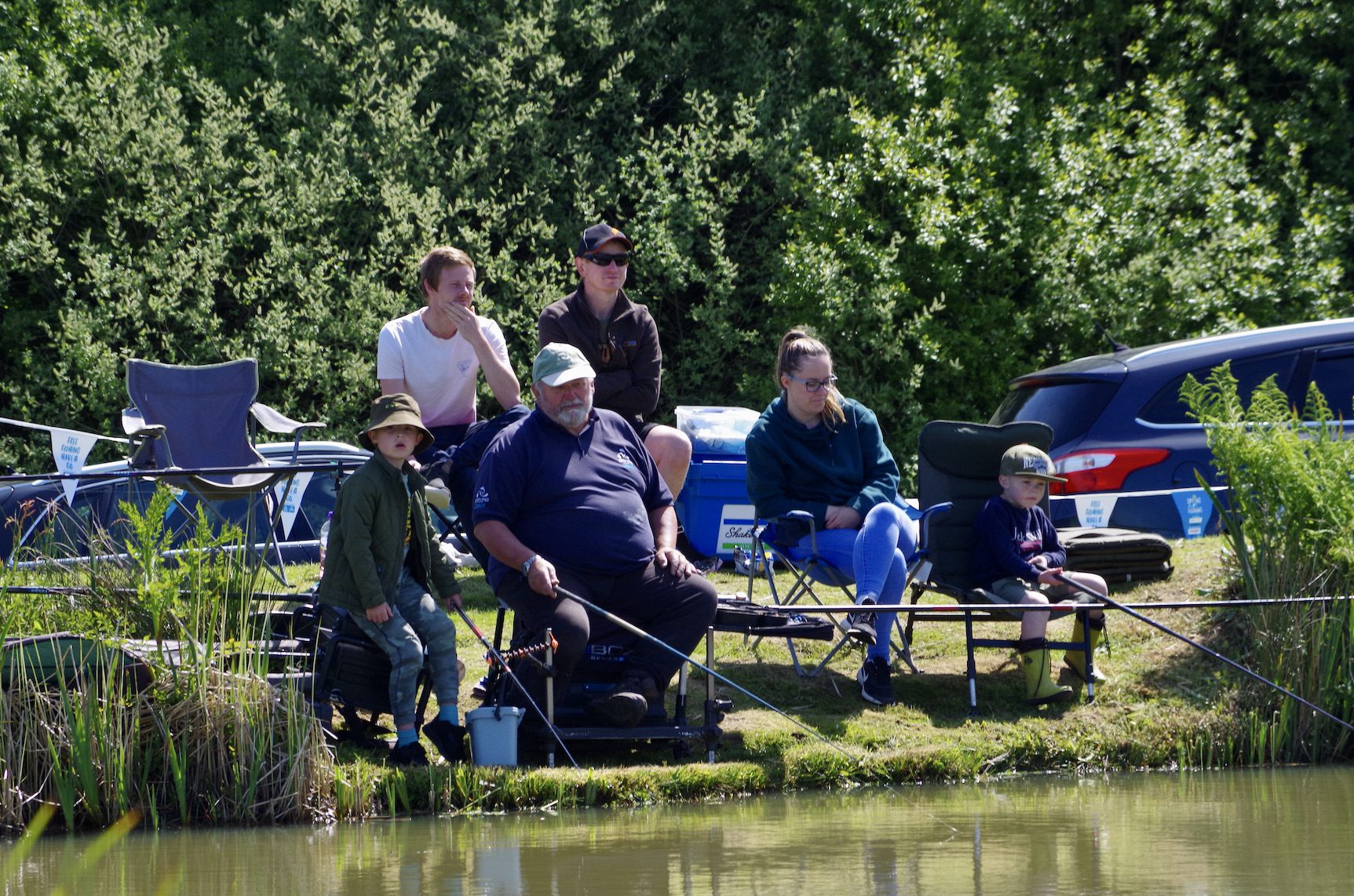
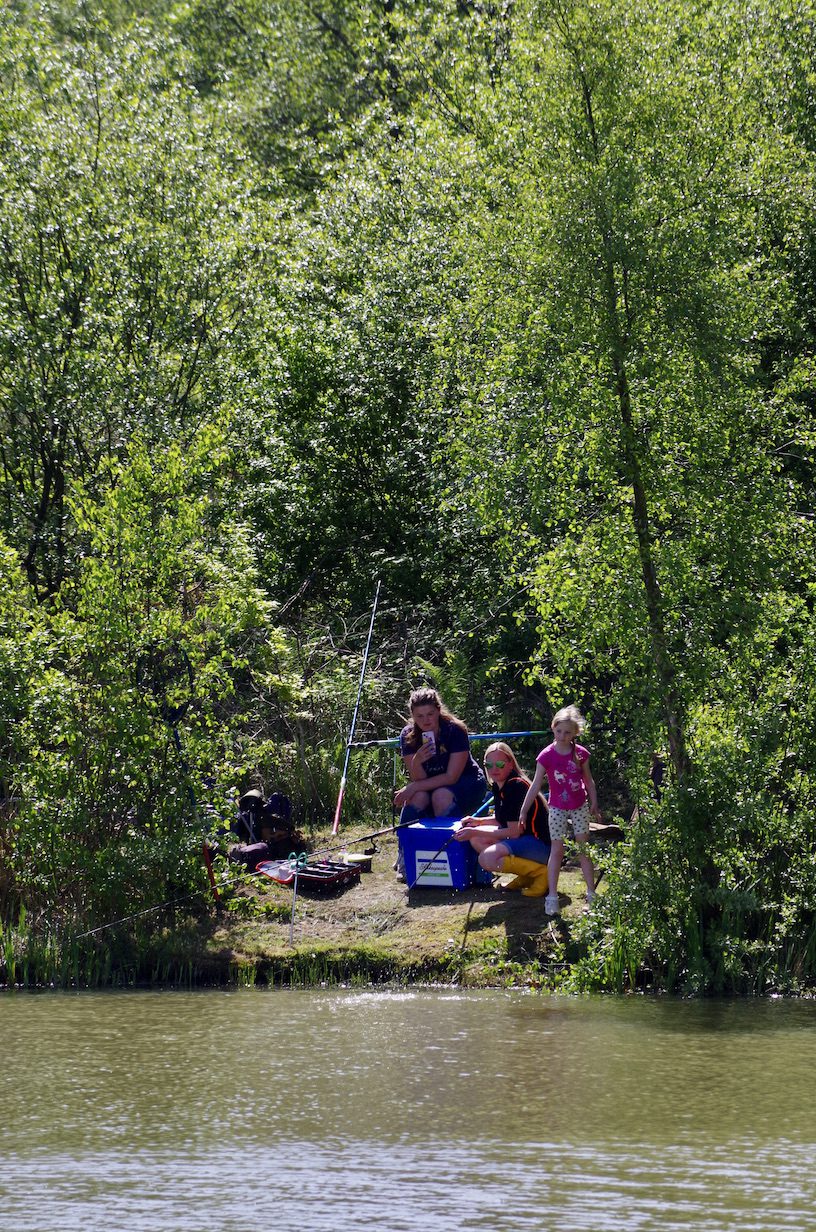
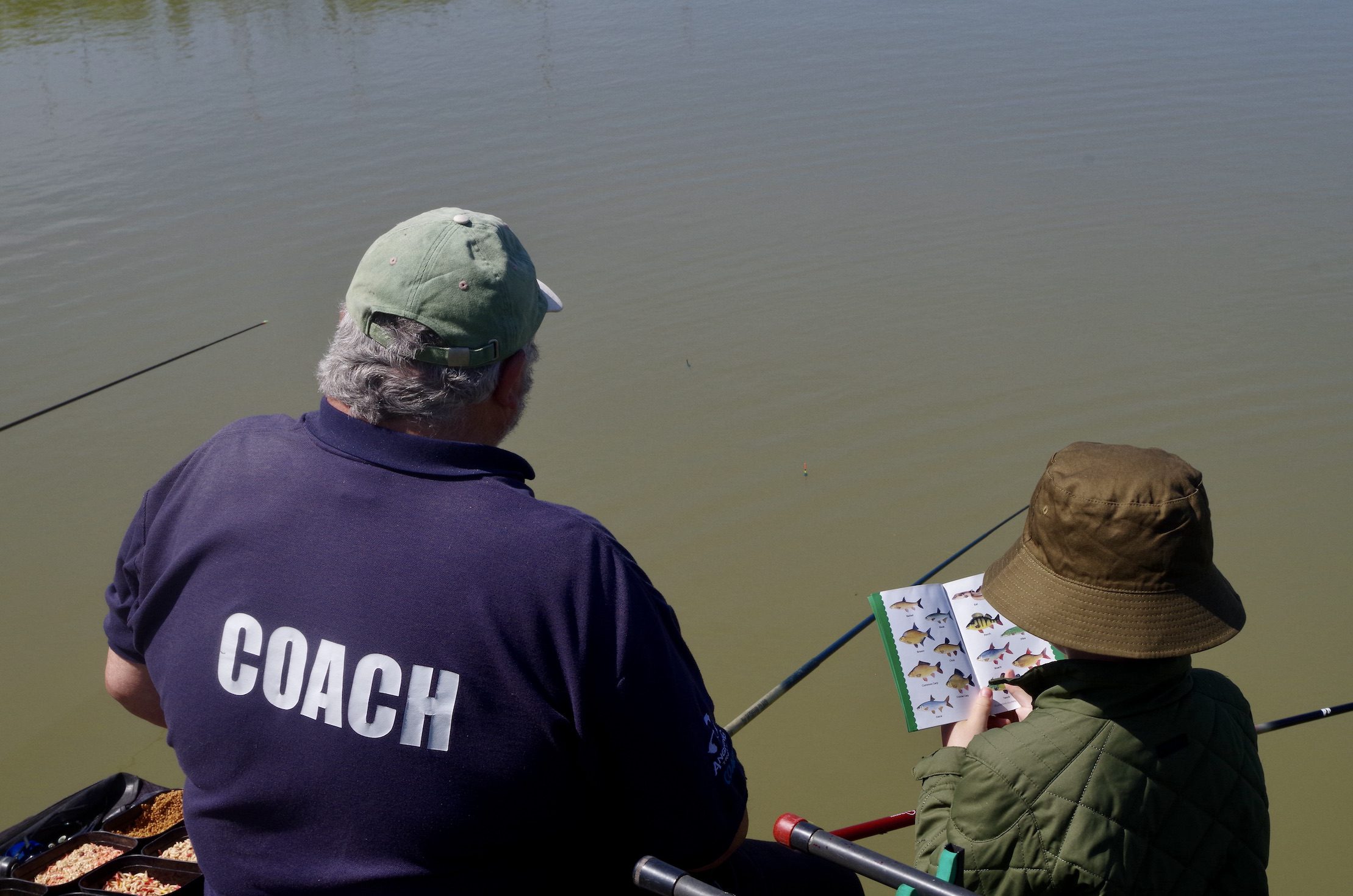
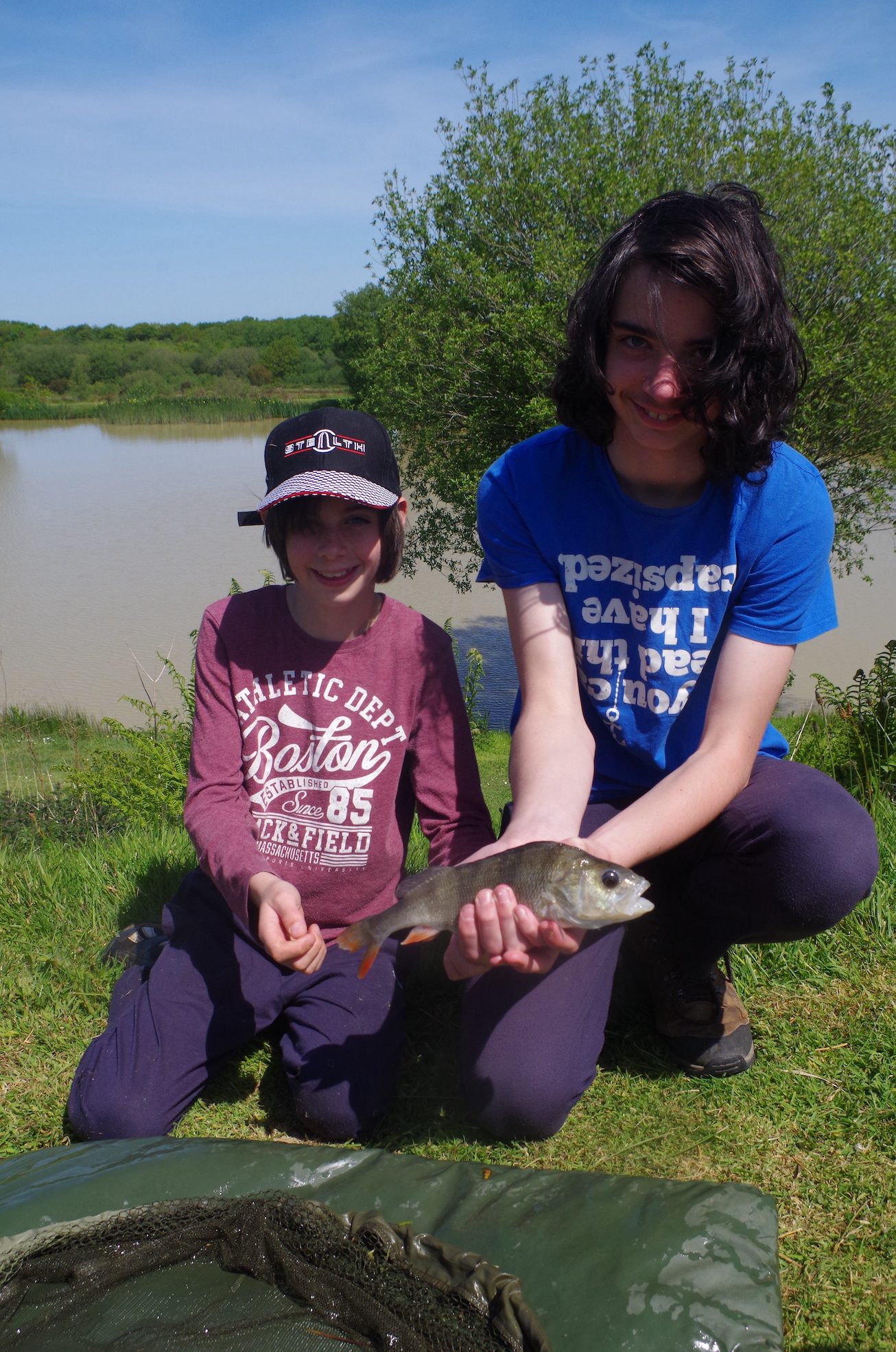
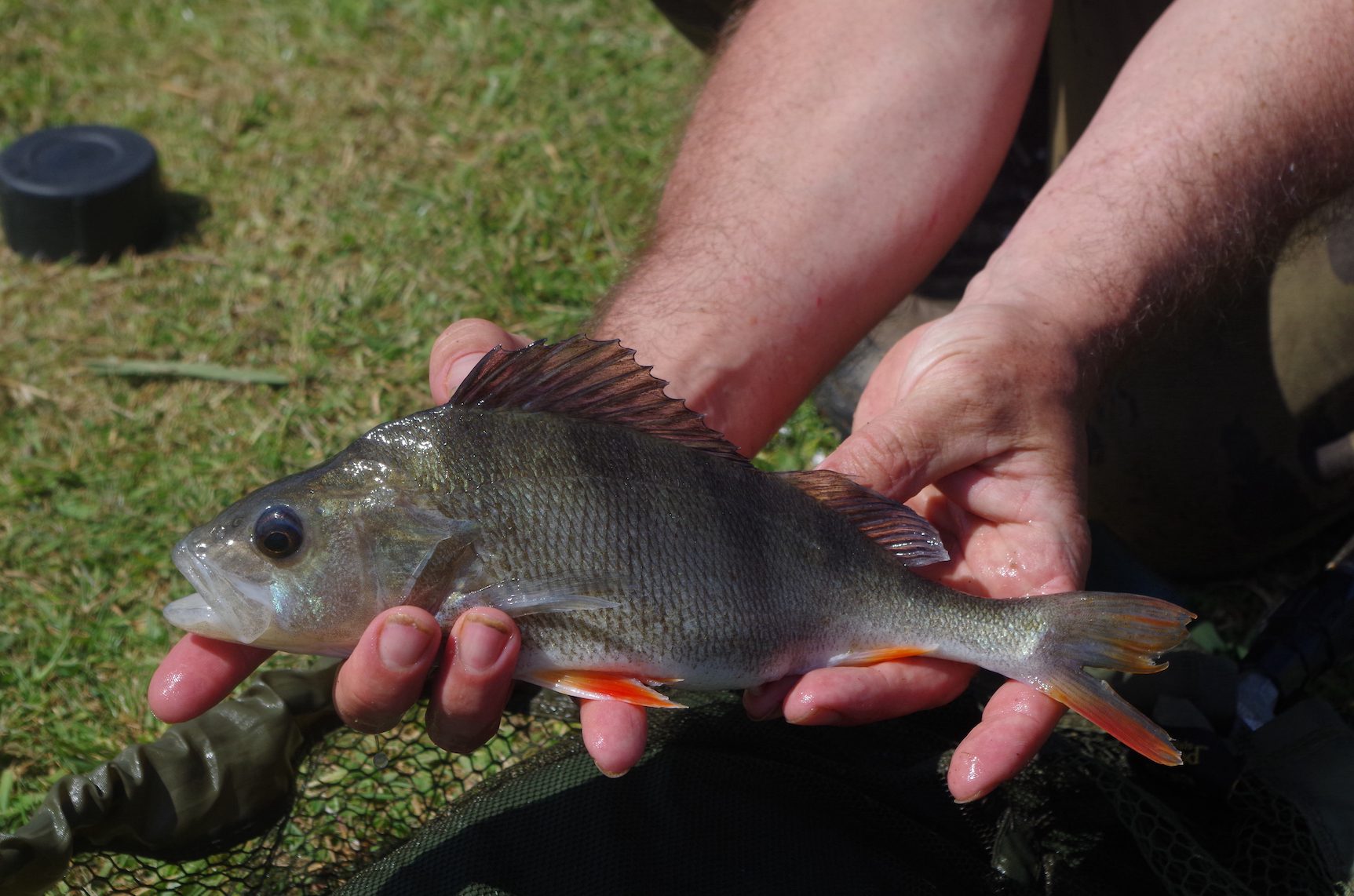
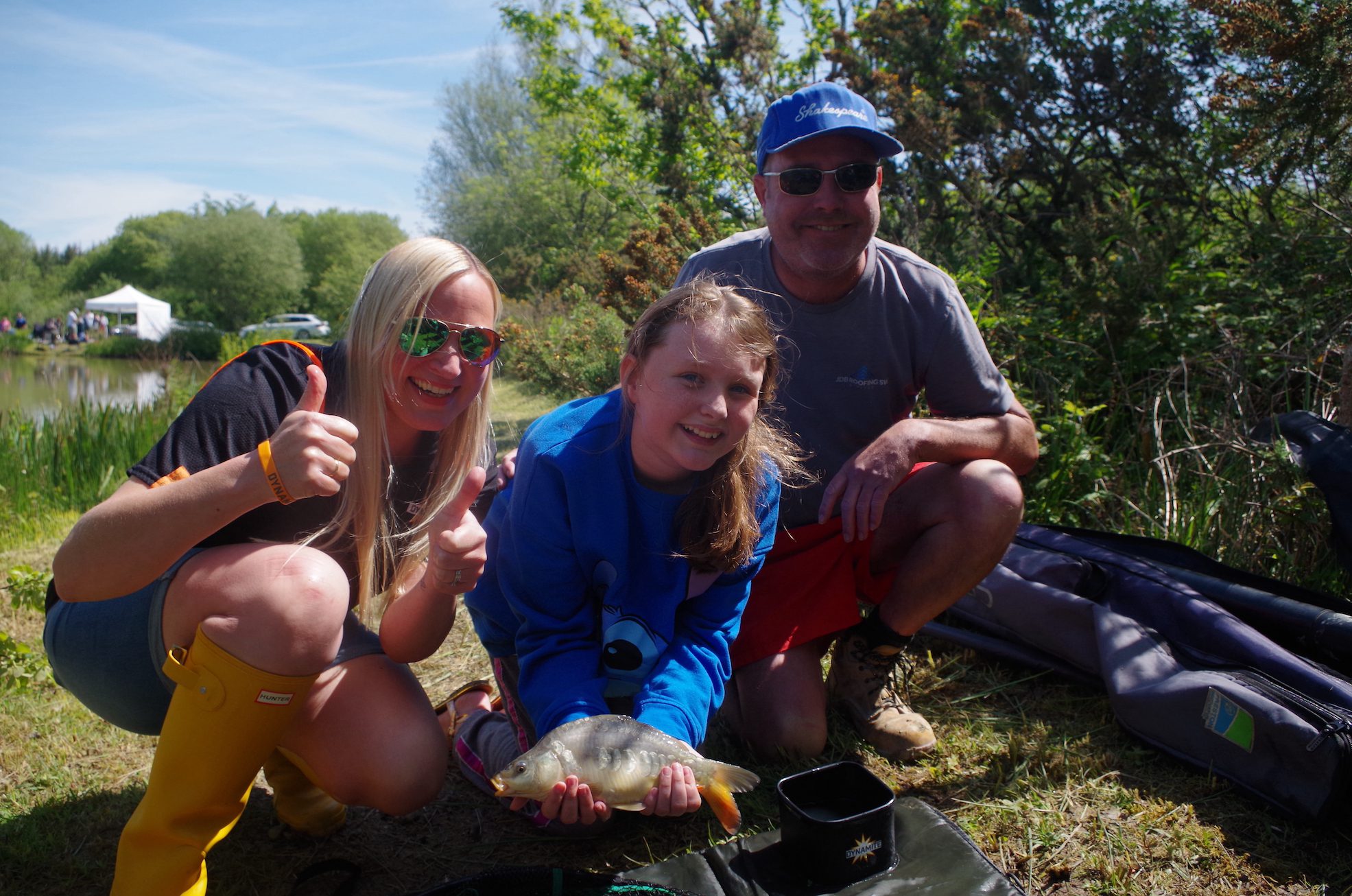
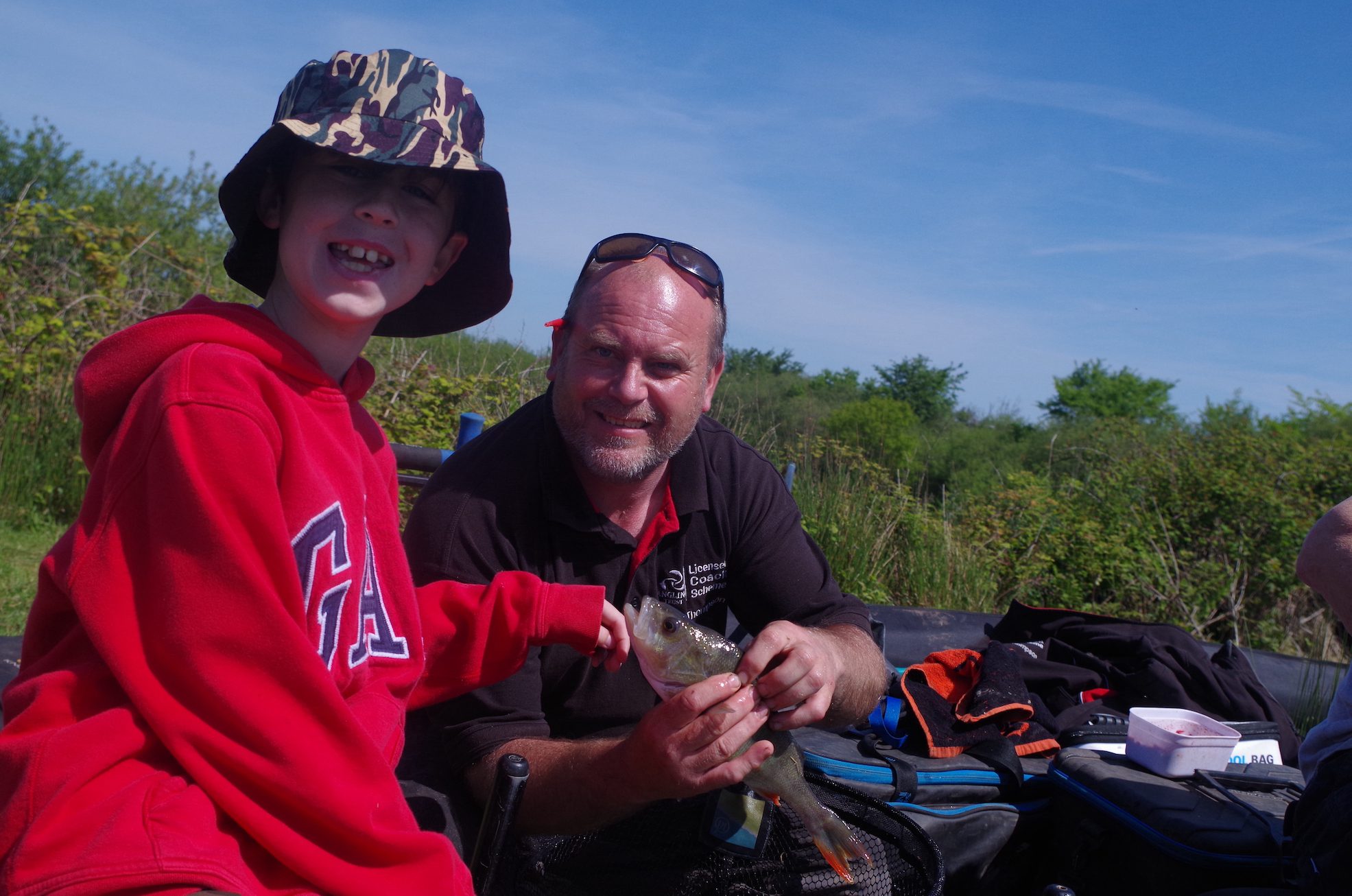
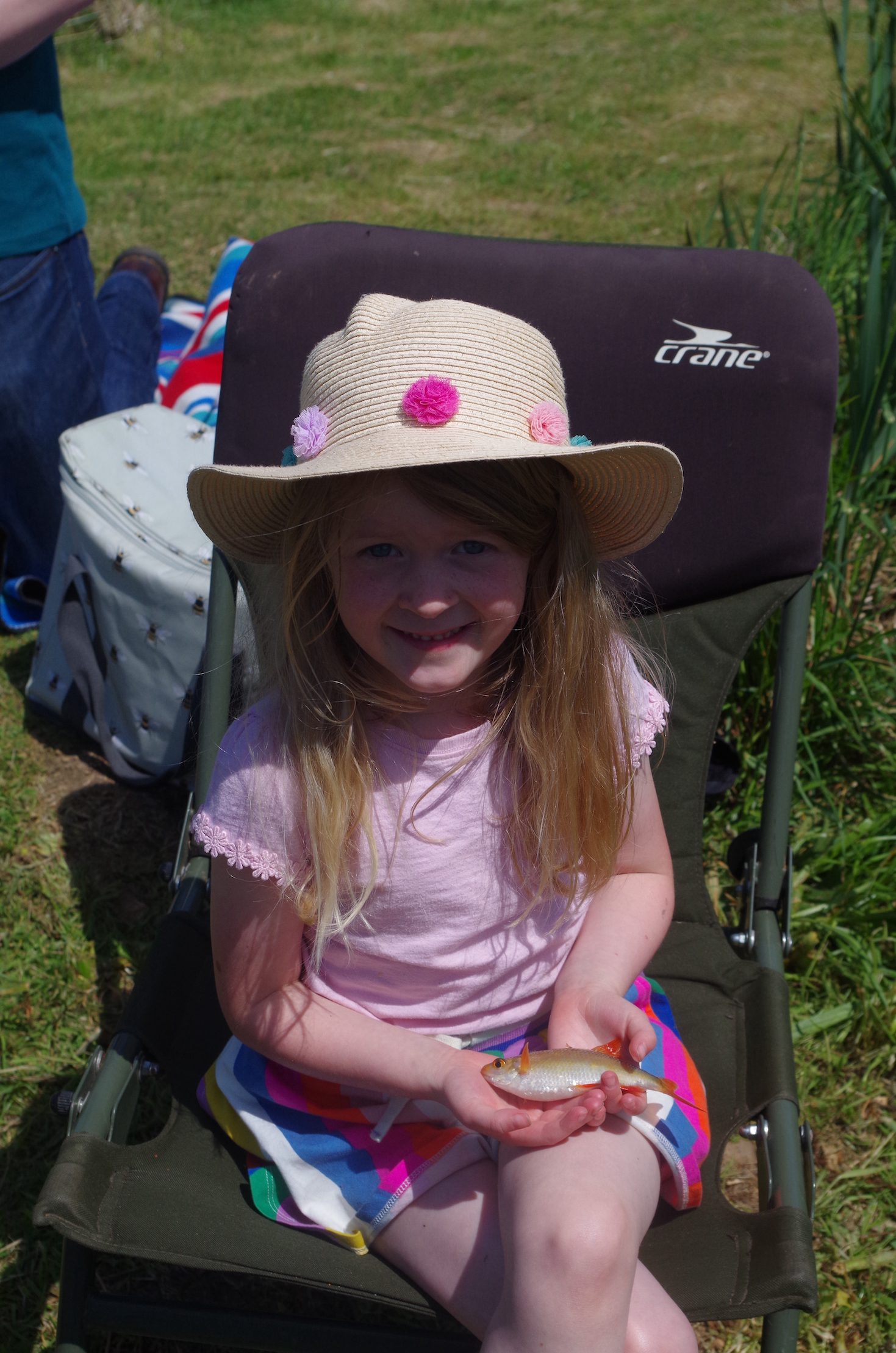
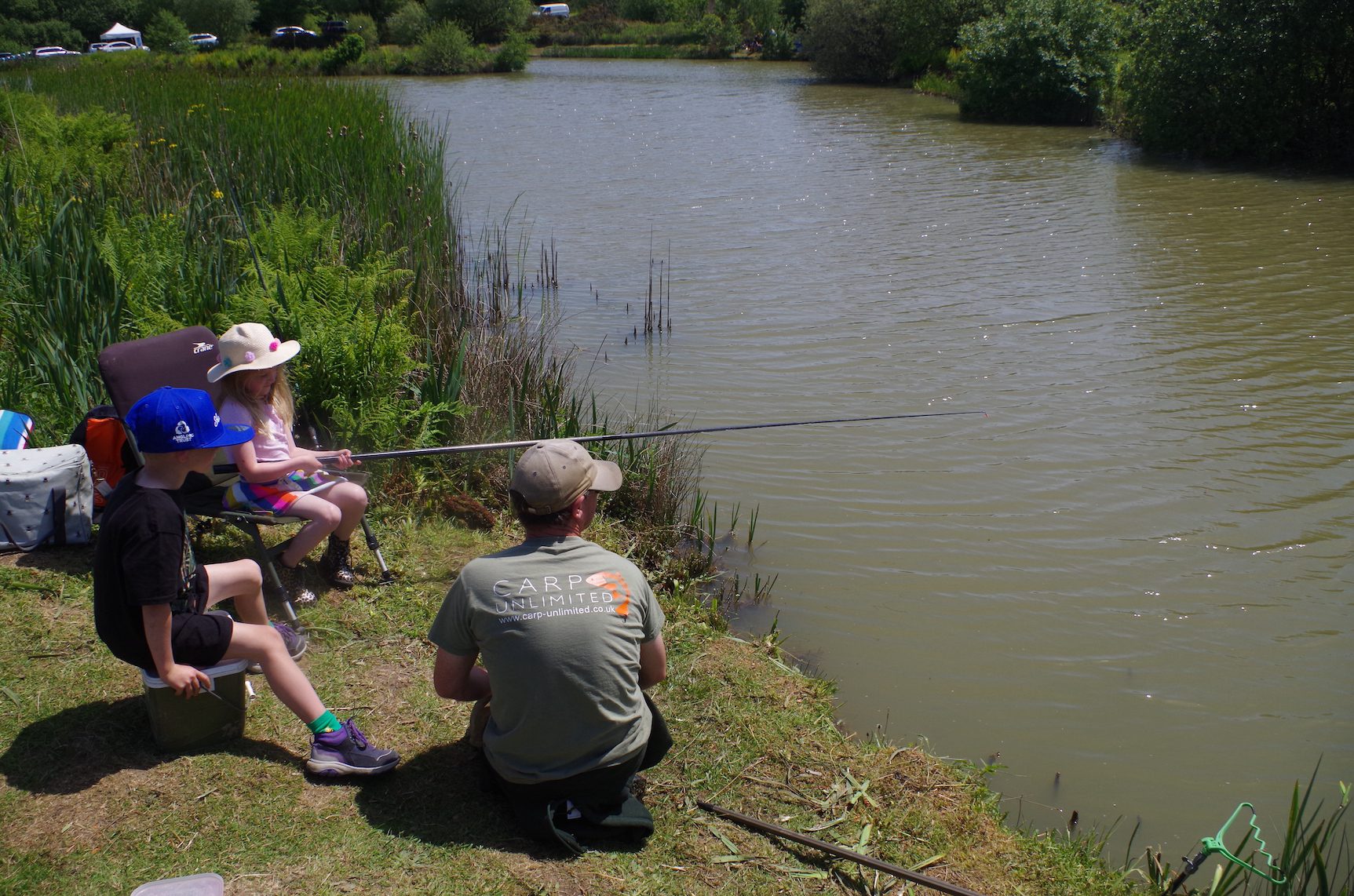
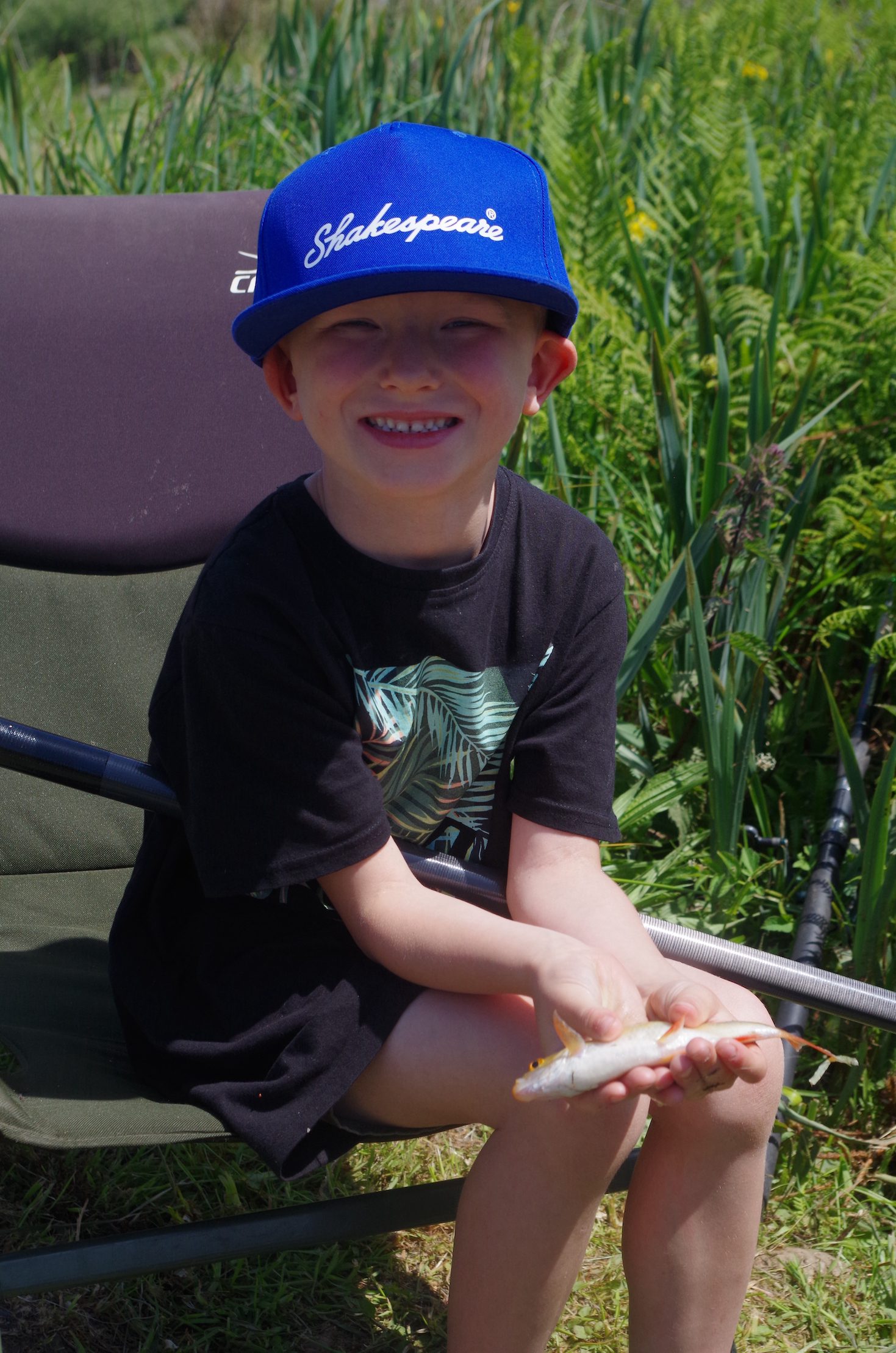
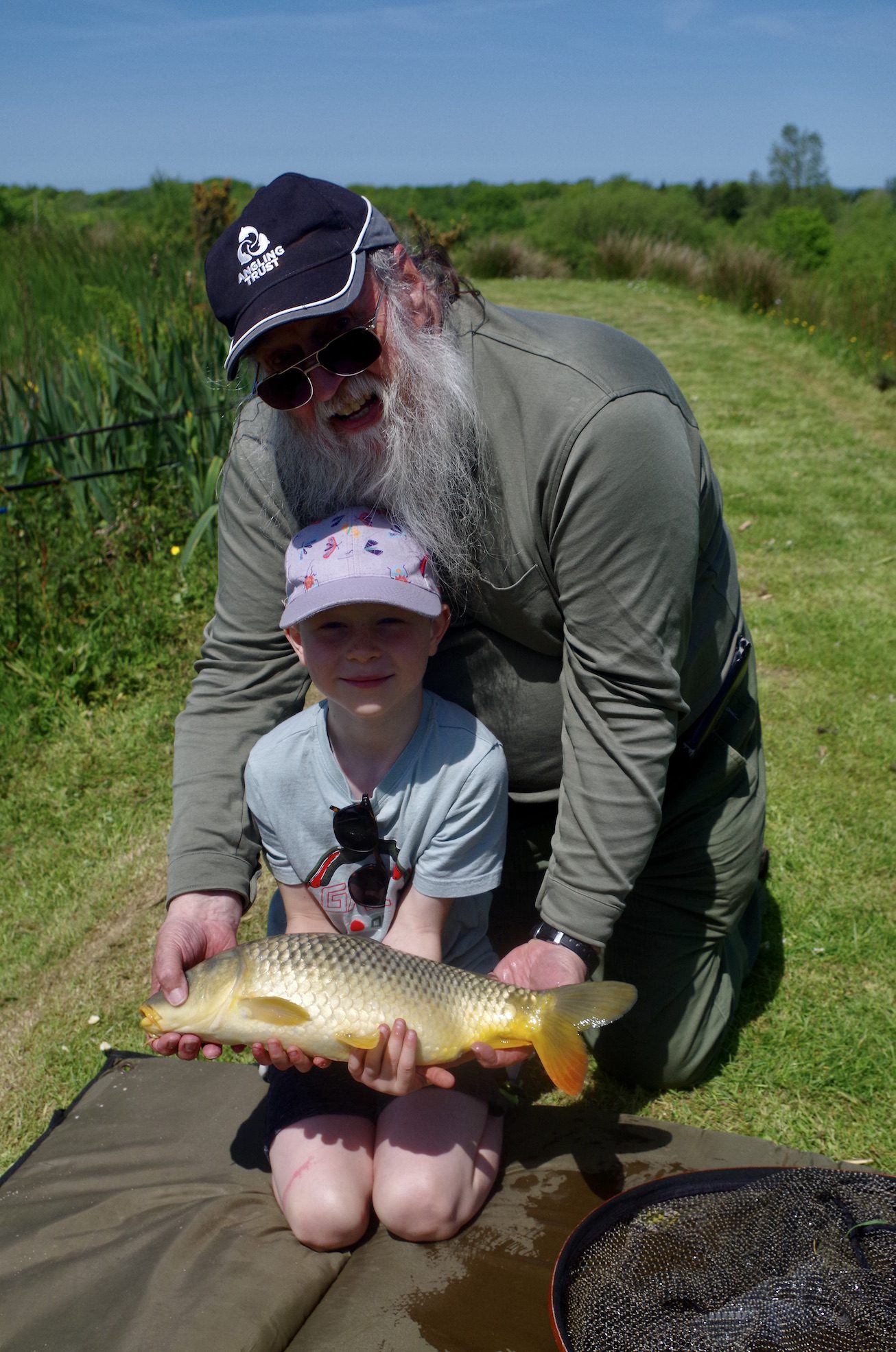
Edward Steward with a fine common carp
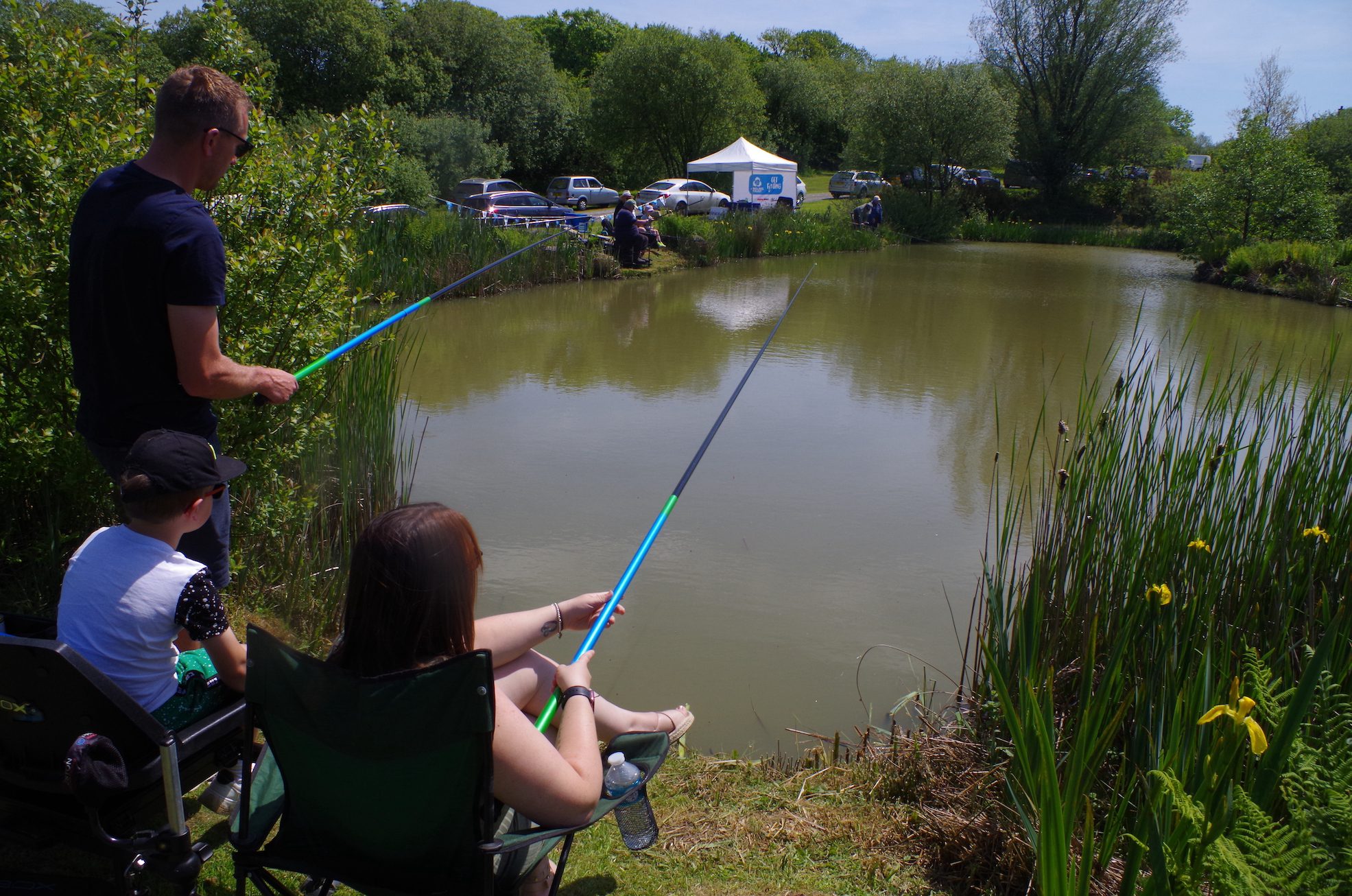
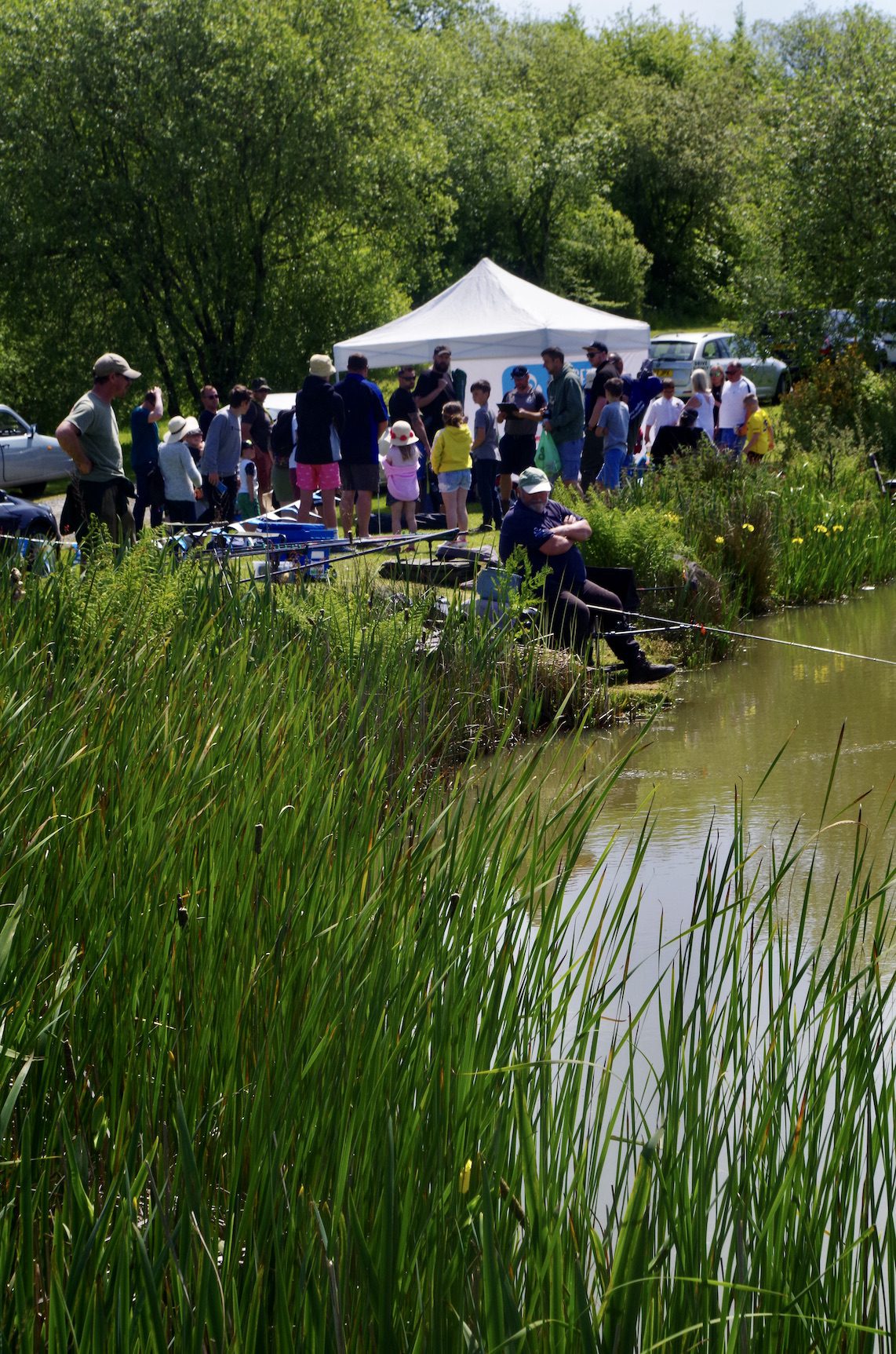
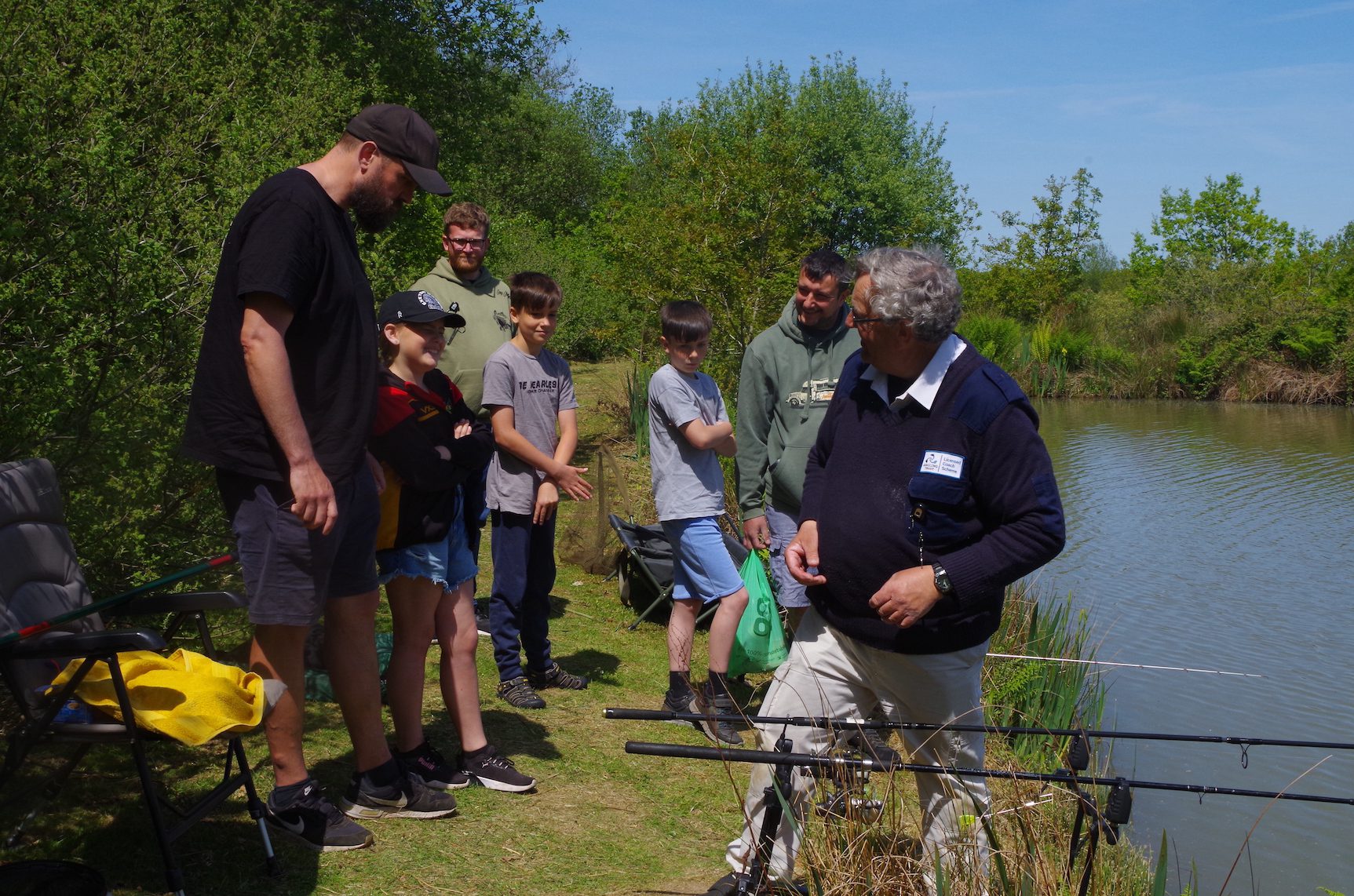
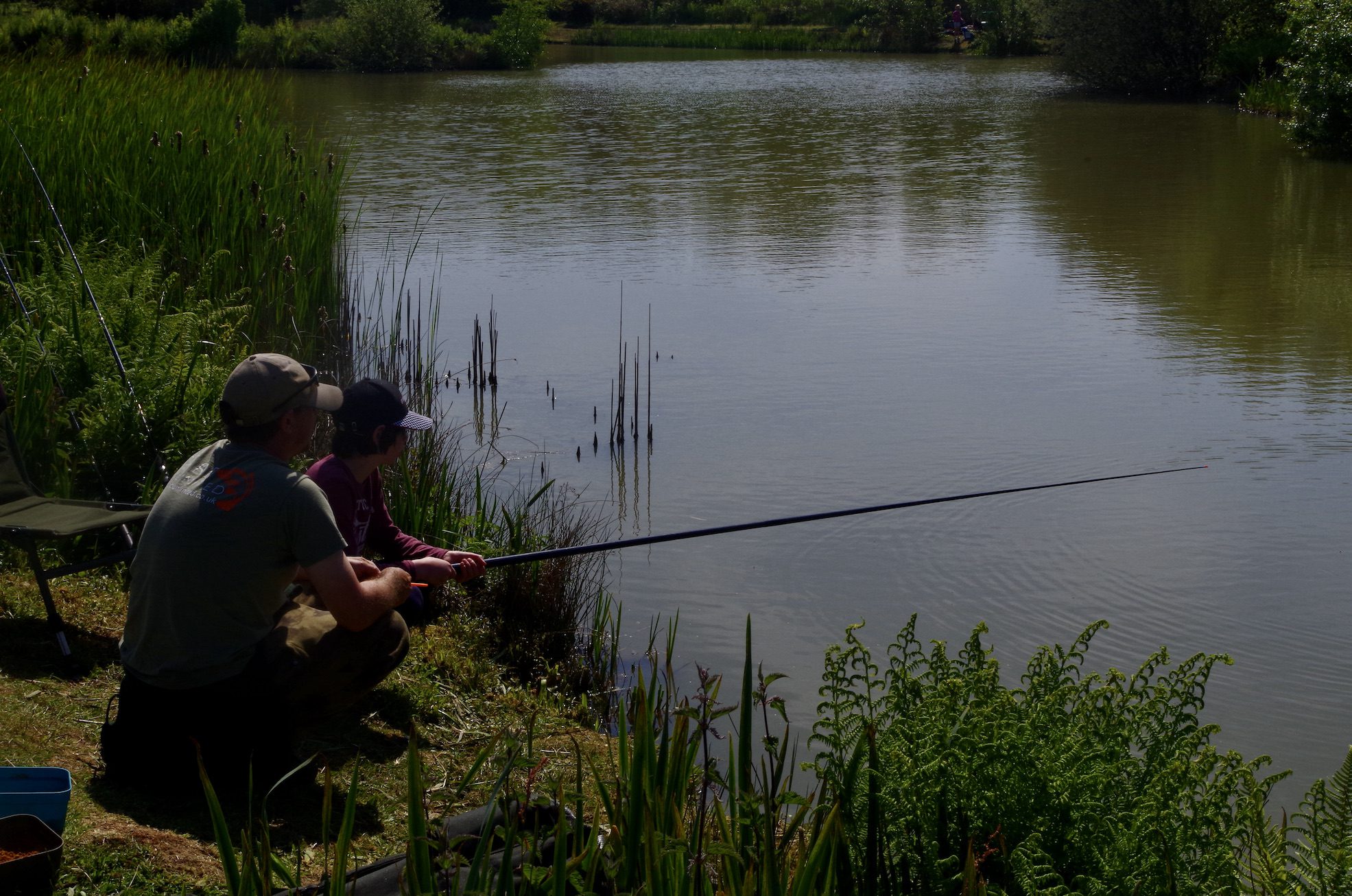
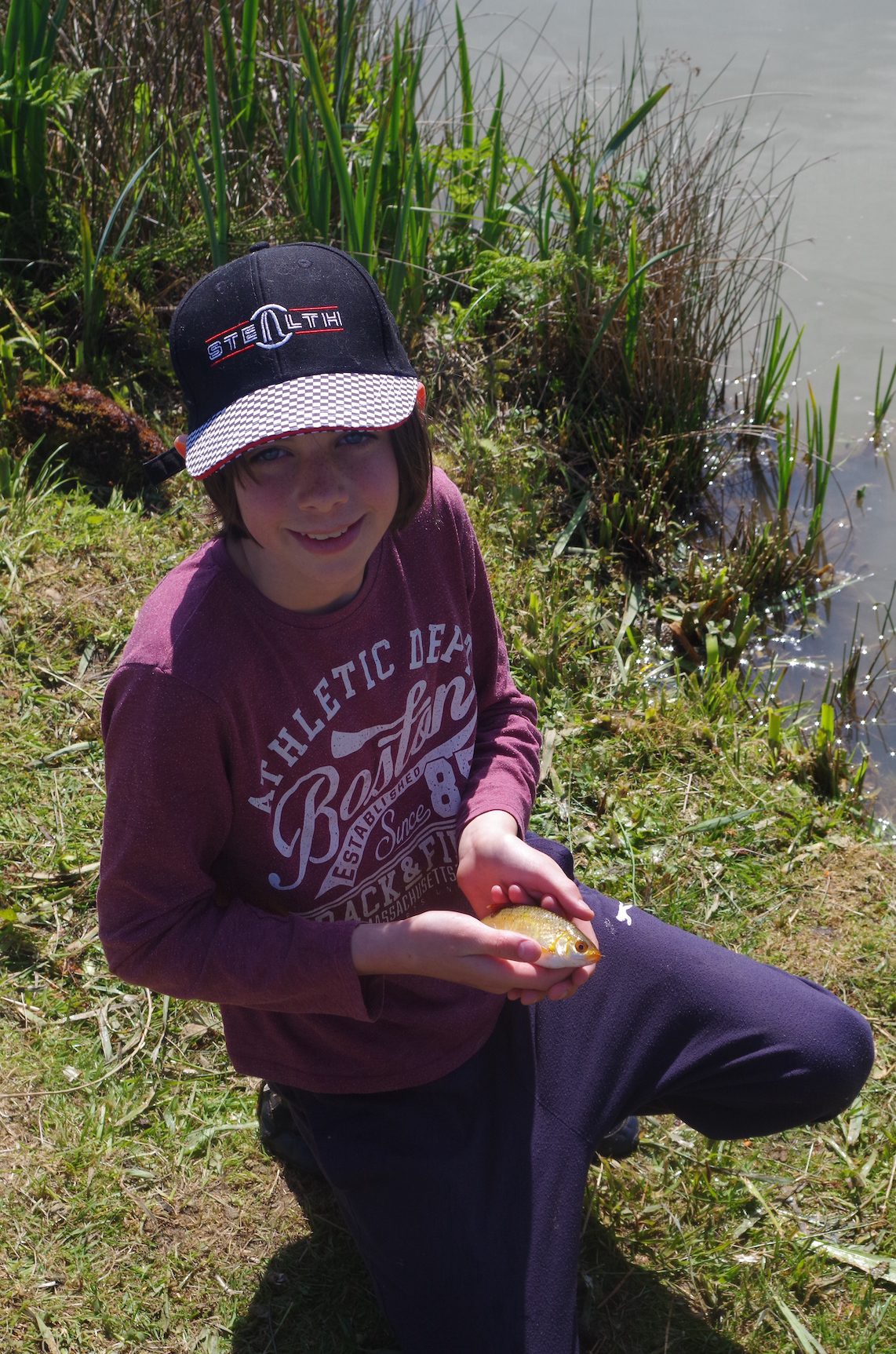
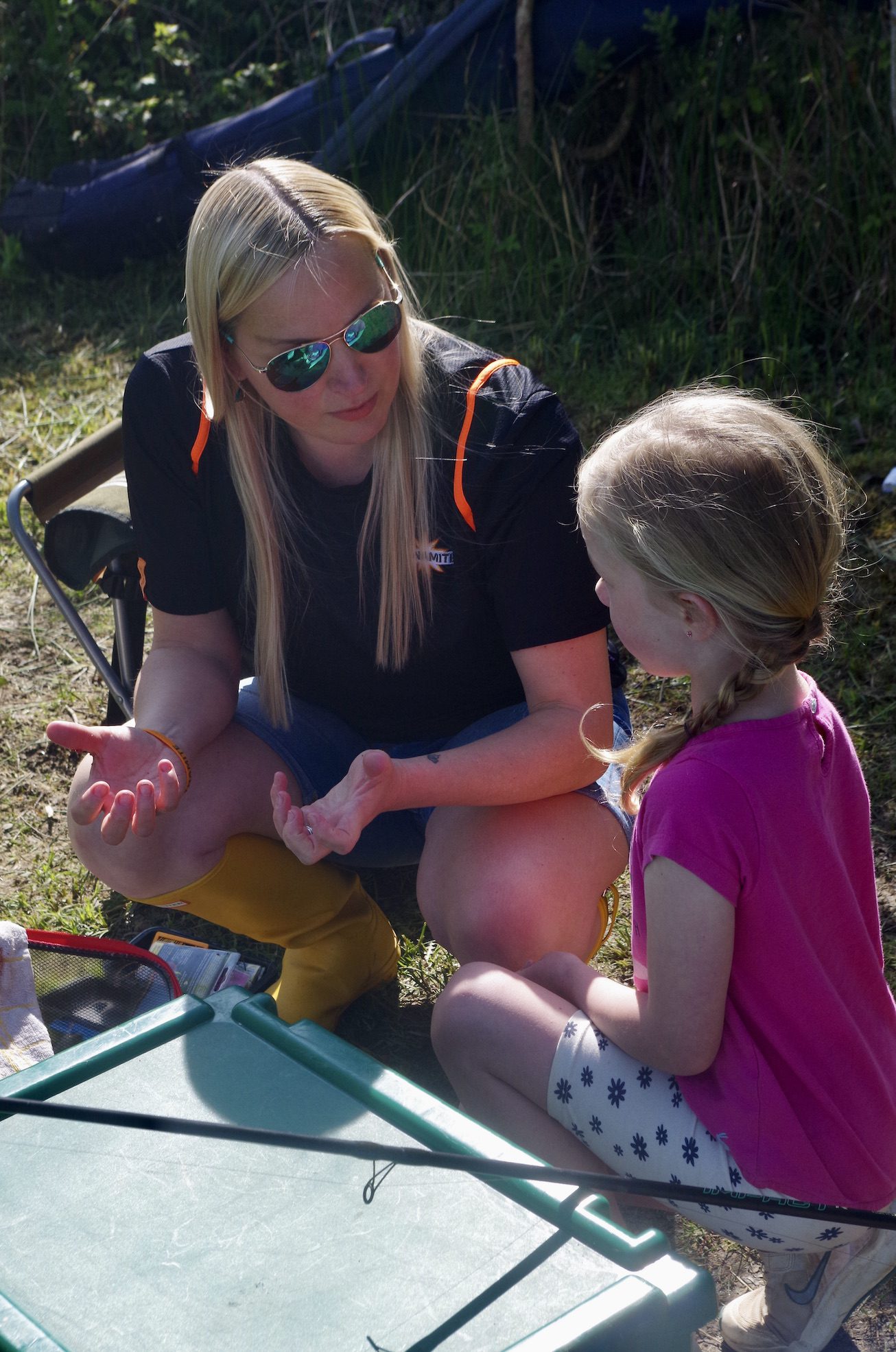
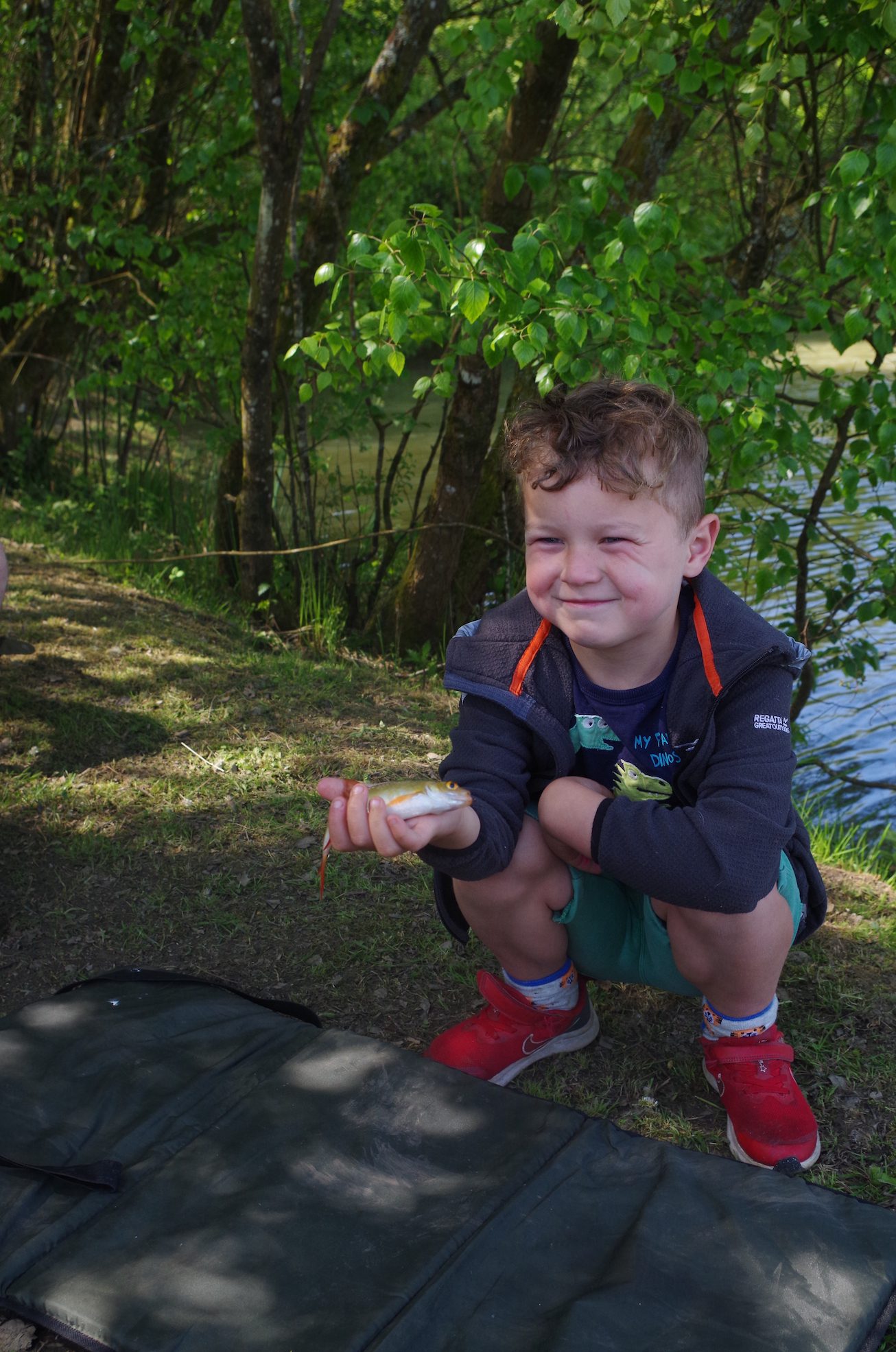
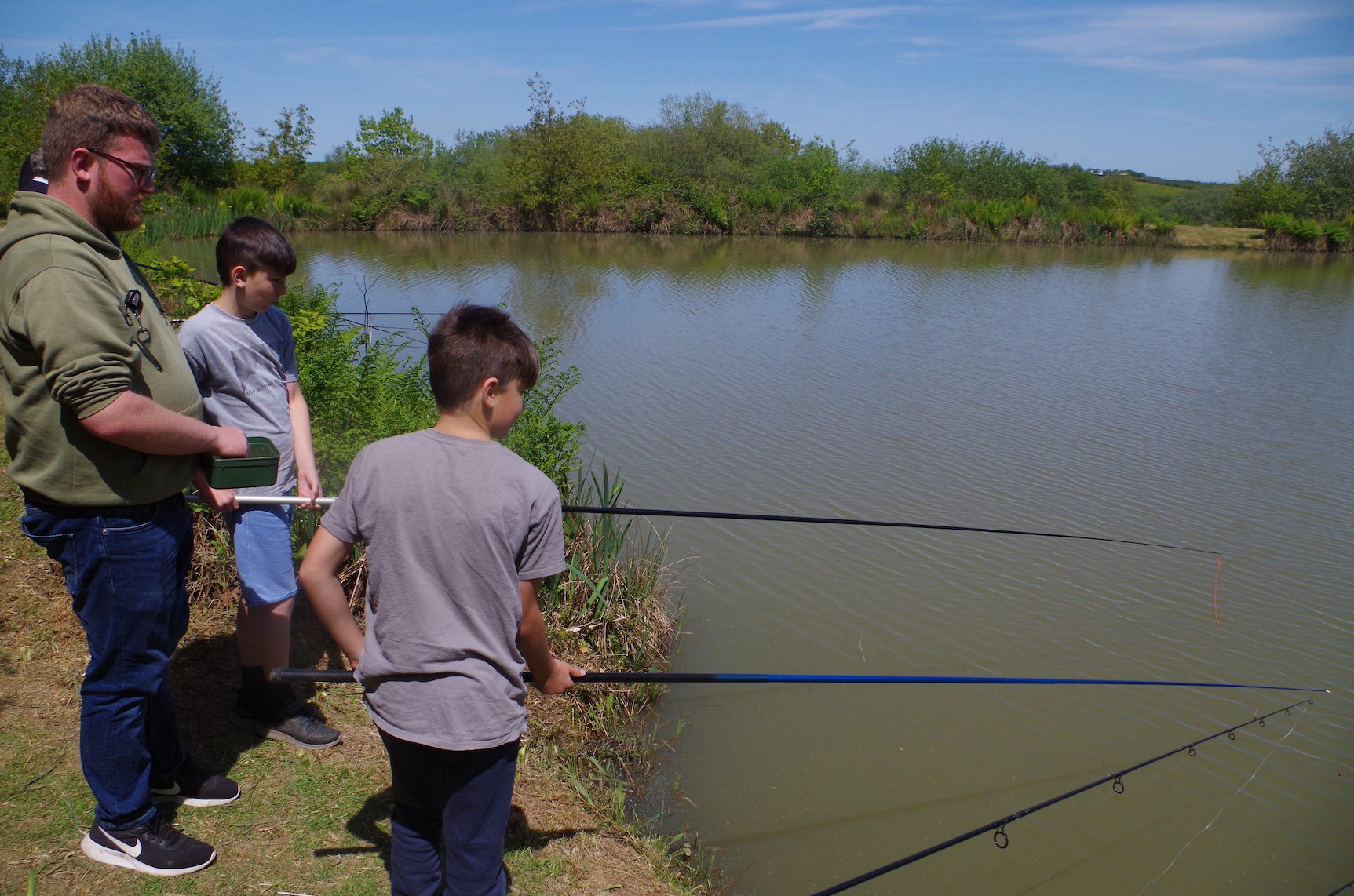
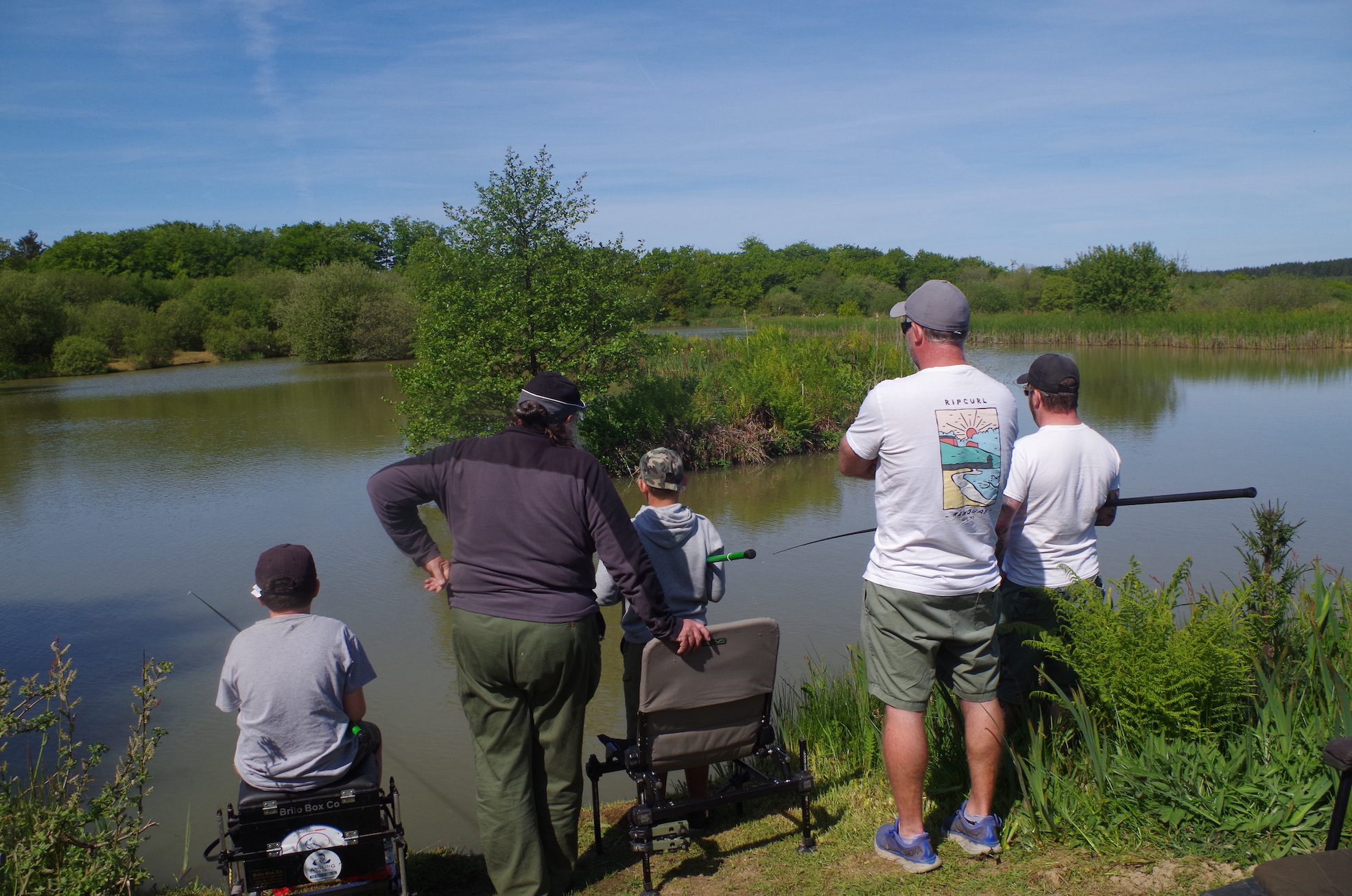
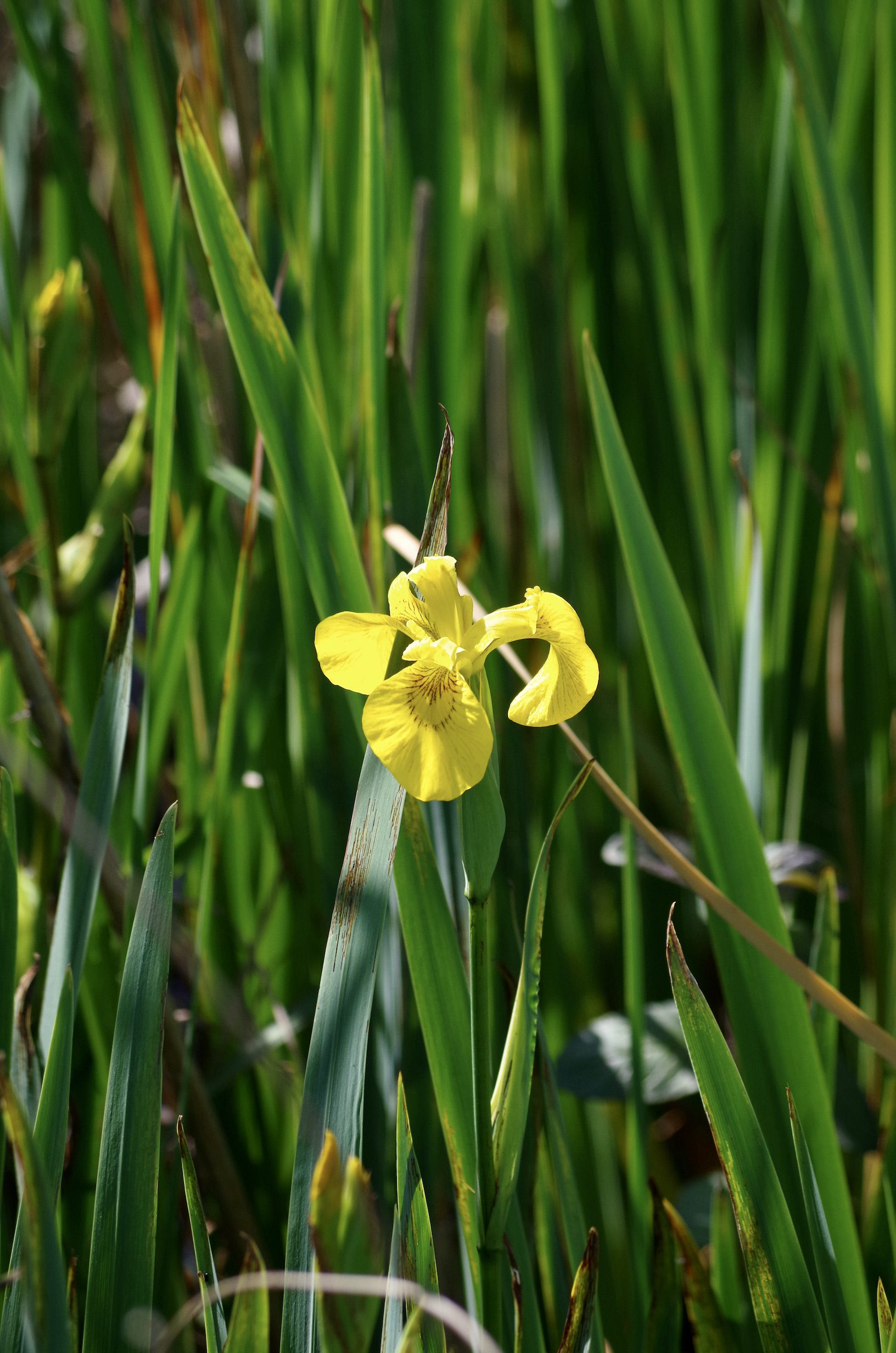


I first visited Anglers Paradise over thirty years ago and at the time it was all very new and I wasn’t too impressed with the rather stark collection of large ponds and lakes. At the time I frowned upon the extensive commercialism that was creeping into angling.
Today when I visit Anglers Paradise I rejoice in the amazing transformation of the complex nestled deep within the heart of Devon the thirty plus lakes have matured along with the extensive woodland and wetlands that now provides a diverse habitat abounding with wildlife and fauna.
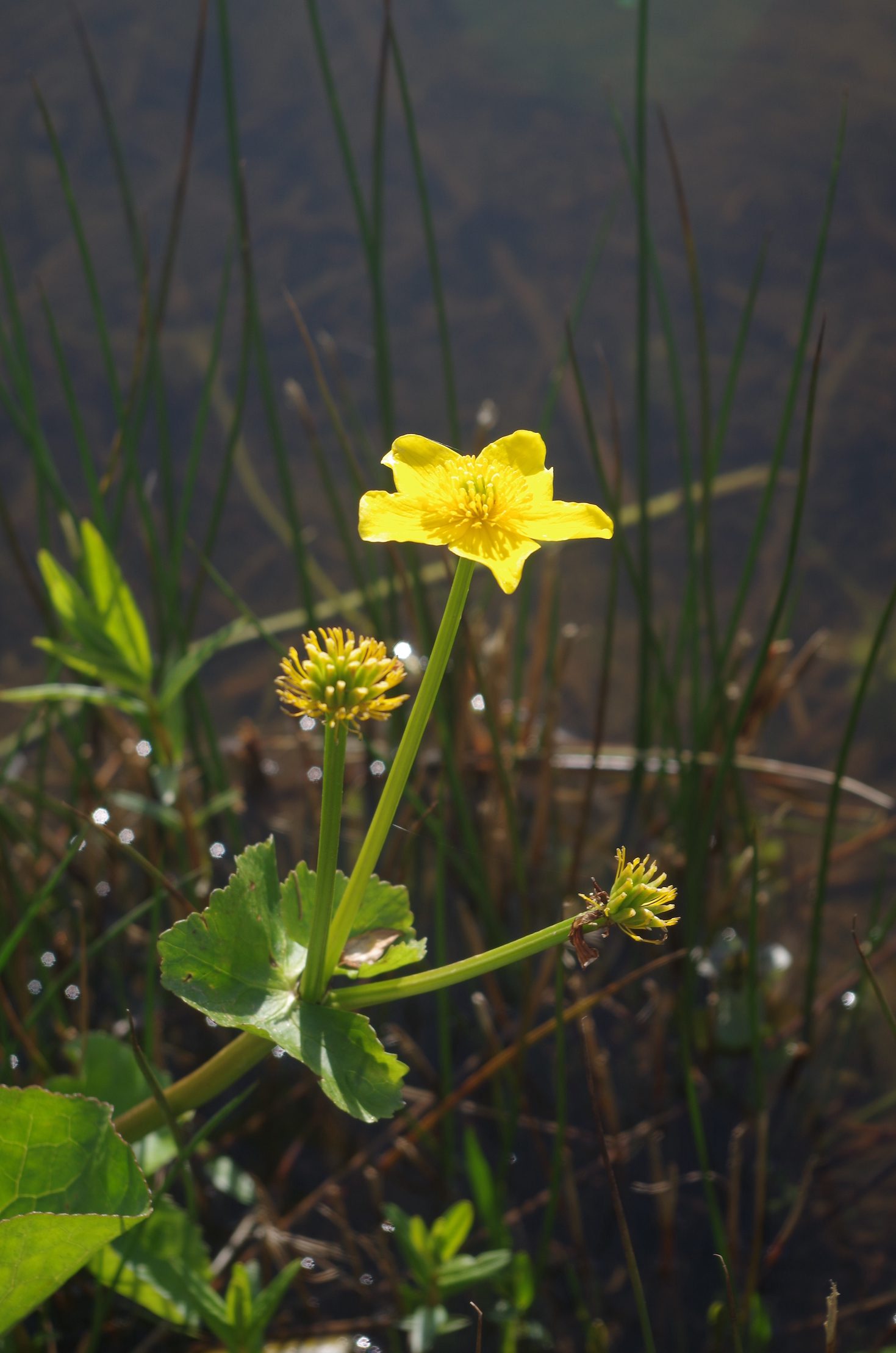
At the heart of the complex is of course Anglers Paradise the vision of the colourful character Zyg Gregorek. The luxury holiday destination for thousands of happy families over recent decades and famous for its wealth of fishing opportunities.
On this occasion I was visiting the Nirvana Trout lake with Snowbee Ambassador Jeff Pierce. Recent reports had hinted at some rather special trout residing in this 2-acre lake including specimen tiger, rainbow, blue, brown, golden trout and artic char. The lake is strictly catch and release with unhooking matts and rubber nets mandatory along with barbless hooks, single fly and minimum line of 10lb b.s.
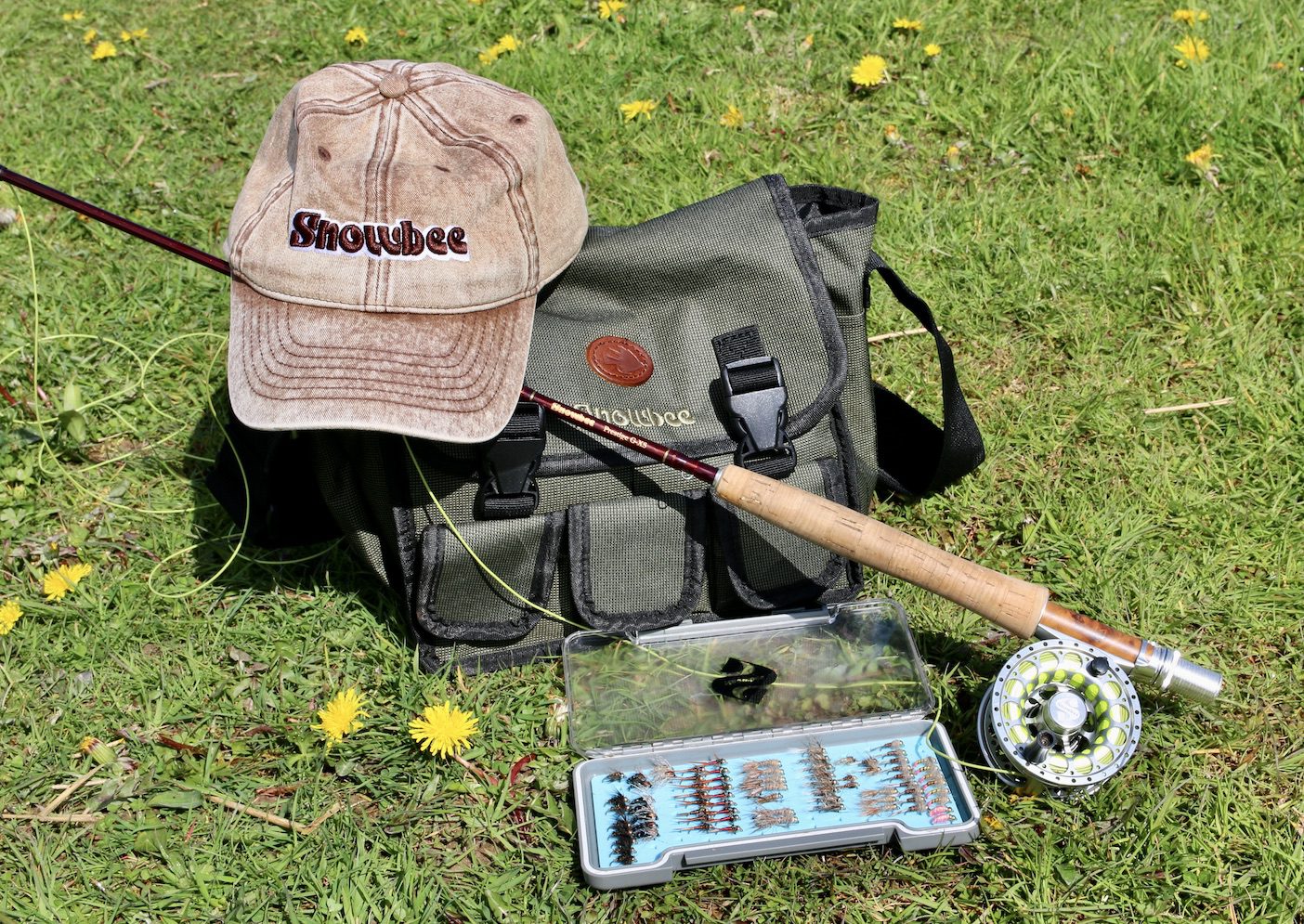
We met up in the lakes car park at 9:30am and looked out to the lake across the grass meadow that was punctuated with hundreds of pale pink cuckoo flowers commonly known as lady’s smock. Wispy white clouds drifted high in the bright blue sky and bird song resonated all around. I passed Jeff a fresh jam doughnut and poured a coffee. A days fishing ahead life doesn’t get much better than this!
We both set up with light 6 -wt rods with floating lines and walked confidently to the lake. The water was crystal clear with tadpoles swimming in abundance along the margins.
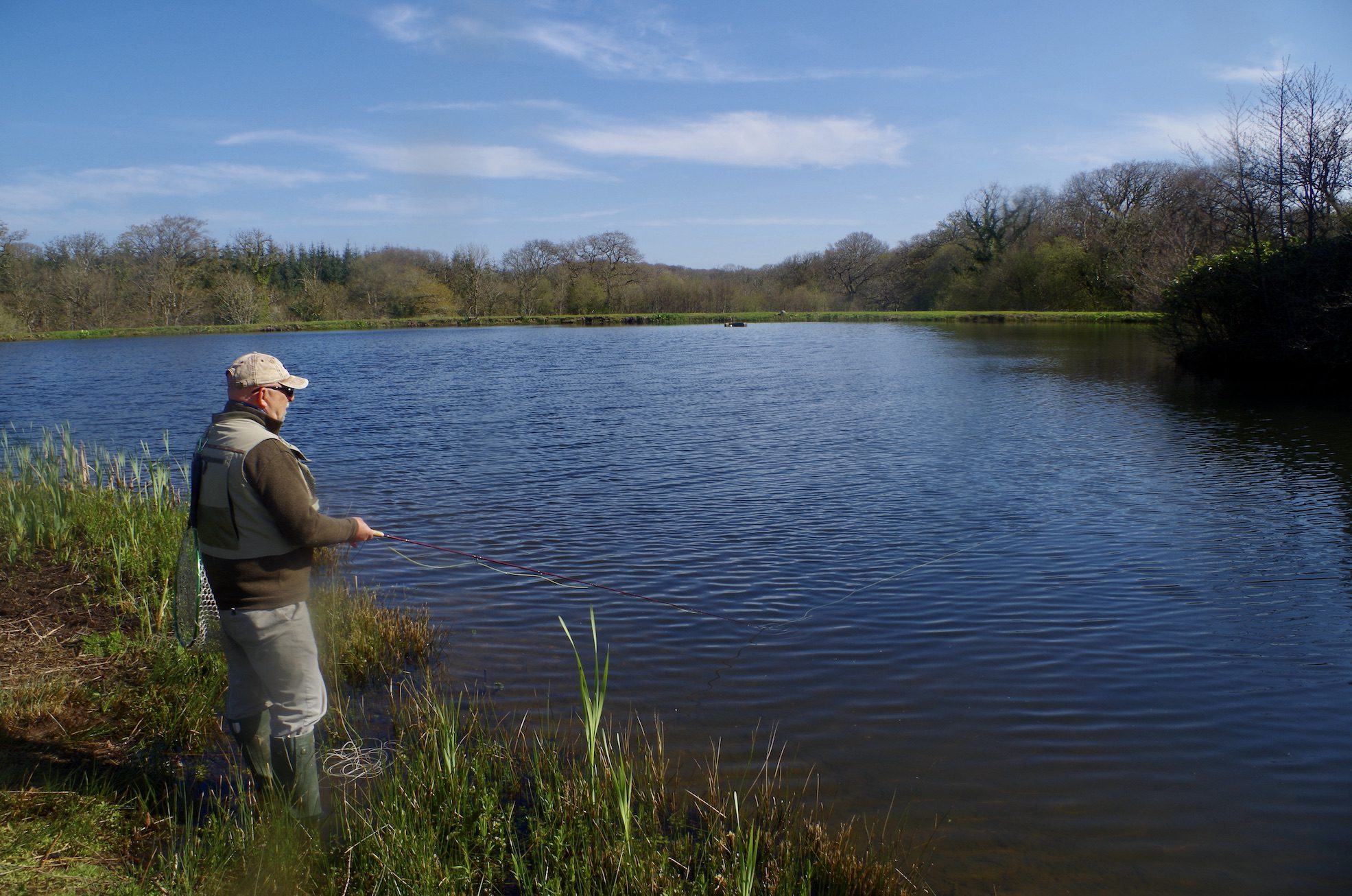
We started fishing on the near bank both of us opting for damsel nymphs. After just a few minutes Jeff called out with his rod well bent and a good trout darting to and fro in the middle of the lake. I rushed over and did the honours with the net, thrilled to share in the moment. A fine tiger trout of close to 3lb was a great start to the day.
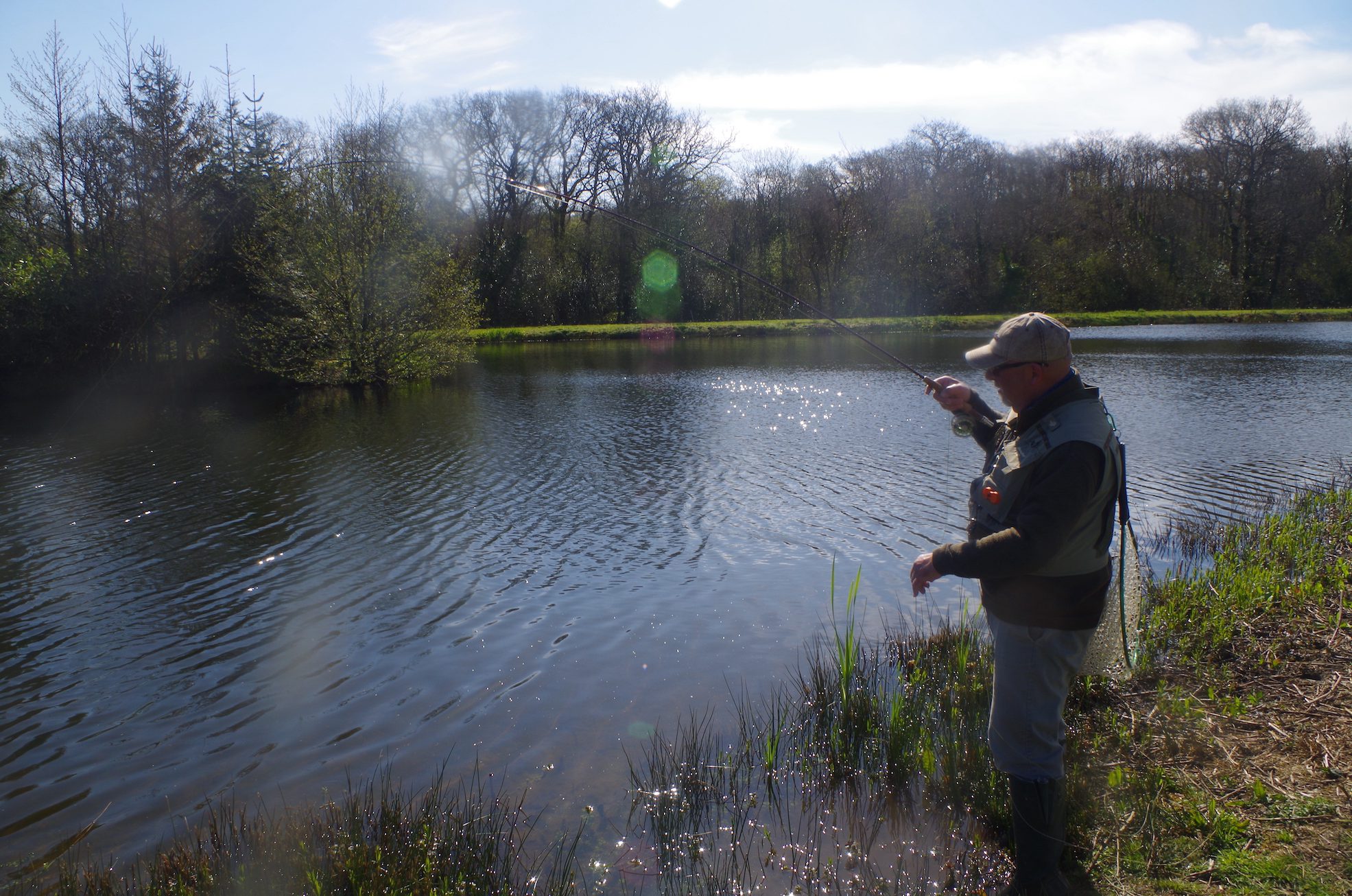
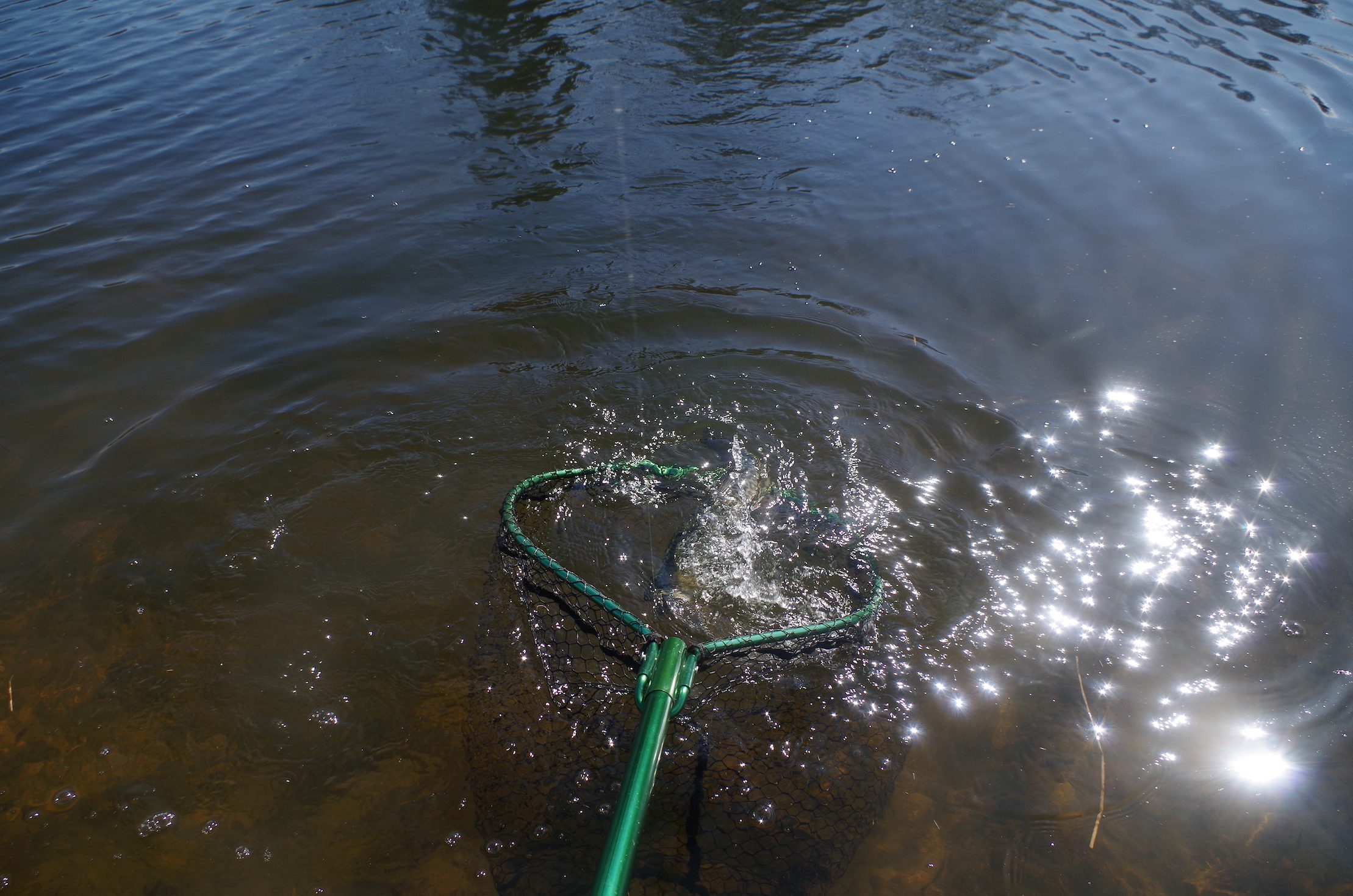
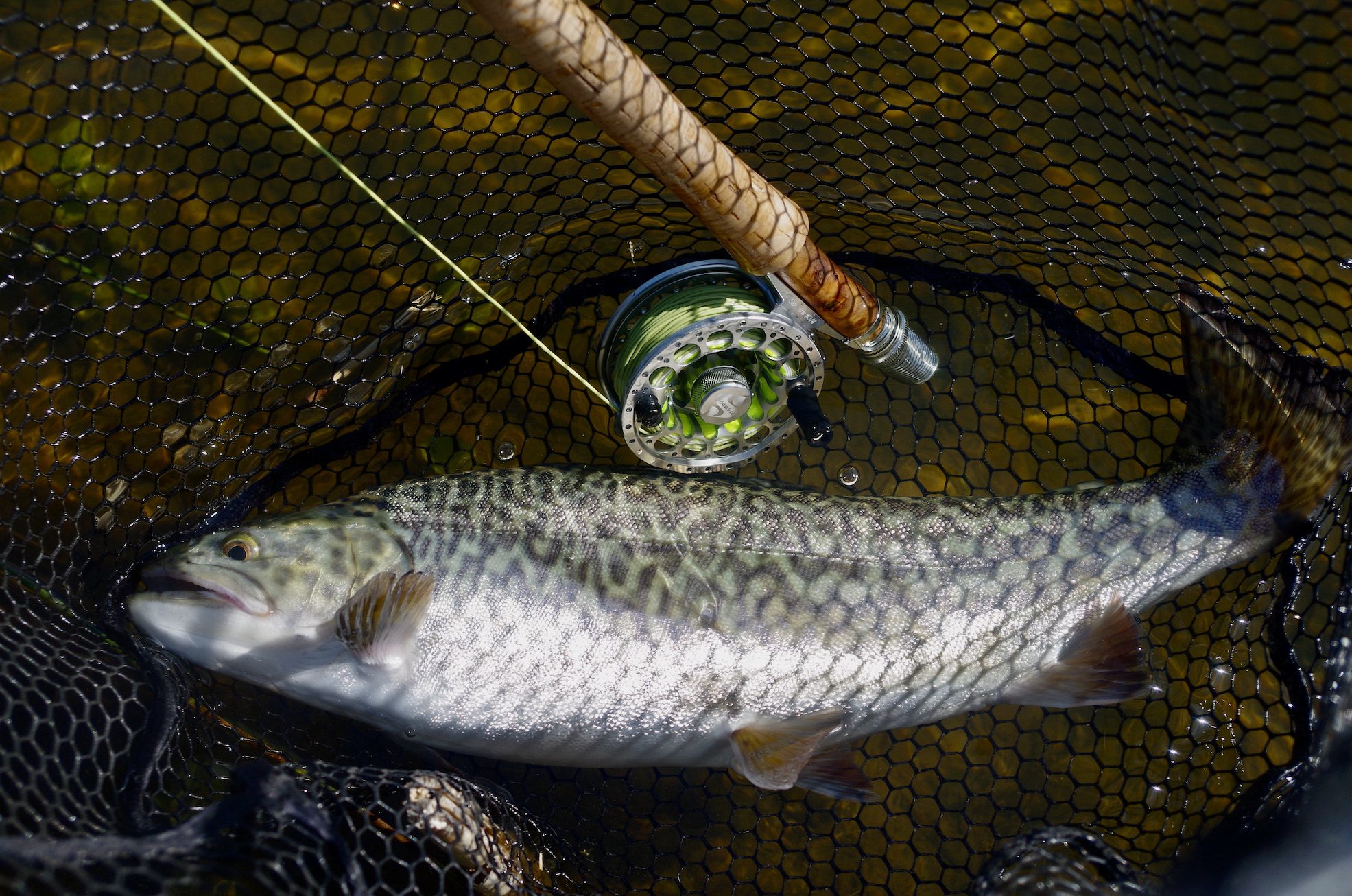
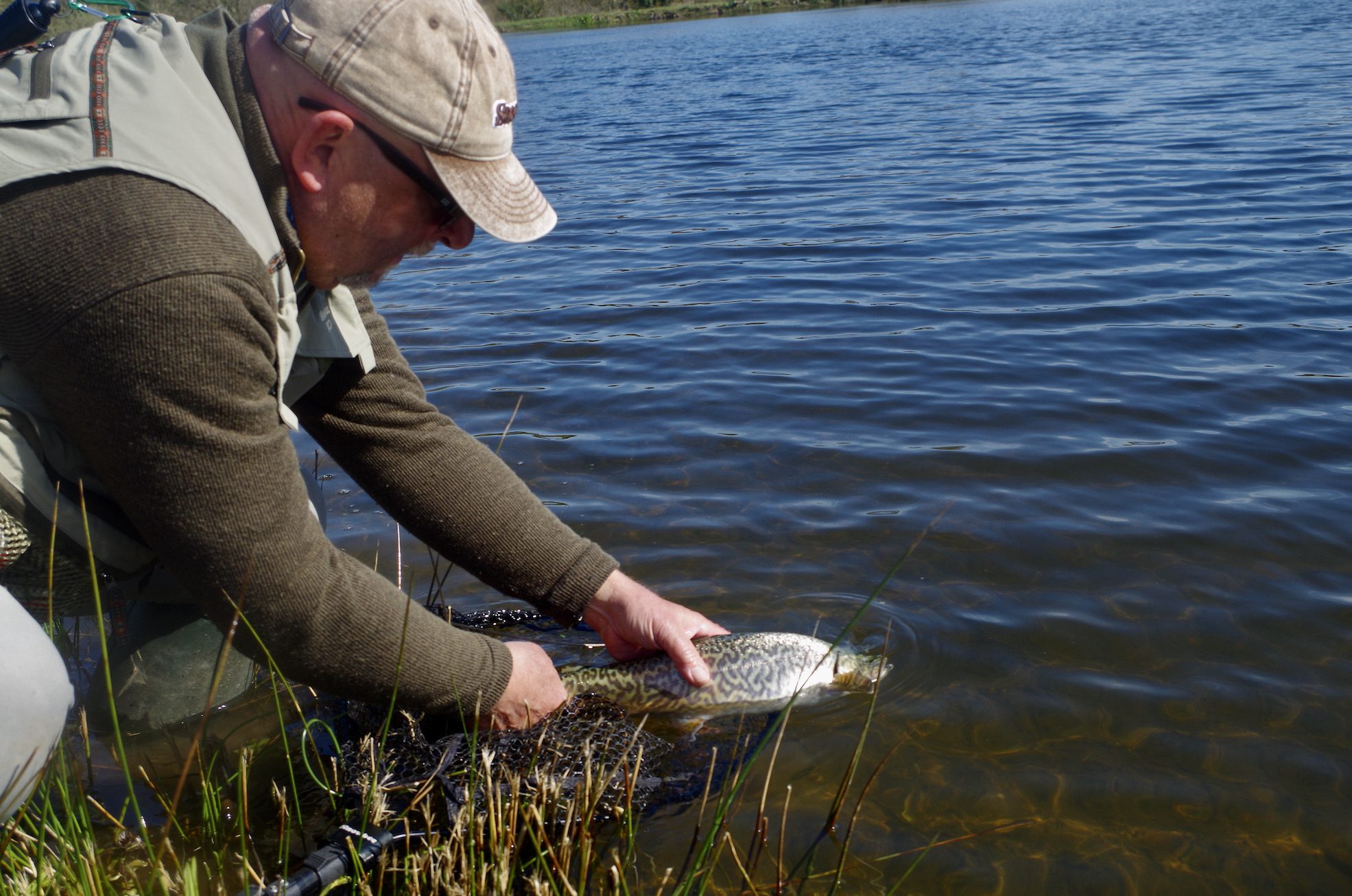
We fished on for half an hour but Jeff and I both eyed up the far bank where several fish broke the surface on a regular basis. The water was deeper on this bank. On just the second cast Jeff was again in action his rod hooped over and his reel singing as line was ripped from the spool at an alarming rate. Several anxious moments followed as the fish headed for the concrete overspill monk. Pressure from the rod soon told and a fine rainbow that must have been close to 6lb graced the net.
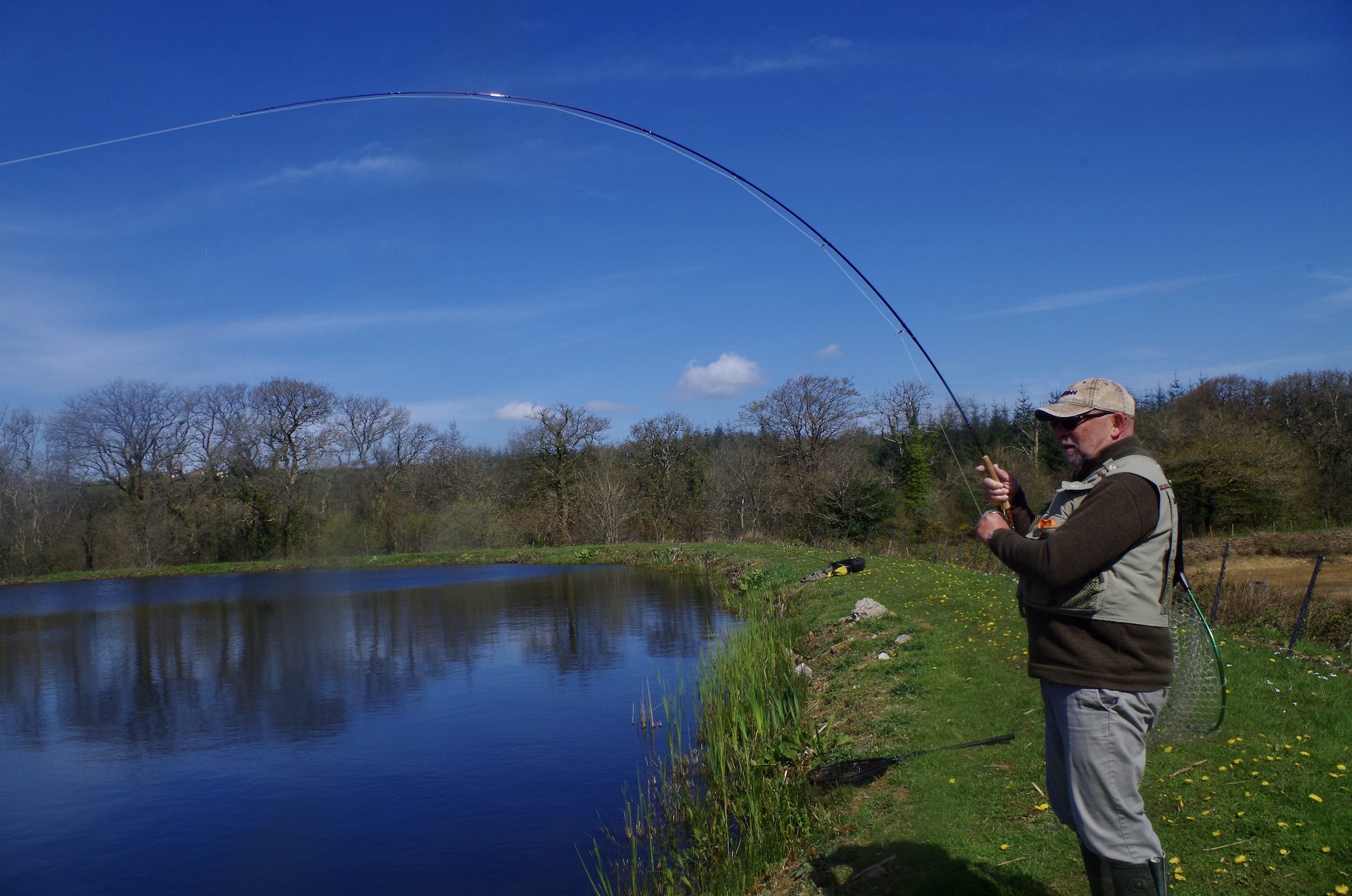
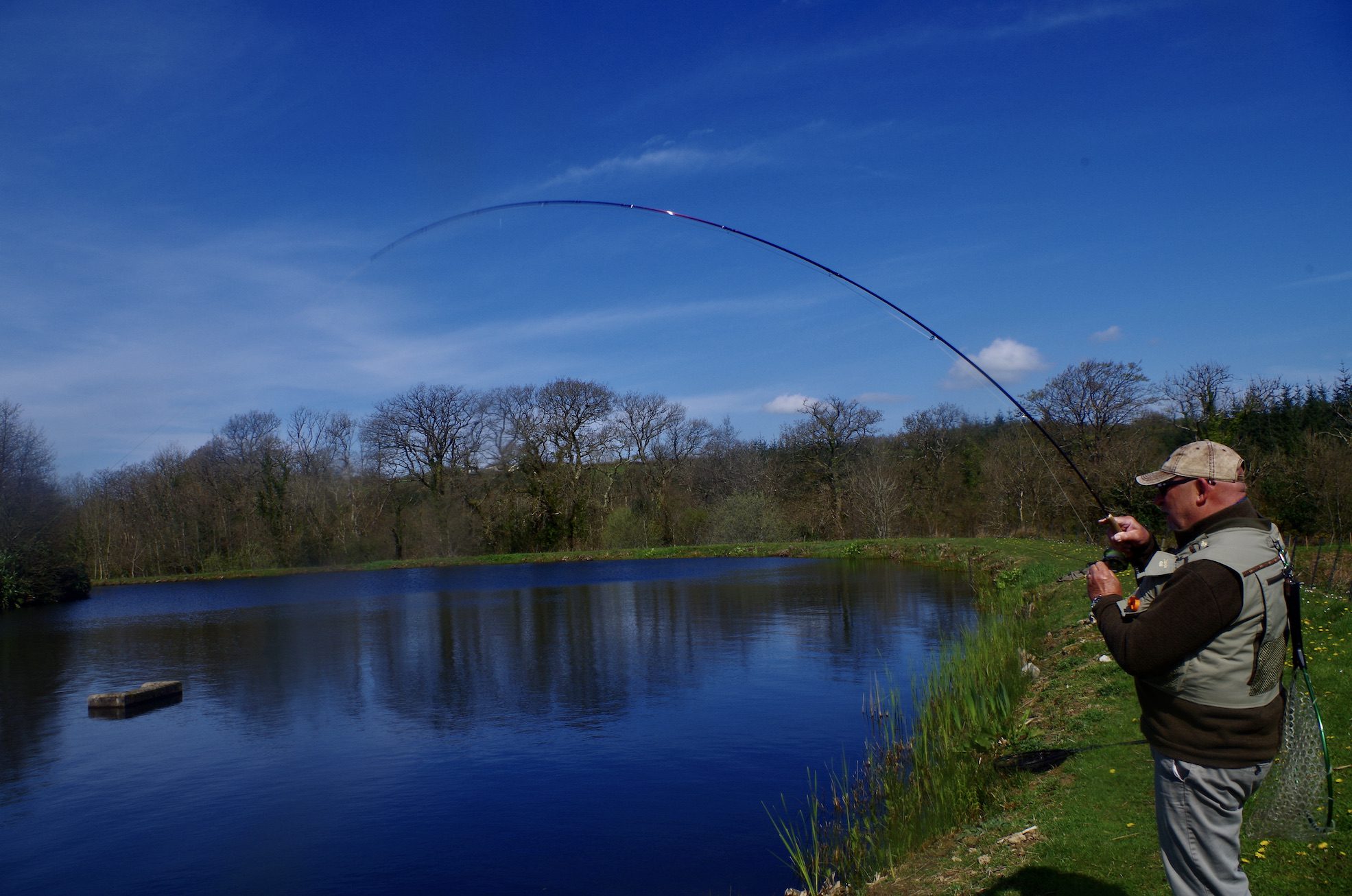
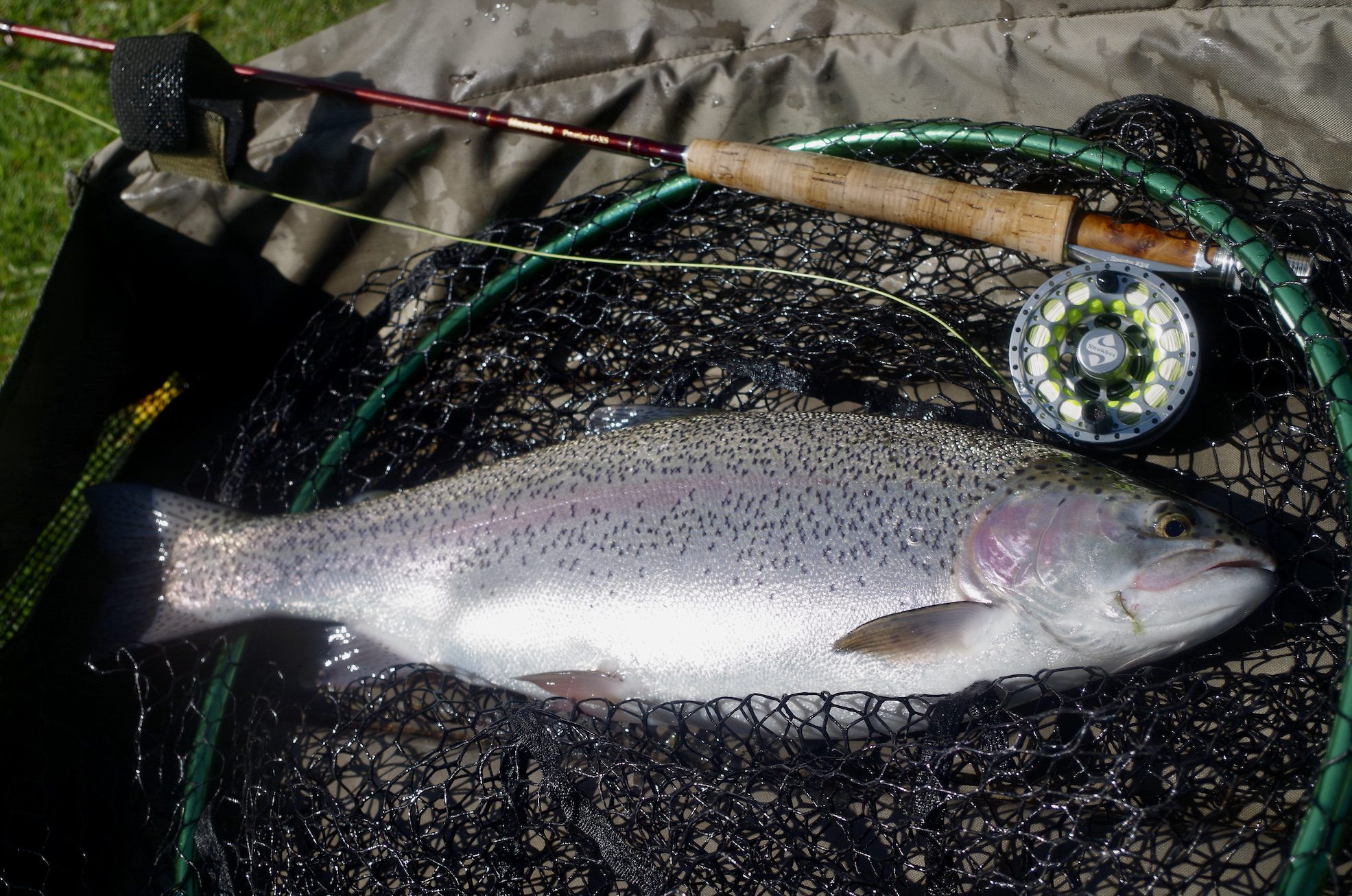
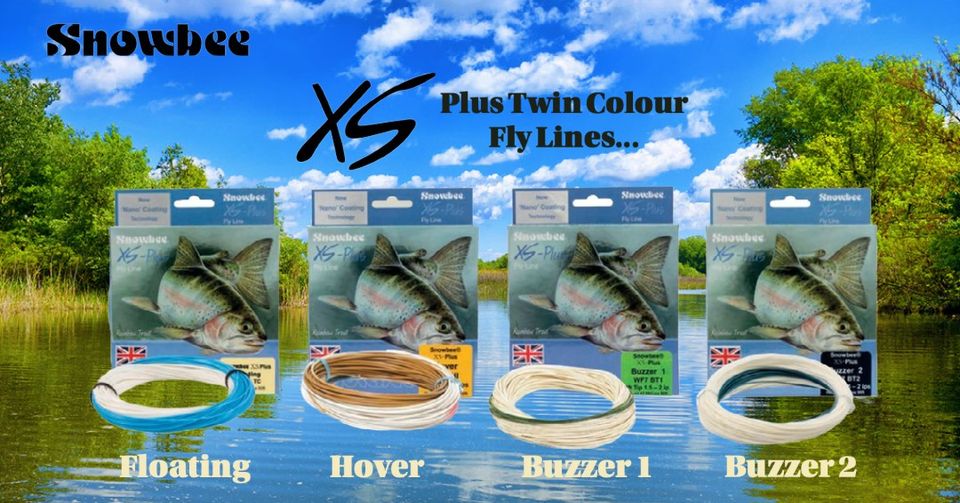
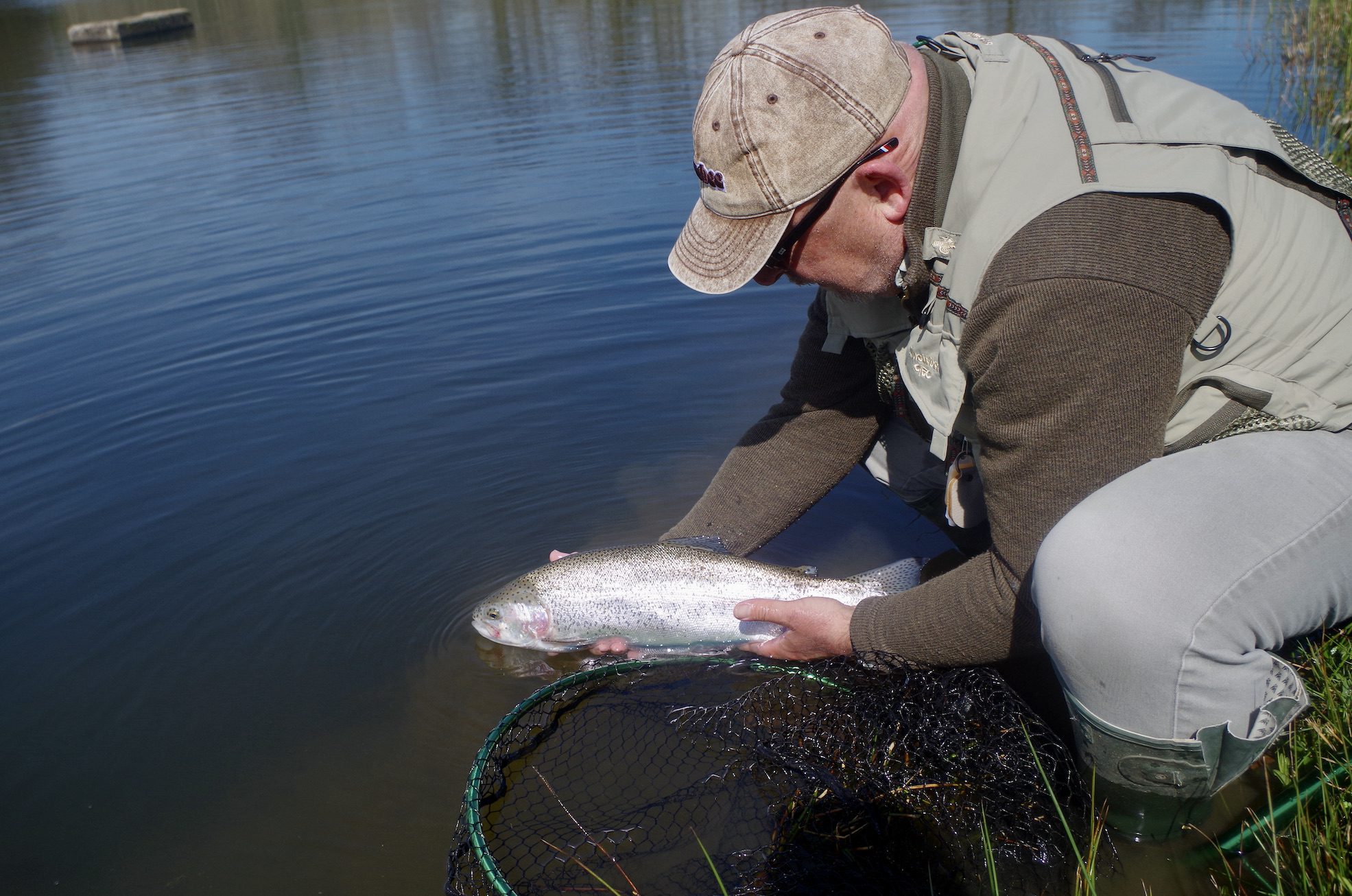
Being catch and release we had both elected to leave the scales at home and not give the fish a number. A quick release of the trout with an absolute minimum time out of the water is essential to maintain these valuable pristine stock fish.
The day progressed beneath the bright blue spring sky. Swallows swooped over the water and an early brood of mallards navigated the lake. The harsh strum of a woodpecker came from the nearby wood. We both fished hard and I glimpsed a couple of fish close to my flies but nothing actually connected.
The bright sunshine and light easterly breeze gave us an excuse for a slow day. Large numbers of hawthorn flies were blown onto the water and we assumed it was these that the fish were occasionally slurping down from the surface.
The morning drifted past all too soon and I suggested we head back to the cars where I fried up some sausages that were devoured with fresh rolls and ketchup. This wasn’t a healthy eating day!
With the fishing proving hard we discussed tactics and I elected to set up a second rod with a sinking line. I tied on one of Jeffs bead headed damsels and returned to the deeper side of the lake. We both searched the water and I eventually made brief contact with a powerful fish that threw the hook. After six hours without a touch my confidence was given a boost. Jeff had a good take from a fish that he glimpsed in the clear water before it too threw the hook.
It was now late afternoon and the prospect of a blank was starting to loom. I hooked another trout that again came off after a few seconds. Surely persistence would pay off? With very few fish now rising I was convinced that my best chance was to persist with the tactics of a deep damsel.
Suddenly a savage pull came through the line and I lifted the rod to feel a heavy fish pulsing deep down in the clear water. The loose line was quickly stripped through the rod rings and I let the fish run as I carefully applied pressure. After several tense minutes the fish was holding deep beneath the rod tip. I put the rod into a deep curve and we both peered into the dark water for that first glimpse. Jeff exclaimed “wow what a fish !” as the flanks of a large tiger trout appeared. I patiently applied pressure guiding the magnificent fish over the nets rim.
The barbless hook fell easily from its jaws and we admired the fish in the net before lifting it from the water for a quick grip and grin before slipping it carefully back and watching it swim away strongly with a flick of its broad tail.
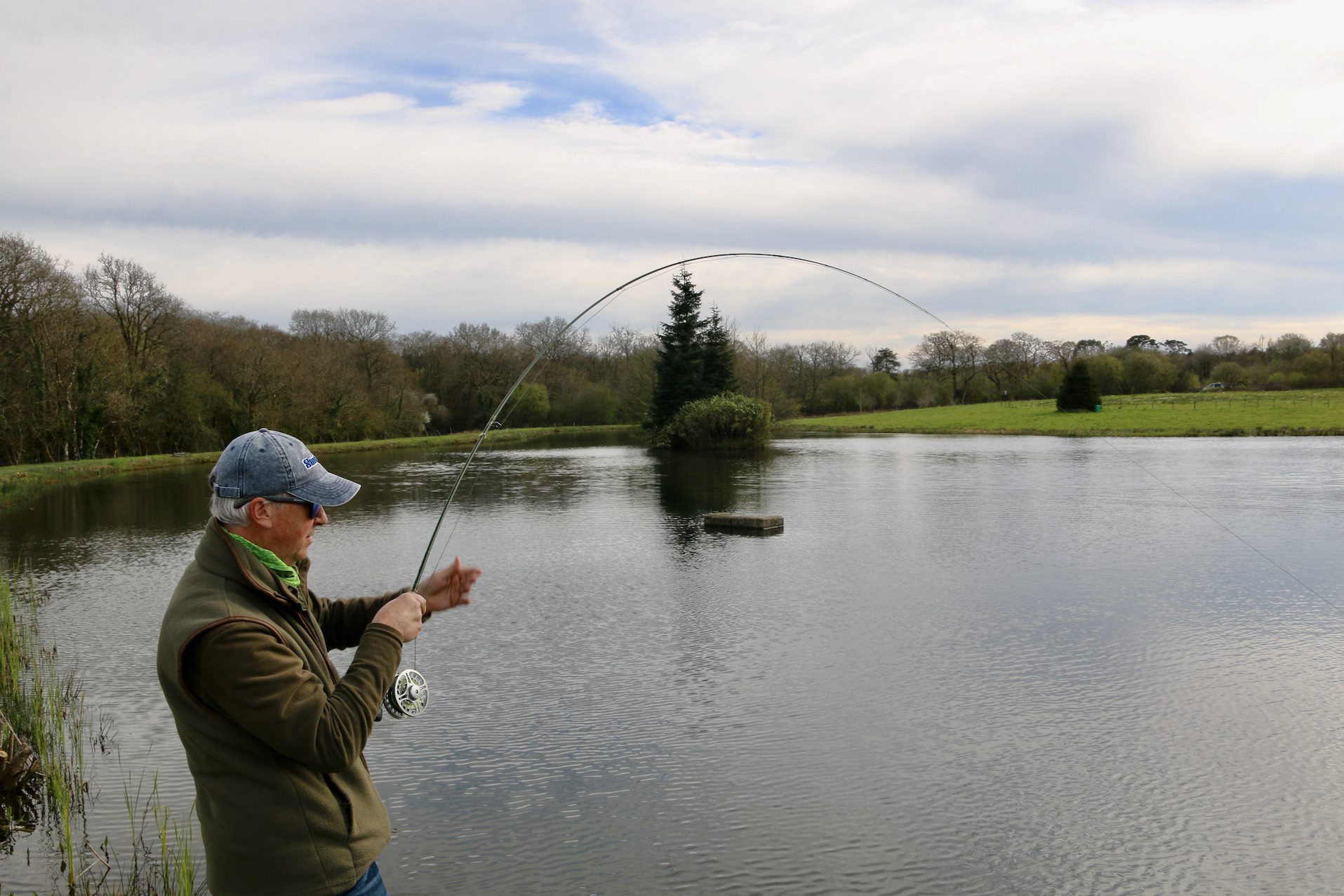
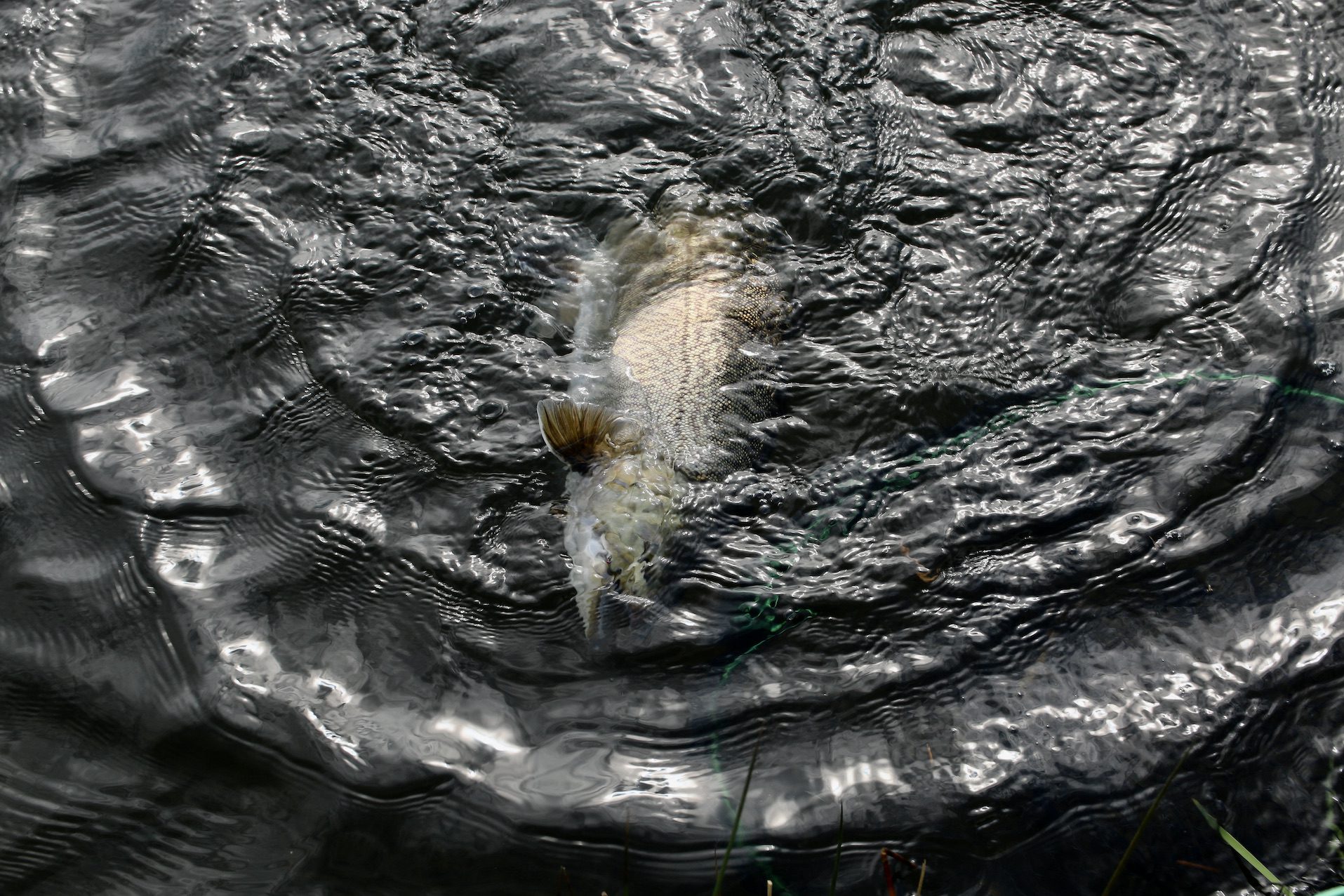
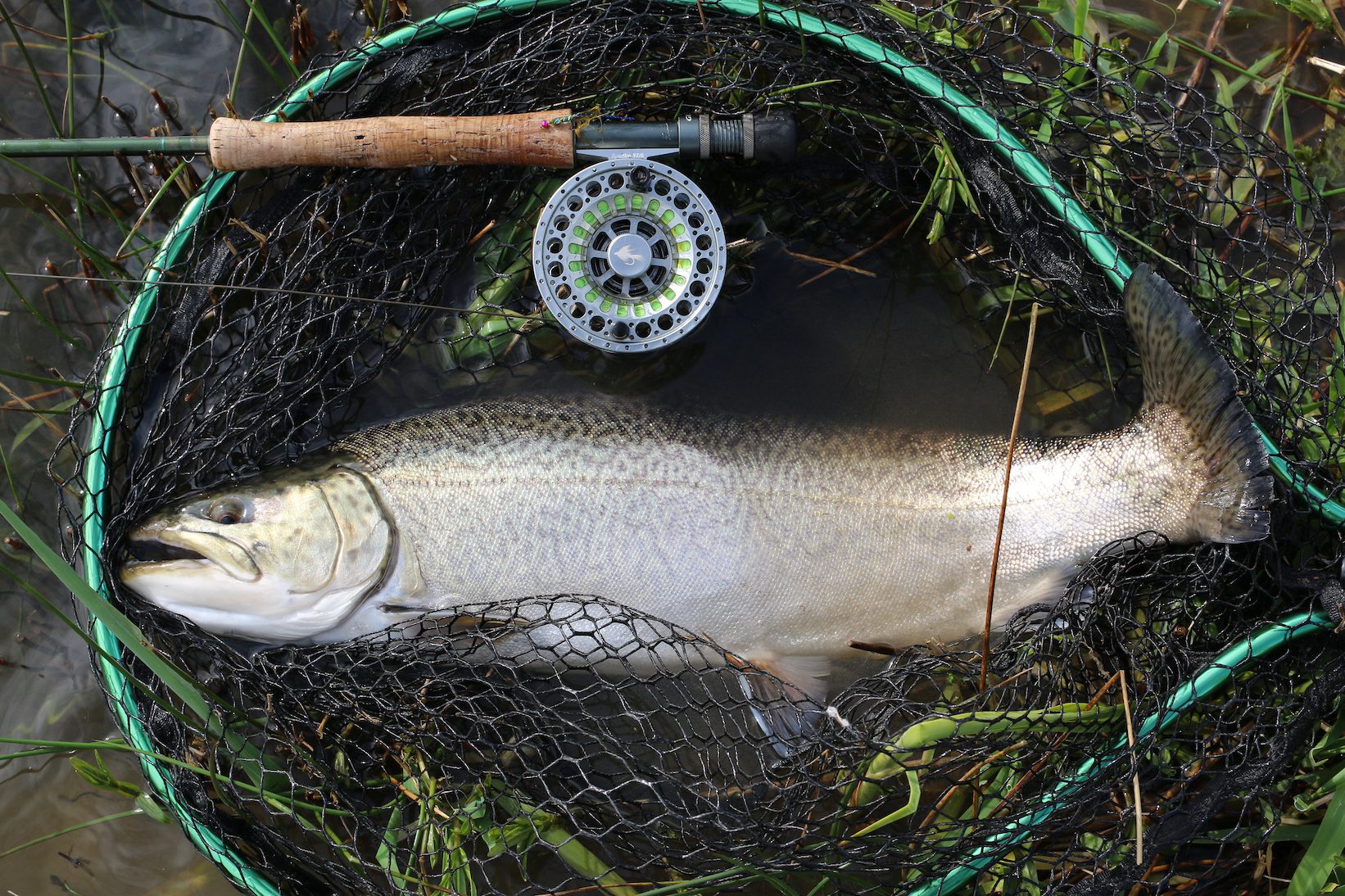
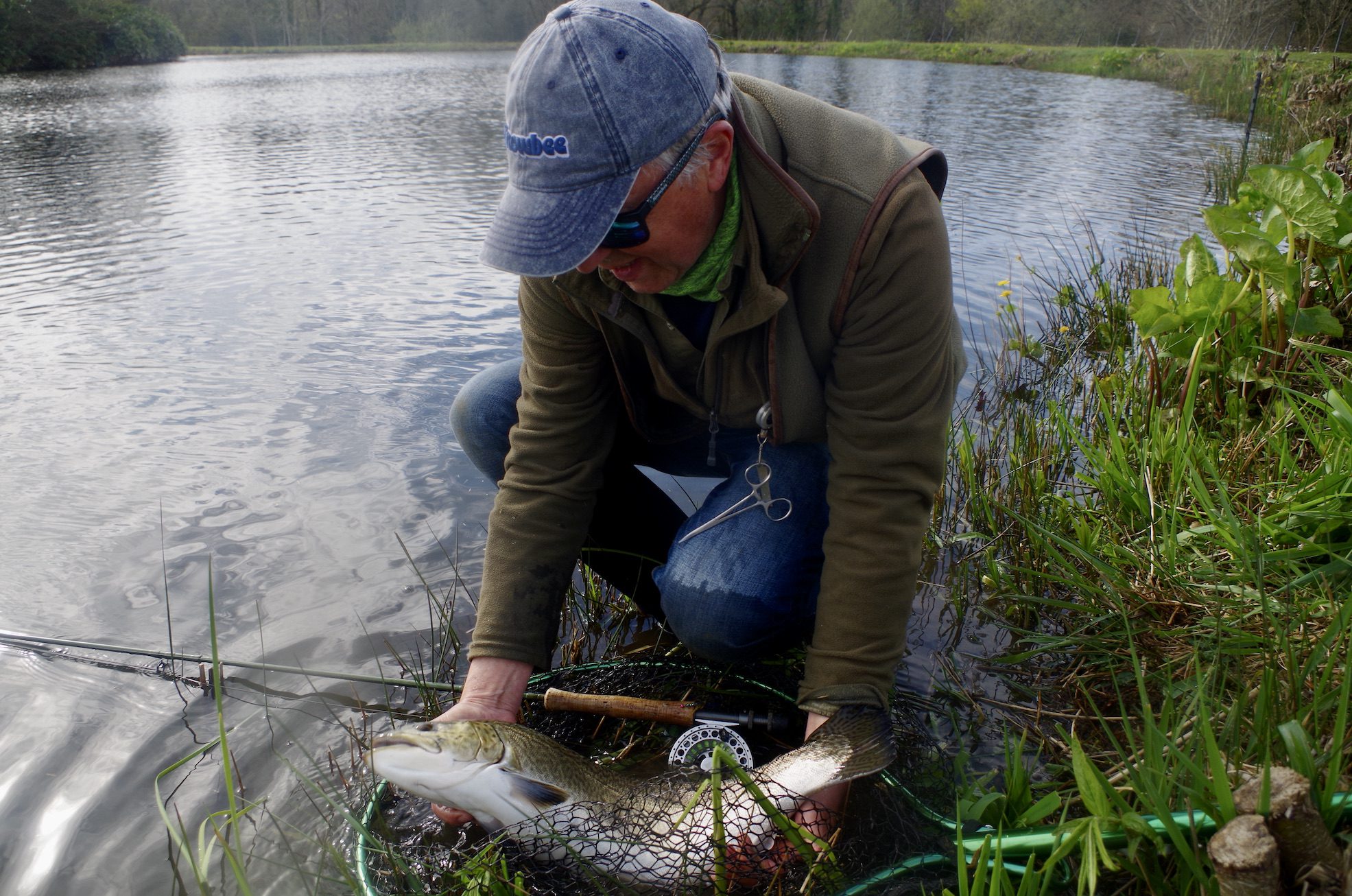
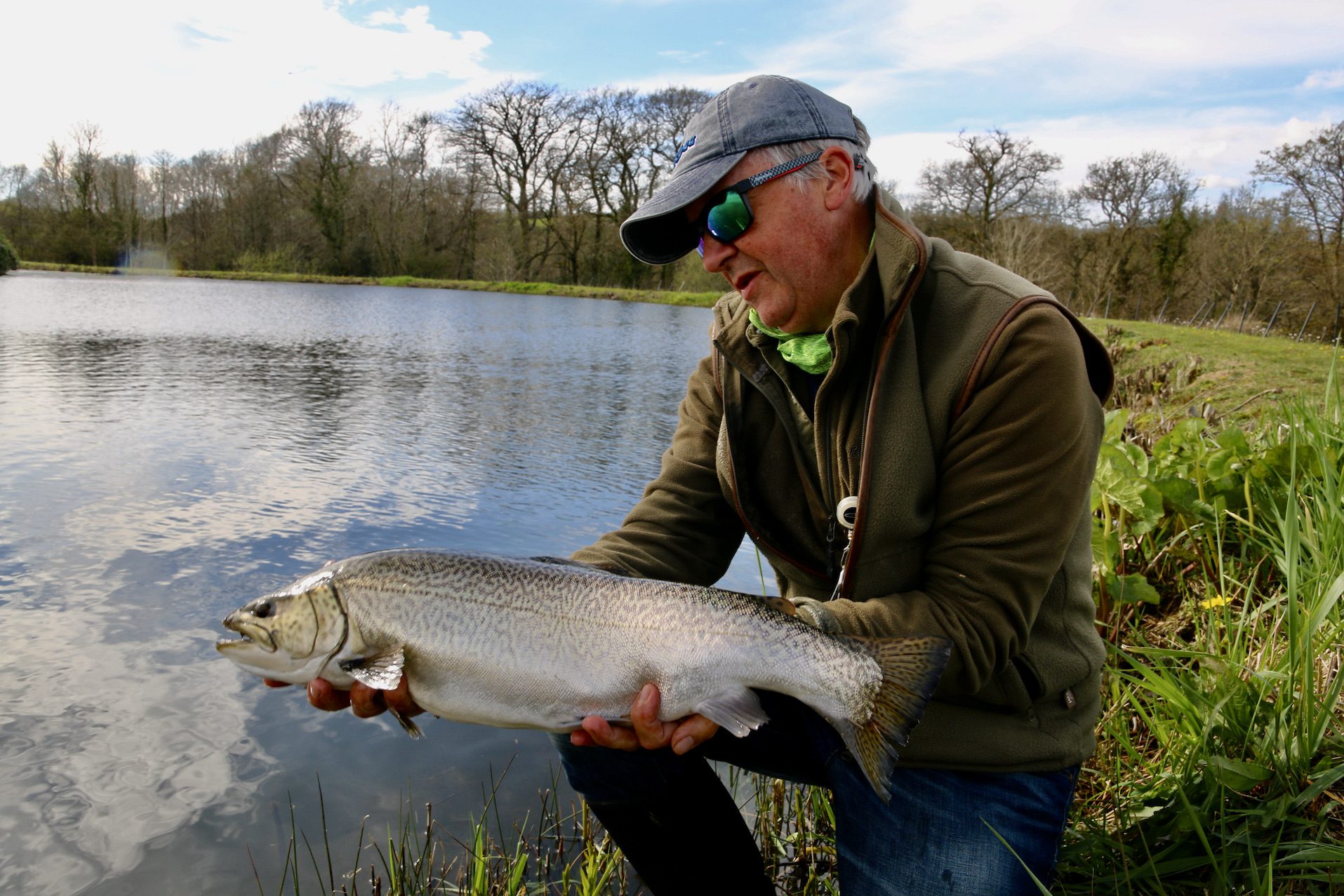
I could have packed up then but I wanted to savour the moment and after all perhaps the fish had just come on the feed? Five minutes later my line once again zipped tight and another hard fighting tiger was secured and briefly admired.
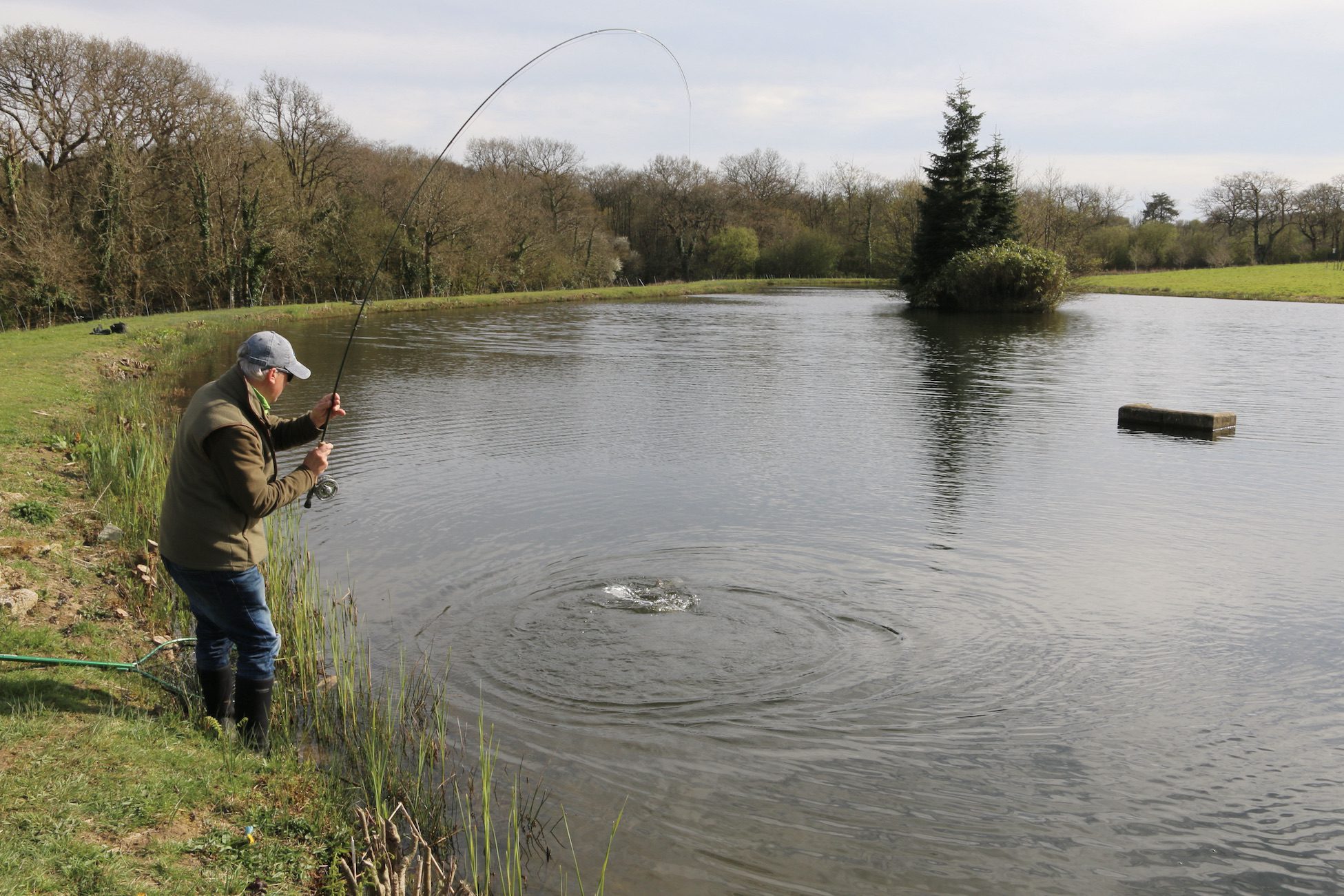
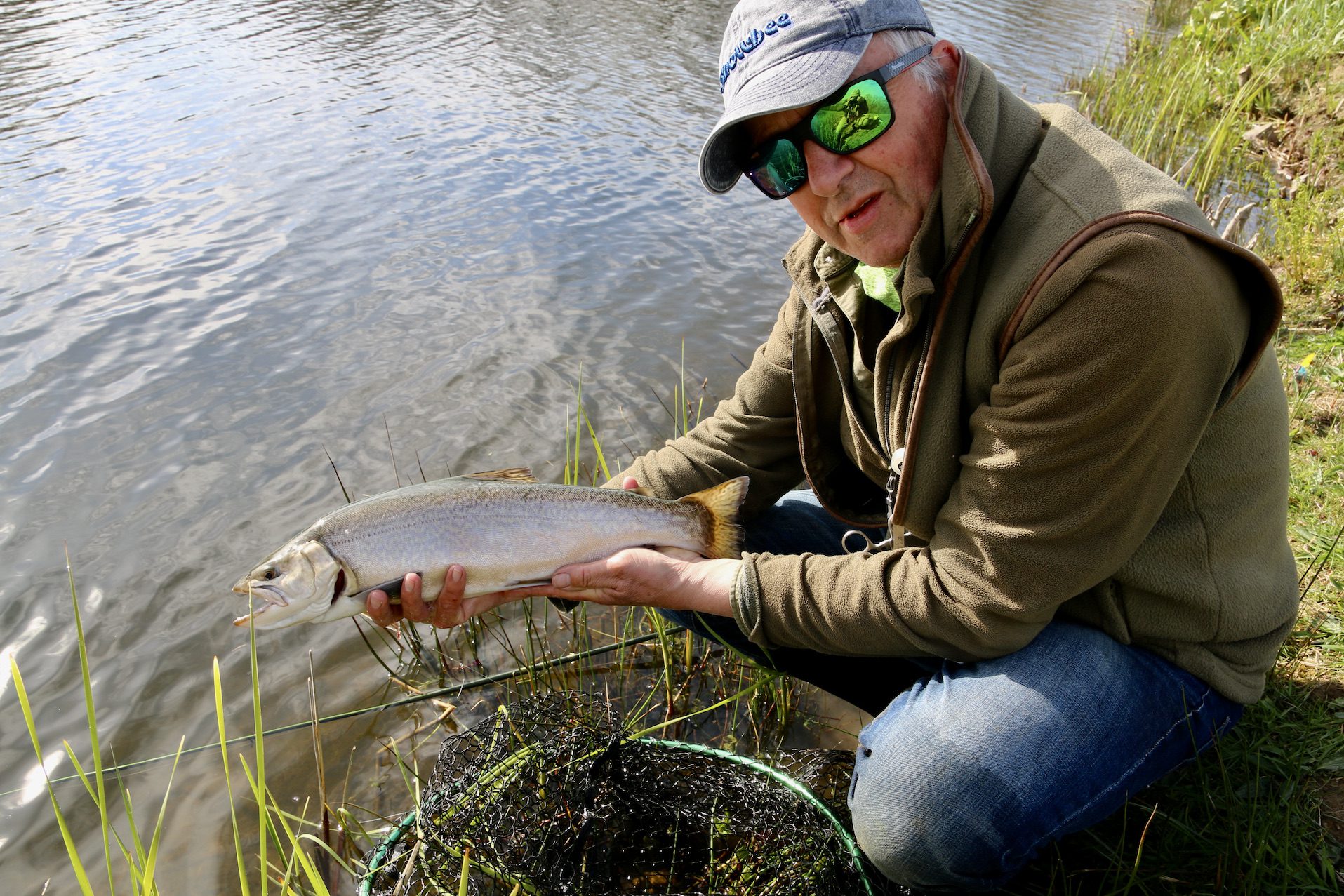
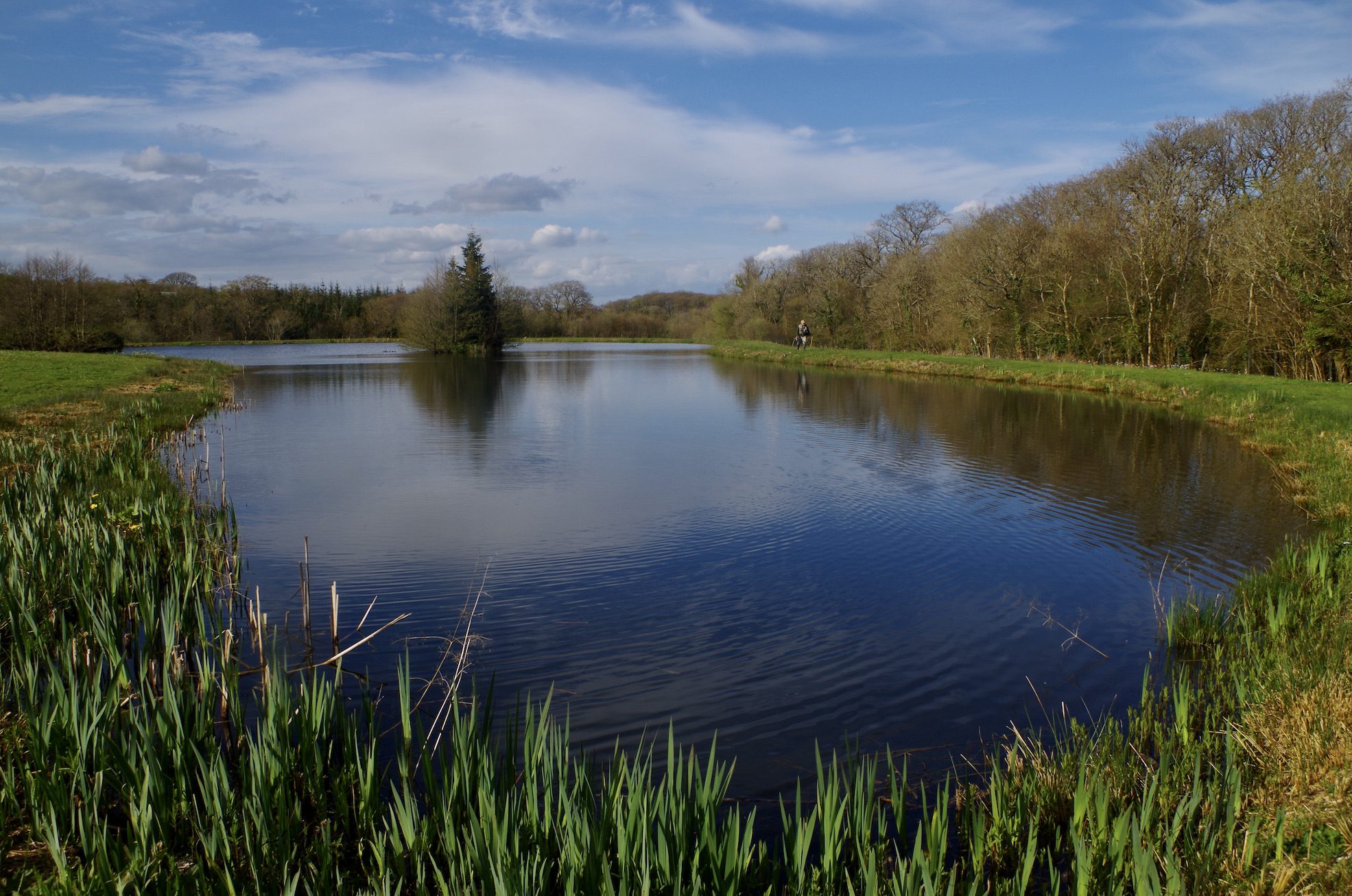
At two all it seemed a good time to pack away for the day. Memories made and plans made for a return visit to Paradise next spring.
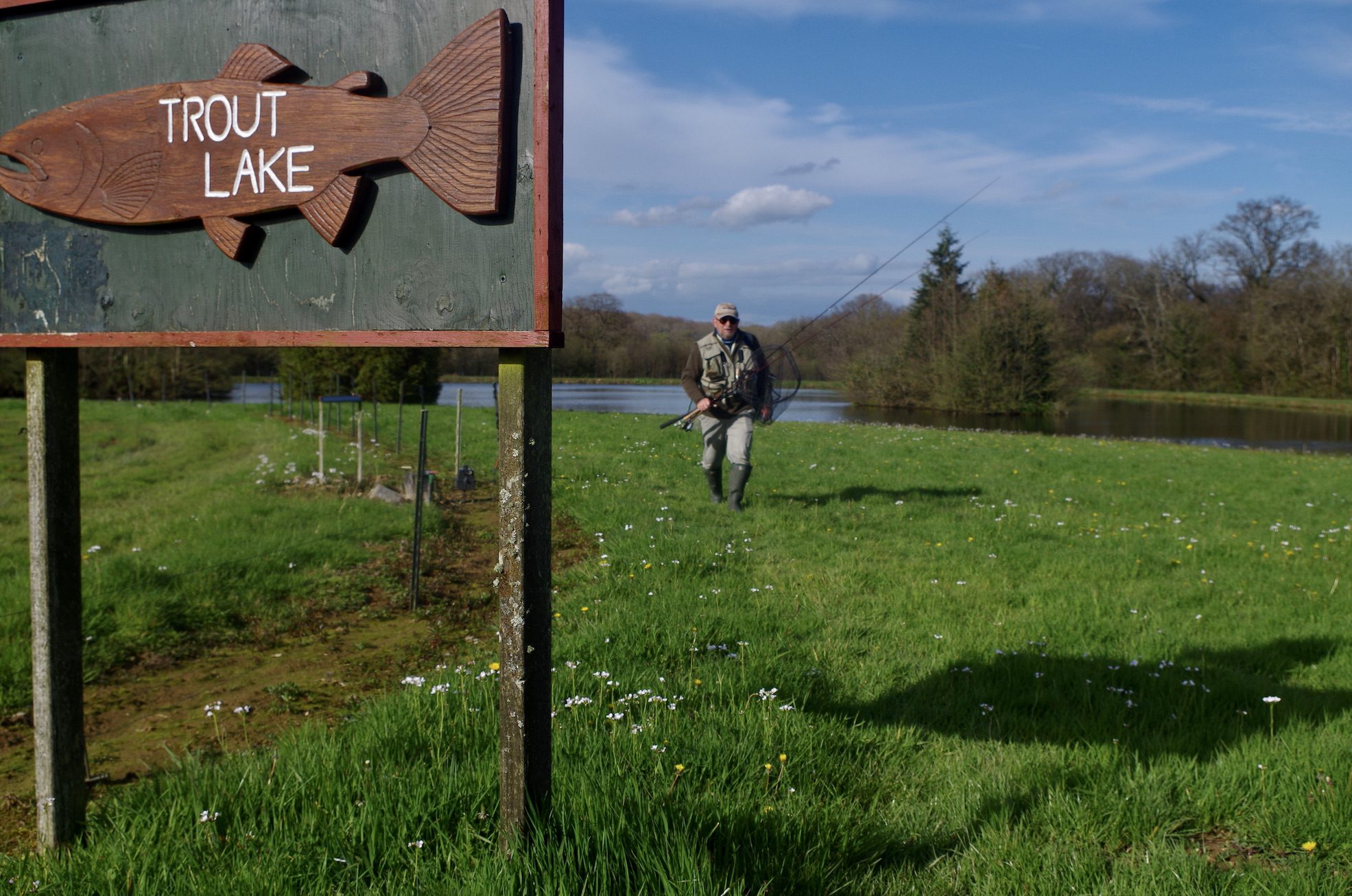
Prior to that I have a trip in search of the catfish of Eldorado during the summer.

March 2023
The new season is now firmly underway at the South West Lakes trout fisheries, with the rainbow waters opening on 11 March, and brown trout on 15 March. Where available, boats are now on the water, and should be pre-booked (online or via the telephone). Generally the weather for the opening weeks has been challenging to anglers, with strong winds, rain, and cold temperatures, and the fish mainly feeding in the deeper waters, although fish have been looking up to feed at a few of the waters.
Fishing:
Kennick – Rods averaged 3.7 fish per angler on opening day, with a variety of methods and depths all producing good results. Paul Osborne (from Exeter) caught the best opening day fish – a rainbow of 3lb 8oz, as part of a bag of five fish, while Duncan Kier (from Belstone) caught the best bag – twelve rainbows, using a blob fished from the bank. The week continued well, with the best results coming from using a variety of nymphs (Damsels and Buzzers) and lure patterns (Cats Whiskers, Black and Olive Snakes, Orange Fritz, and Boobies) fished on an intermediate line, with fish well spread out around the lake. Notable bags included ten rainbows to 3lb, caught by Johnny Mac (from Plympton) using a sinking line and stripped snakes, as well as ten rainbows to 3lb, caught by both J.Stainforth (from Brixham) and Mick White (from Bovey Tracey) – the latter caught using a flashy blue damsel on an intermediate line with a slow but constant retrieve. The level at Kennick is now up to 87% and filling.
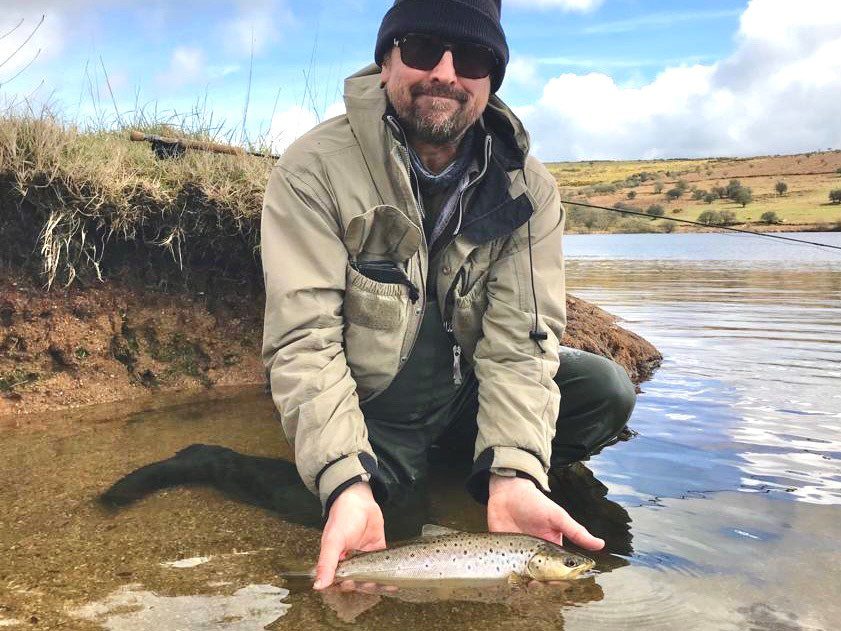
Siblyback – The lake is full now, and opened the season on excellent form, with anglers averaging 5.3 fish per rod on the opening weekend. Tony Chipman (from Truro) caught nine rainbows (including two nice overwintered fish of around 2lb) using a slowly retrieved floating line with a team of buzzers. Generally intermediate or floating lines with a sink tip have been the most productive, with plenty of fish around Crylla and Stocky Bays, as well as the dam area, with a wide selection of nymph and lure patterns all catching fish. John Henderson (from Falmouth) caught the best bag, with eighteen rainbows to 2lb, all caught on a floating line with a sinking leader.
The Snowbee ‘Teams of Four’ bank competition was held on 2 April, with ten teams competing, and anglers averaging 3.05 fish. Roche Angling Club (Tony Chipman, Dave Perks, Pete Williams, and John Hutchings) were the winners, catching 21 fish weighing in at 32lb 7oz. Runners up were Fishiotherapy Time, and Kennick ‘C’ team came third.
Burrator – Levels are now full, with the best fishing to be had at Longstone Bank, Pigs Trough, and The Point. Al Lawson caught the best fish on opening day, catching four rainbows to 2lb from a boat shared with his brother Andy, who caught five rainbows on a floating line and jerky retrieve. Generally, dark lure and nymph patterns fished on floating or intermediate lines with a variety of retrieves has proved to be the most successful tactic. Phil Adlam (from Plymouth) caught the best fish – a rainbow of 2lb11oz, using a sink-tip line and roly-poly retrieve, while Rob Slaney (from Yelverton) caught a bag of thirteen fish (including some browns and a blue), using a Black Damsel.
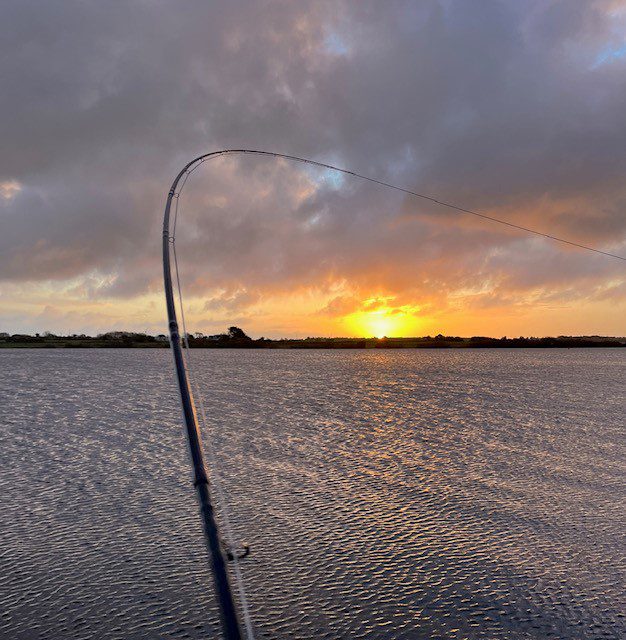
Stithians – The lake is now over 90% full. Opening day fished extremely well with anglers averaging seven fish per rod. Stephen Glanville (from St Agnes) caught the best fish of the day – a 2lb 11oz rainbow, as part of a seven fish bag, while John Henderson (from Falmouth) caught 16 rainbows and a brown, with many fish being taken on a dry Black Gnat (these were hatching on the day). Averages fell to a still respectable 3.64 fish per rod as the month progressed, with fish well spread out around the lake; intermediate and floating lines with a sink tip and various retrieves all caught well, with nymphs, lures and some dries all accounting for fish. Simon Peters (from Cusgarne) caught a bag of 20 fish on a floating line and fast ‘figure-of-eight’ retrieve, and John Henderson caught another bag of ten fish to 2lb 8oz.
Fernworthy – Surprisingly, this high Dartmoor lake (which is usually slow to start), opened the season with some excellent sport in spite of the adverse weather conditions, with anglers averaging eight fish per rod in the opening week. Rodney Wevill fished a Welshman Minnow on a floating line, and with Jack Welshman, the pair enjoyed a superb day’s sport, catching 22 browns, with 17 weighing in at between a pound and 2lb 8oz. With midges on the surface later in the month, anglers using the dry fly (Black Gnat, Black Klinkhammer, and Claret Hopper) were rewarded with some excellent sport, while other fish were taken using Soldier Palmers and black nymphs and tadpoles. Fish were well spread out around the lake, but the south bank, Thornworthy Bay, and area around the old permit hut proved to be particularly productive. Nicholas Freeman (from Andover) caught six browns to 2lb 6oz below the old hut, where fish were eagerly feeding throughout the day.
Roadford – Now at 68% full, and slowly filling, Roadford started the season well, with the dam area and Grinnacombe producing the best sport. Rodney Wevill (from Launceston) caught five browns using a Welshman Minnow and a mini Scruffy Tiger on a floating line. Plenty of fish have been in the shallows, and floating lines with Daddy Longlegs, Humungous, and Blue Zulu patterns have all caught fish, with anglers averaging 2.5 fish per rod.
For anglers’ information, this May and September, carp fishing will be introduced at Roadford Lake as a trial venture. Carp fishing will be limited to 12 swims and fly fishing will not be permitted in this area only. The long term aim is to improve Roadford Lake as a brown trout fishery.

Colliford – This water is still only just over 50% full, and so far has been slow to start, with only a few fish caught.
Wistlandpound – This lake North of Barnstaple offers some superb fishing for wild browns with good numbers of fish in the 8oz to 12oz size range and the occasional fish over 1lb. The rudd that have thrived in the lake can offer fun sport on dry fly tactics and its is likley that the bigger browns feast on these fish. Browns to over 3lb have been caught in recent seasons. Small black lures and tradiional wets flies work well.
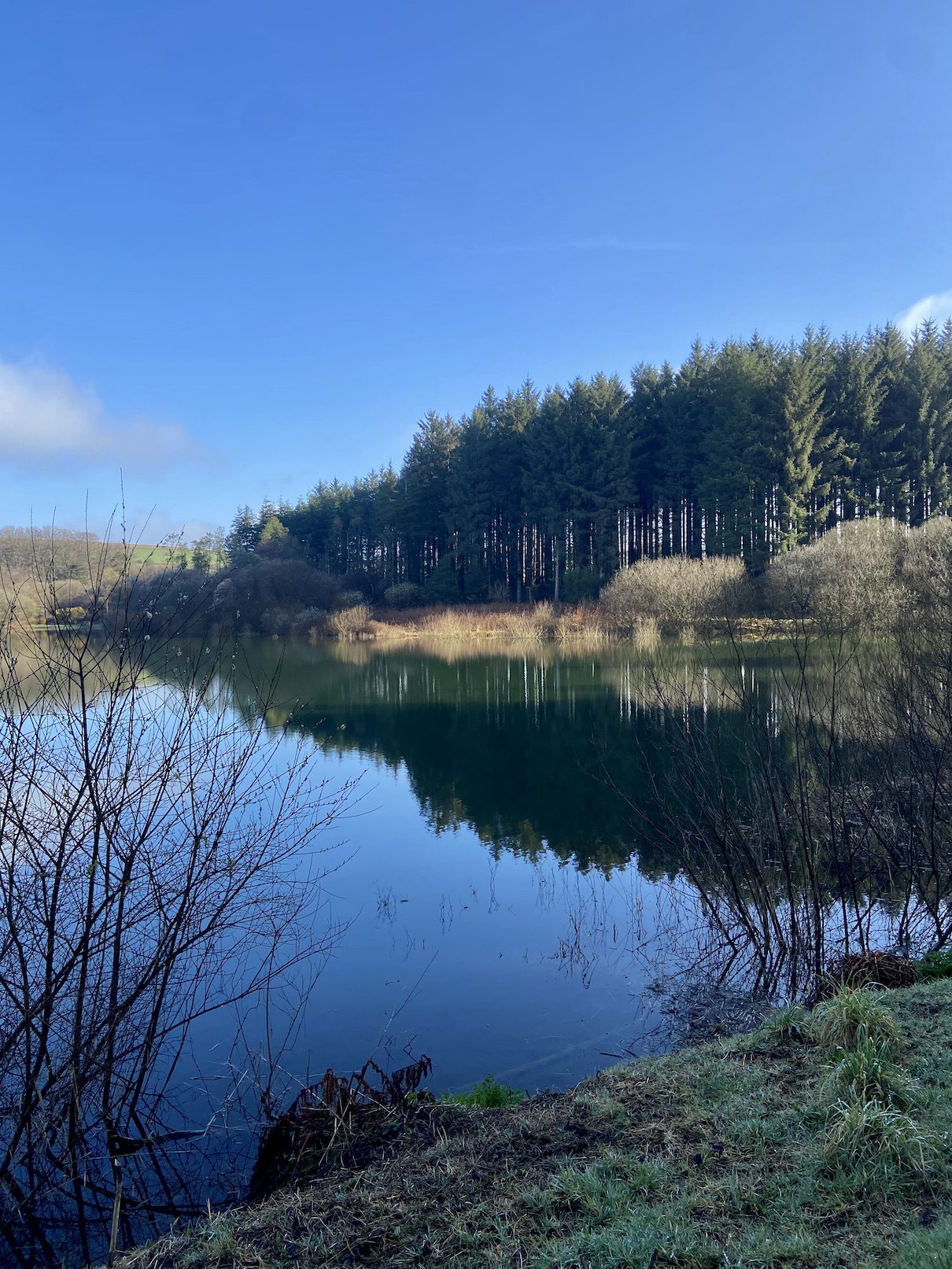
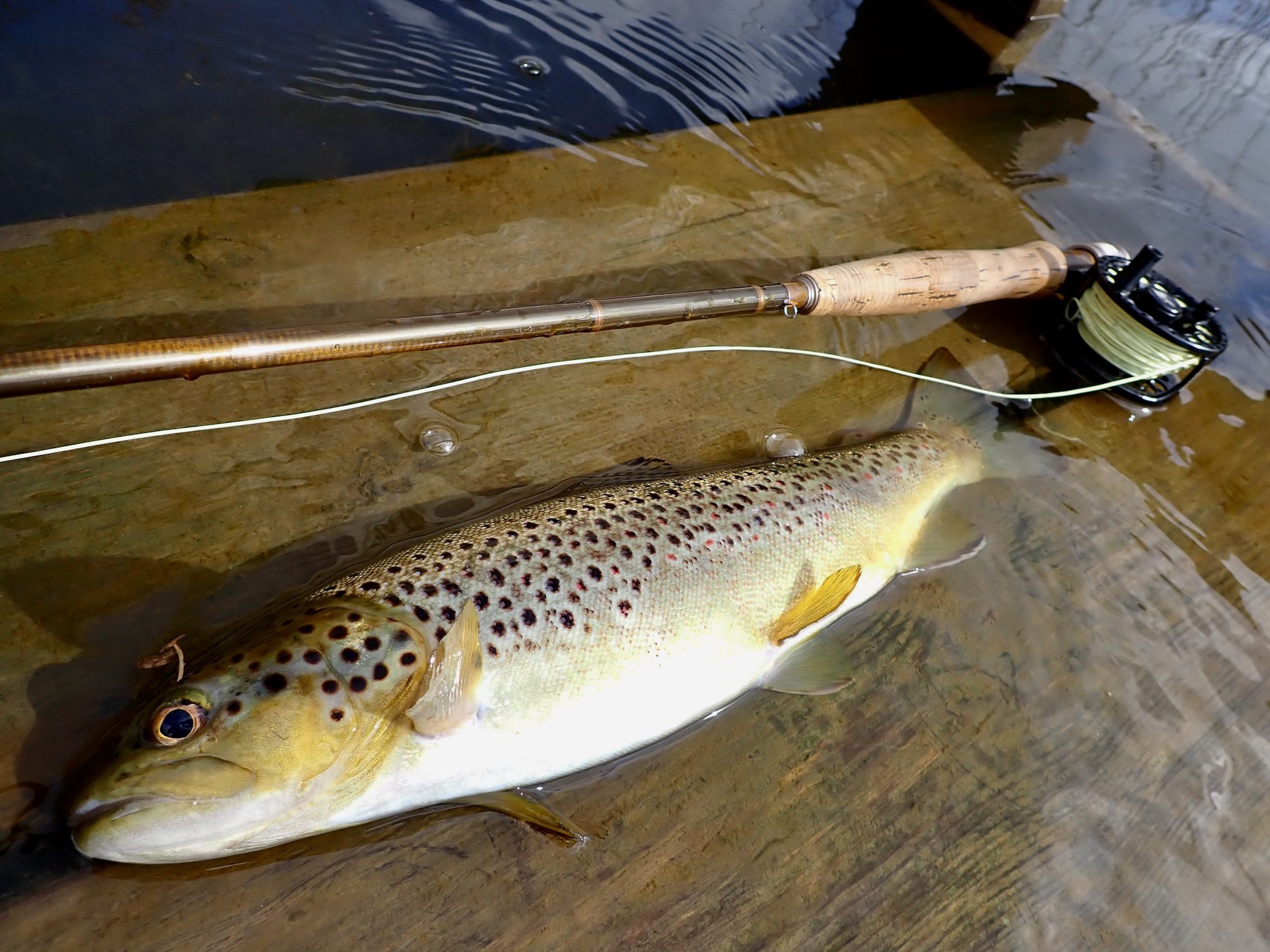
Please see South West Lakes’ website (www.swlakestrust.org.uk/trout-fishing) for more information on buying tickets, boat availability and booking, and forthcoming events.
Chris Hall (April 2023)
 The River Torridge fishing community gathered at the Half Moon Inn at Sheepwash for the AGM of the River Torridge Fishery Association. Pauline and I always enjoy the twice yearly coming together of the membership for the AGM in the Spring and the annual fund raising dinner at the seasons close at the end of September.
The River Torridge fishing community gathered at the Half Moon Inn at Sheepwash for the AGM of the River Torridge Fishery Association. Pauline and I always enjoy the twice yearly coming together of the membership for the AGM in the Spring and the annual fund raising dinner at the seasons close at the end of September.
The Inn was reassuringly busy as we stepped inside the familiar bar where many members of the association were catching up on all the latest news. After half an hour of rekindling friendships and fostering new ones it was time to head the meeting room for the formal proceedings to begin.
As with many angling clubs the River Torridge Fishery Association’s officers are long standing stalwarts with Secretary and treasurer Charles Inniss and Chairman Paul Ashworth controlling the meeting with an ease born from long experience in their roles.
Thanks to Charles for the below summary:=
“Over 30 members attended the agm on Friday 24th March. The Chairman announced that for personal reasons the North Devon Fishery Protection Officer had been transferred to work nearer his family home. The EA were currently interviewing for a replacement to the vacancy. The EA proposals for the mandatory release of salmon throughout the season had been deferred for twelve months. Members were keen for the hatchery project to continue and several members offered their support. Izzy Moser gave an interesting and informative talk on the work of The Devon Wildlife Trust, particularly the pros and cons of the inevitable spread of beavers into the headwaters of the Torridge catchment. After the meeting The Half Moon provided an excellent buffet.”
I would suggest that any anglers who fish the Torridge join the association and help support sterling efforts to protect the river for future generations. Subscription is just £20 per year. For details visit their website http://www.rivertorridge.org.uk
The report from 2022 was very concerning with the drought conditions resulting in perhaps the worst salmon season in living memory. A total of 15 salmon were landed from the river all of which were returned.
Fortunately, as I write this the rivers are brimming full last summer’s drought seems long ago. However, Roadford Reservoir is still at only 62% and Colliford in Cornwall 47%. In the Spring of 2022 these reservoirs were close to 100%. It doesn’t take a genius to conclude that another drought summer would have serious consequences. There is concern that South West Water would be forced to consider abstracting from the regions rivers an act that would be devastating for the rivers eco systems. Discussion reflected upon the apparent lack of water resource planning with no significant reservoirs constructed since Roadford in 1989. A new reservoir takes many years to come into being with years of consultation, planning and construction my own estimate would be at least 25 years before a new reservoir could be completed. One has to question why with an increasing population and climate change at the top of the agenda this is not happening?
The Associations Hatchery has been an ongoing project that unites the membership. The past few seasons have seen the project stalled by COVID and issues with permissions from the EA ,largely around risk assessments and health and safety concerns. The committee are working hard to progress with significant help and expertise from within the angling community many of whom bring skills from their roles within society.
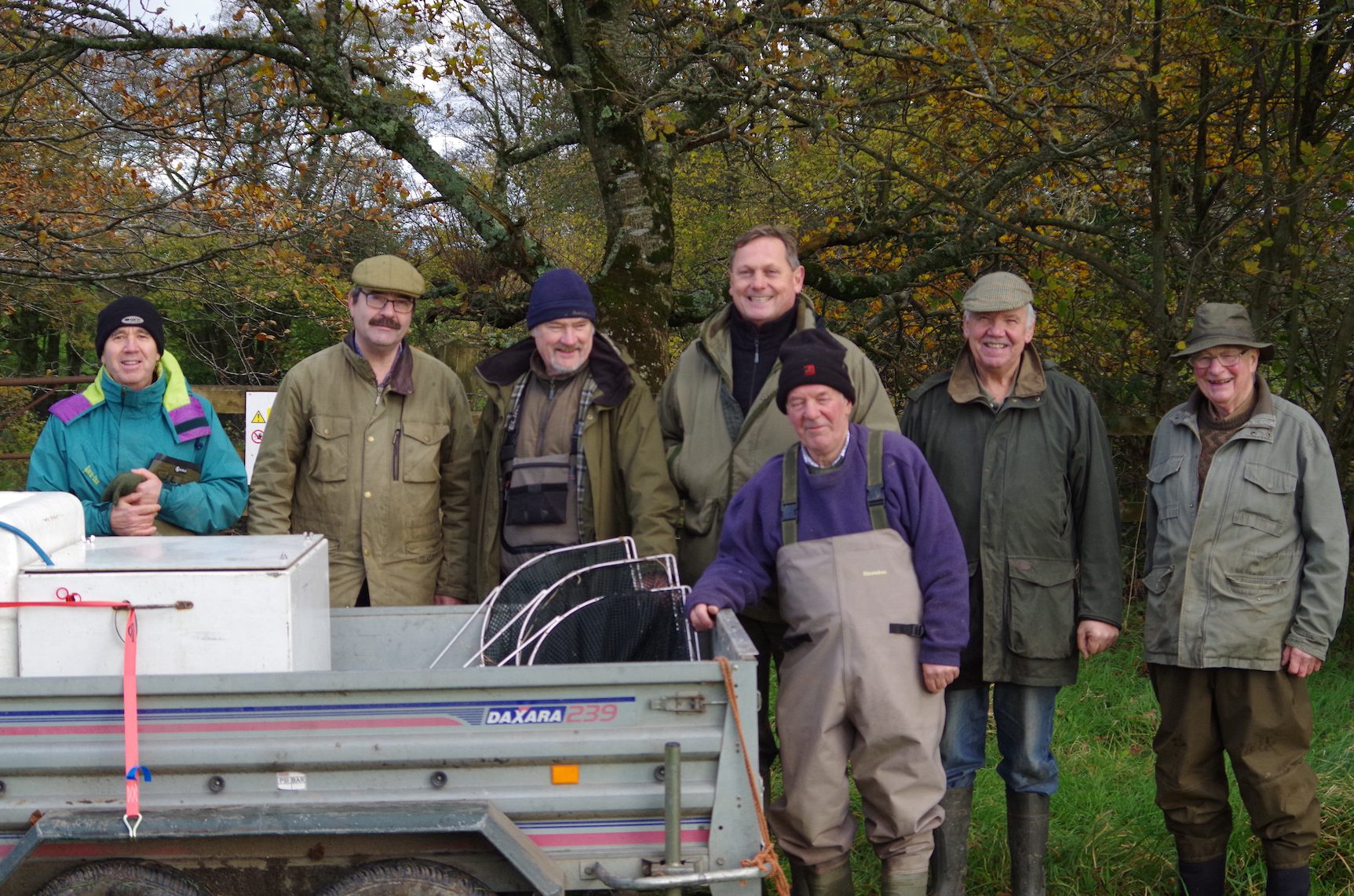
The decline in salmon and sea trout stocks is alarming and many feel that the hatcheries are the only hope for slowing this decline. The EA hatchery at Colliford is to be an integral part of the future plans to rear ova to swim up fry stage. This hatchery has the facilities to enable essential temperature control a major problem for salmonoids as global warming takes a hold.
It is of course essential that the habitat into which these future salmon are stocked is suitable. The Torridge faces many challenges with intensive farming resulting in pollution from sediment and nutrients and sewage discharge resulting in further issues with phosphate levels that promote algal growth.
The Torridge River Association are working closely with the Devon Wildlife Trust and the West Country Rivers Trust to seek solutions to many of the issues. Guest speaker Izzy Moser delivered an inspiring illustrated talk on projects to restore the river and the environment. These include slow the flow initiatives like leaky dams, meandering river courses, gravel introduction and creation of wild flower meadows and wetlands. The introduction of beavers was discussed with some concerns about their impact on fish migration and woodland.
https://www.devonwildlifetrust.org/northern-devon-natural-solutions
There was considerable interest in Citizen Science Monitoring to flag up any pollution incidents and to assess the ongoing health of the river. River Fly Monitoring has also proven to be a valuable tool in tracking keystone species. Data gathering is essential in tracking success in any projects in our rivers.
Invasive species are an ongoing concern with signal crayfish reported from several locations along the Torridge. Any sightings should be reported to the Devon Wildlife Trust.
A good news story on the Torridge is the healthy population of wild brown trout that were caught in good numbers last season with wild fish to over 4lb caught and released. Dry fly tactics also resulted in several good sea trout. With dwindling salmon numbers many feel that the future of the rivers angling very much lies with trout fishing that I hope to promote over the coming season.
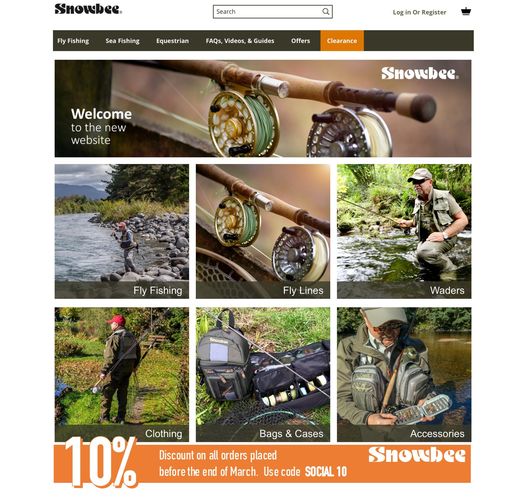
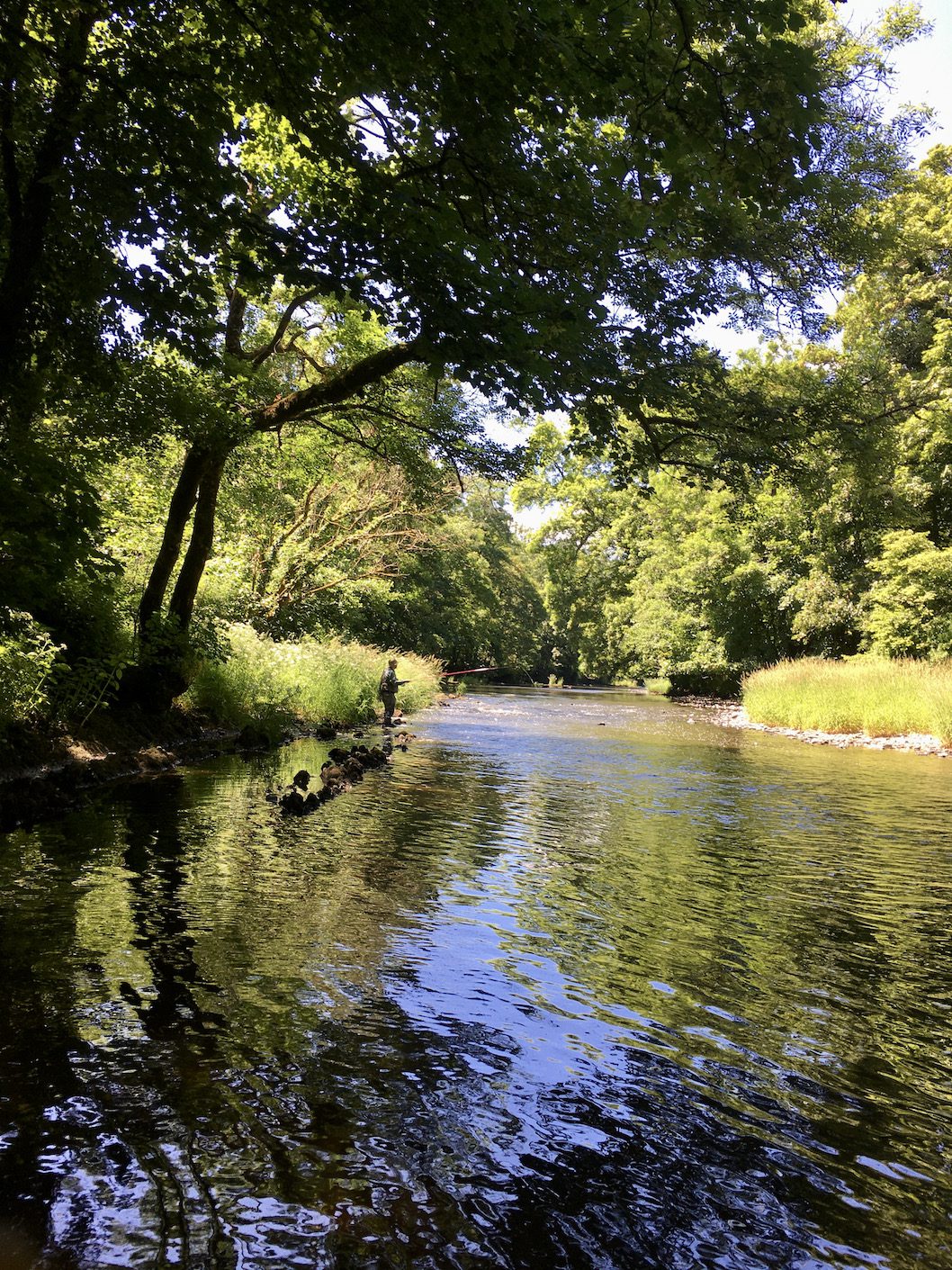

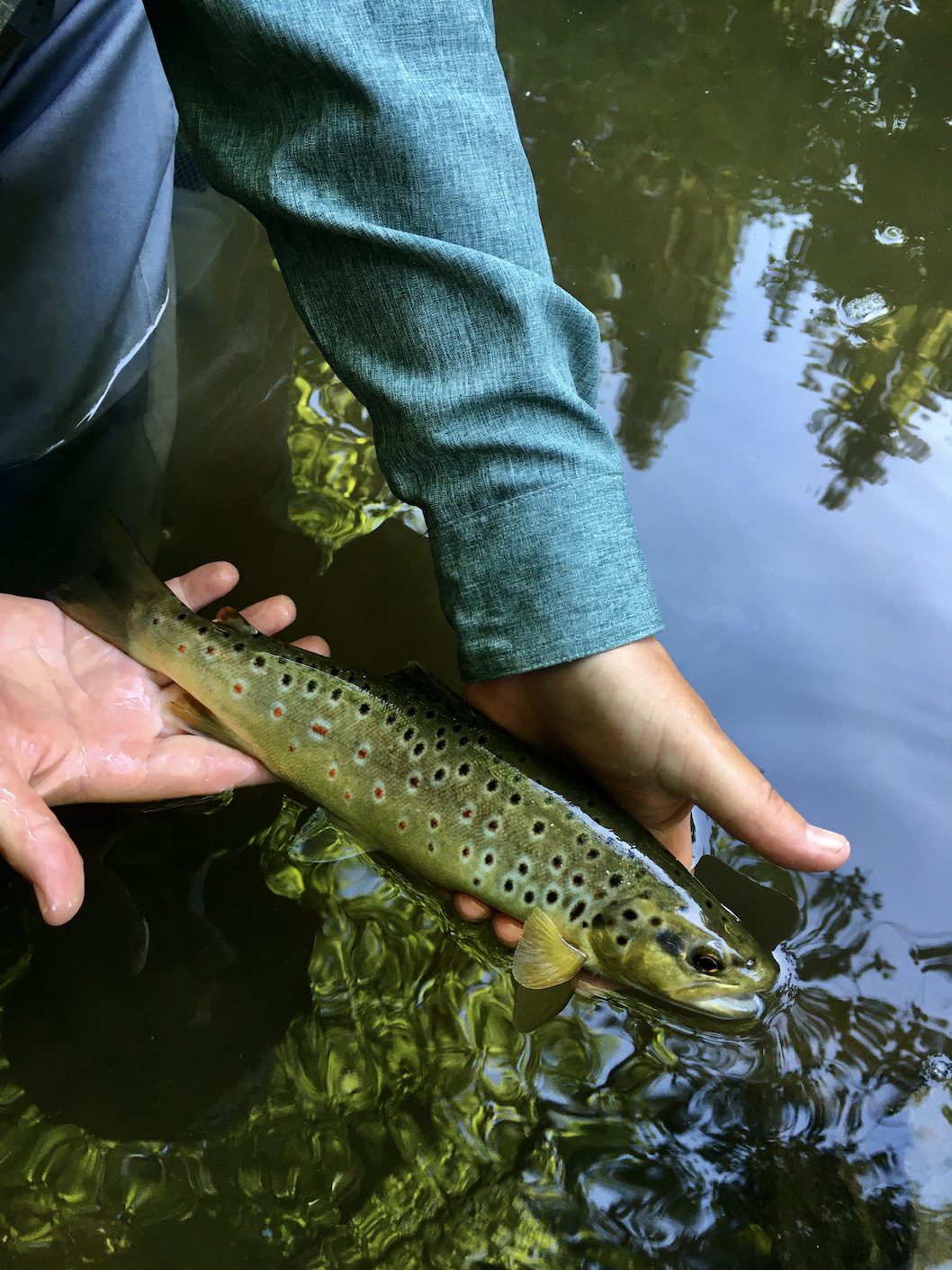
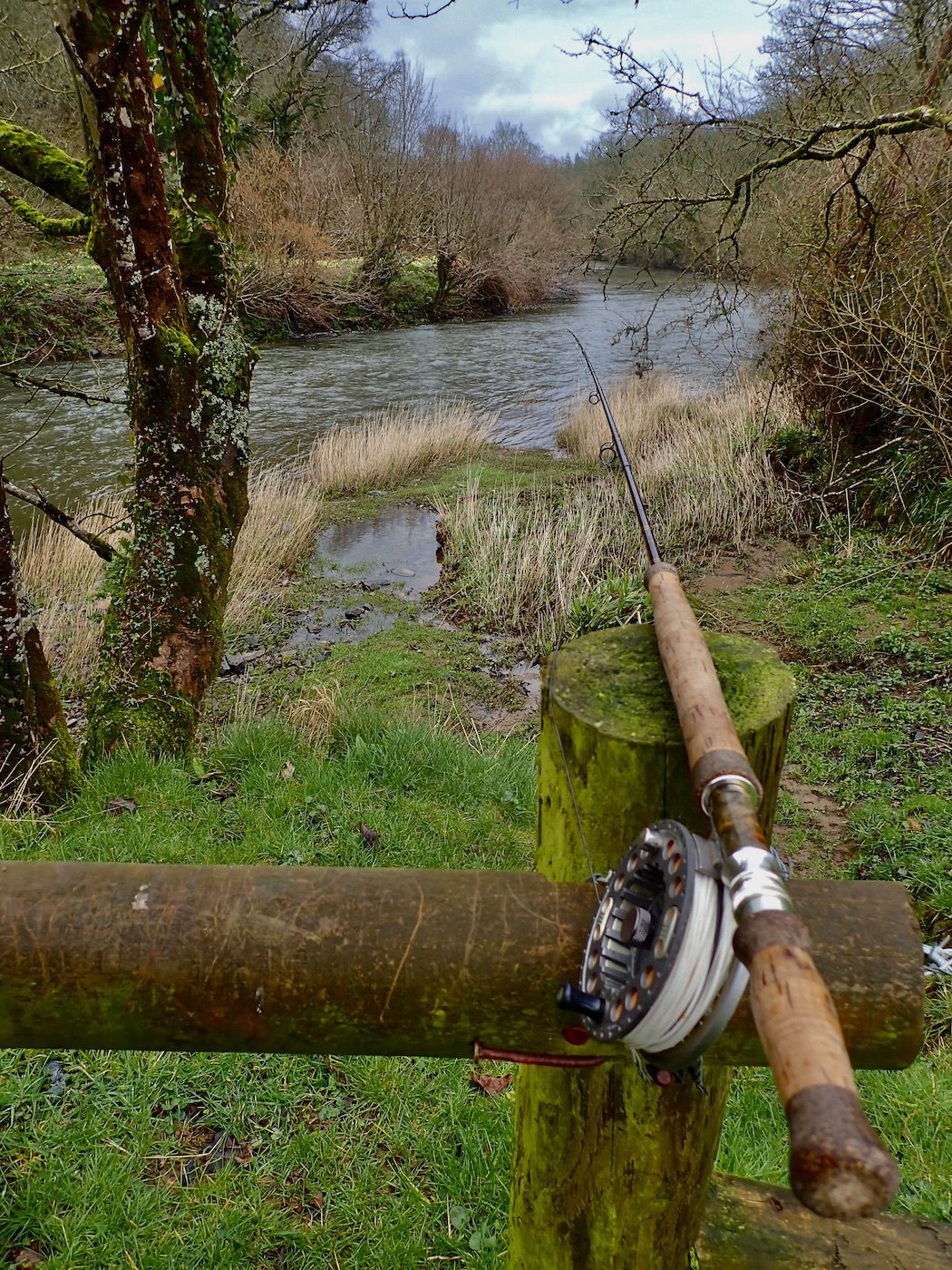 Hard to believe that three weeks of the 2023 salmon season have passed already. The first few days of the season saw rivers running low and clear with numerous kelt’s tempted by anglers fishing the lower Taw. There were rumoured to be a couple of fresh springers tempted but I have not actually seen any pictures of such fish.
Hard to believe that three weeks of the 2023 salmon season have passed already. The first few days of the season saw rivers running low and clear with numerous kelt’s tempted by anglers fishing the lower Taw. There were rumoured to be a couple of fresh springers tempted but I have not actually seen any pictures of such fish.
Heavy spells of rain have brought the Taw and Torridge up and a couple of weeks have seen both rivers virtually unfishable. I set out today for my first visit to the Middle Torridge.
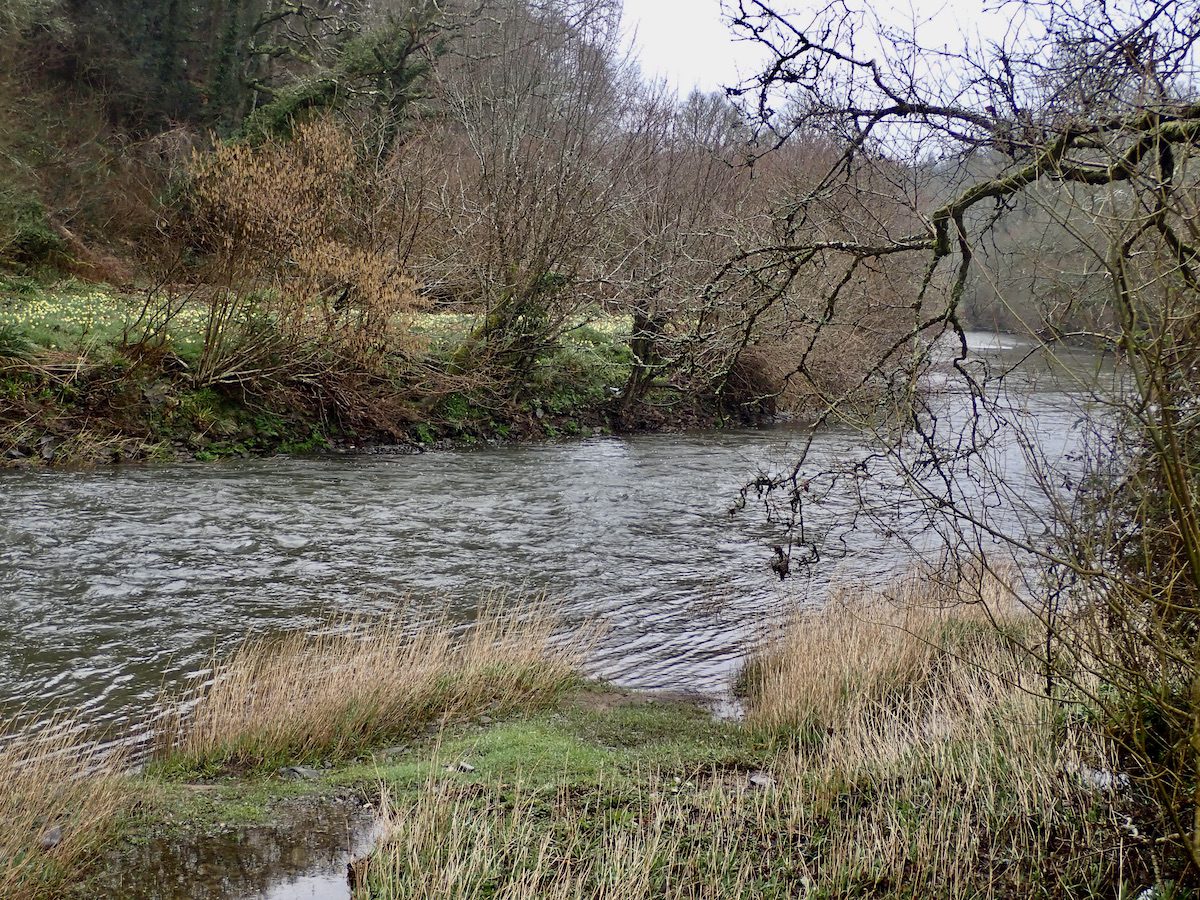
The river was running higher than ideal but clarity was good with a perfect tinge of colour. If any salmon were present I felt there would be a chance. Salmon are scarce these days and expectation is not as heightened as it once was. Despite this we fish on in hope and drift flies across those old lies where the line has tightened in the past.


After a couple of drifts across the river the line zipped tight and it was good to feel life pulsing through the rod and line. A pleasing brown trout of close to 1lb had siezed the salmon fly.
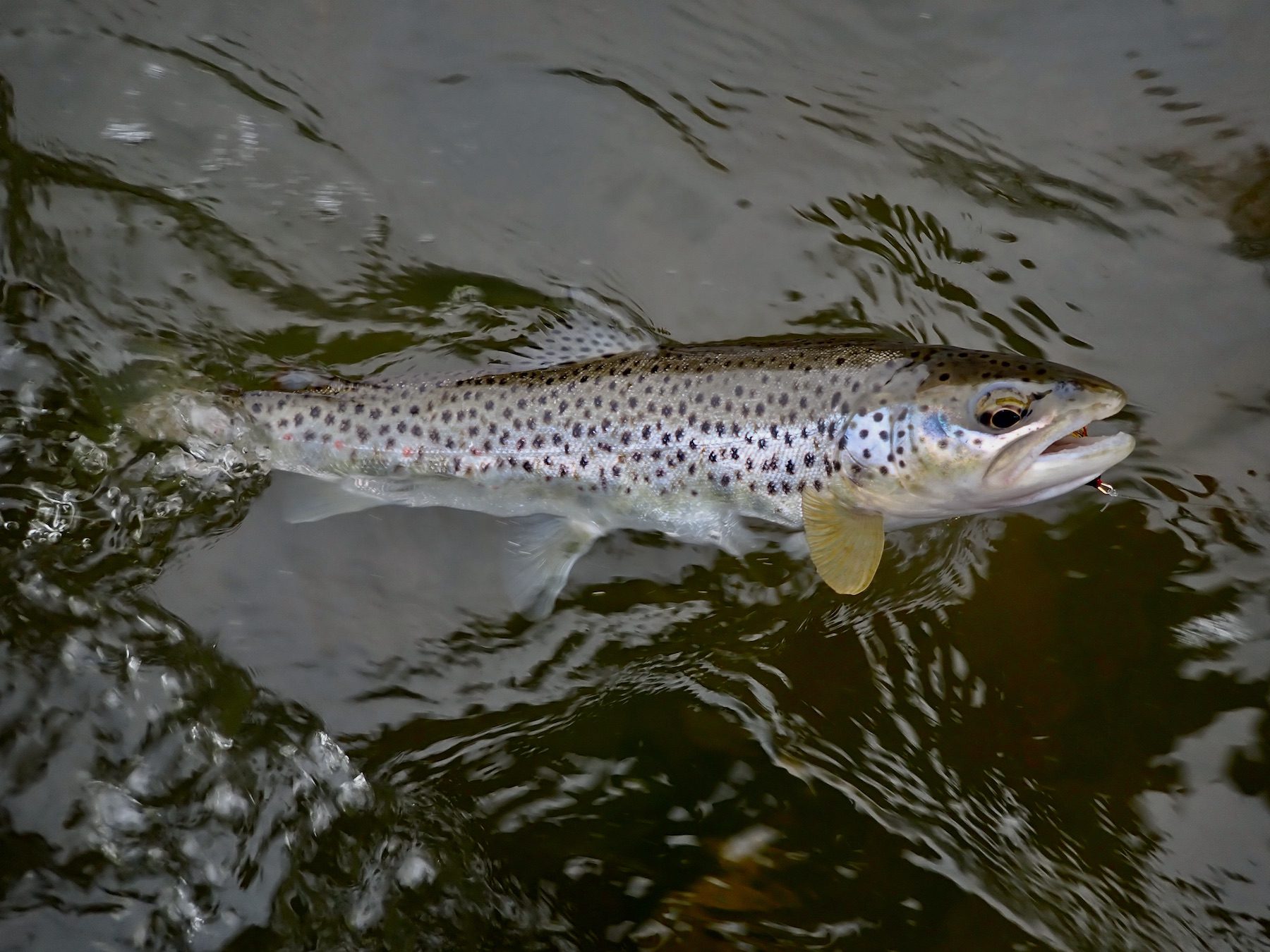
Steady rain was falling as I reacquainted myself with the river. It was good to be back once again on the river bank. The yellow splash of colour from primrose and daffodil telling that spring was here. Catkins and pussy willow decorated the riverside trees.
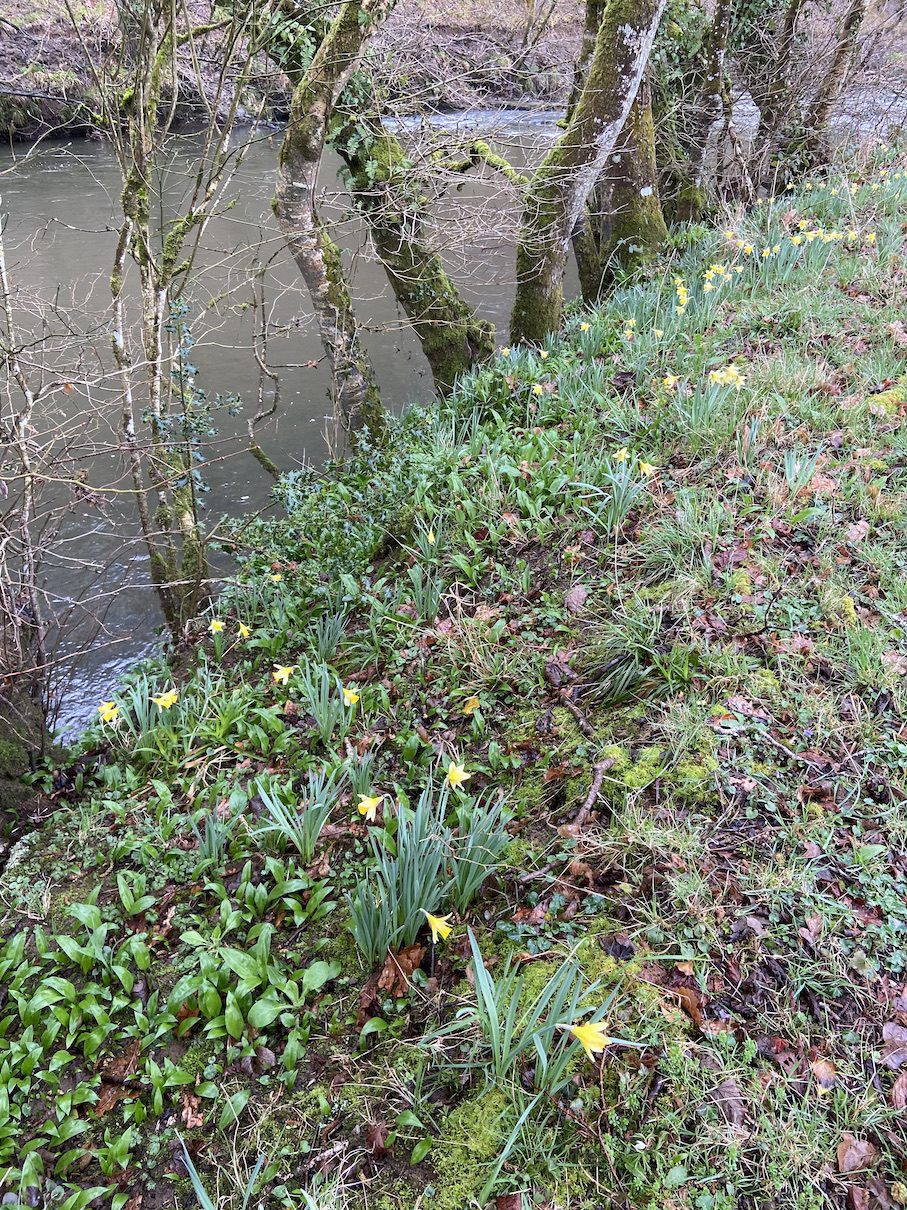
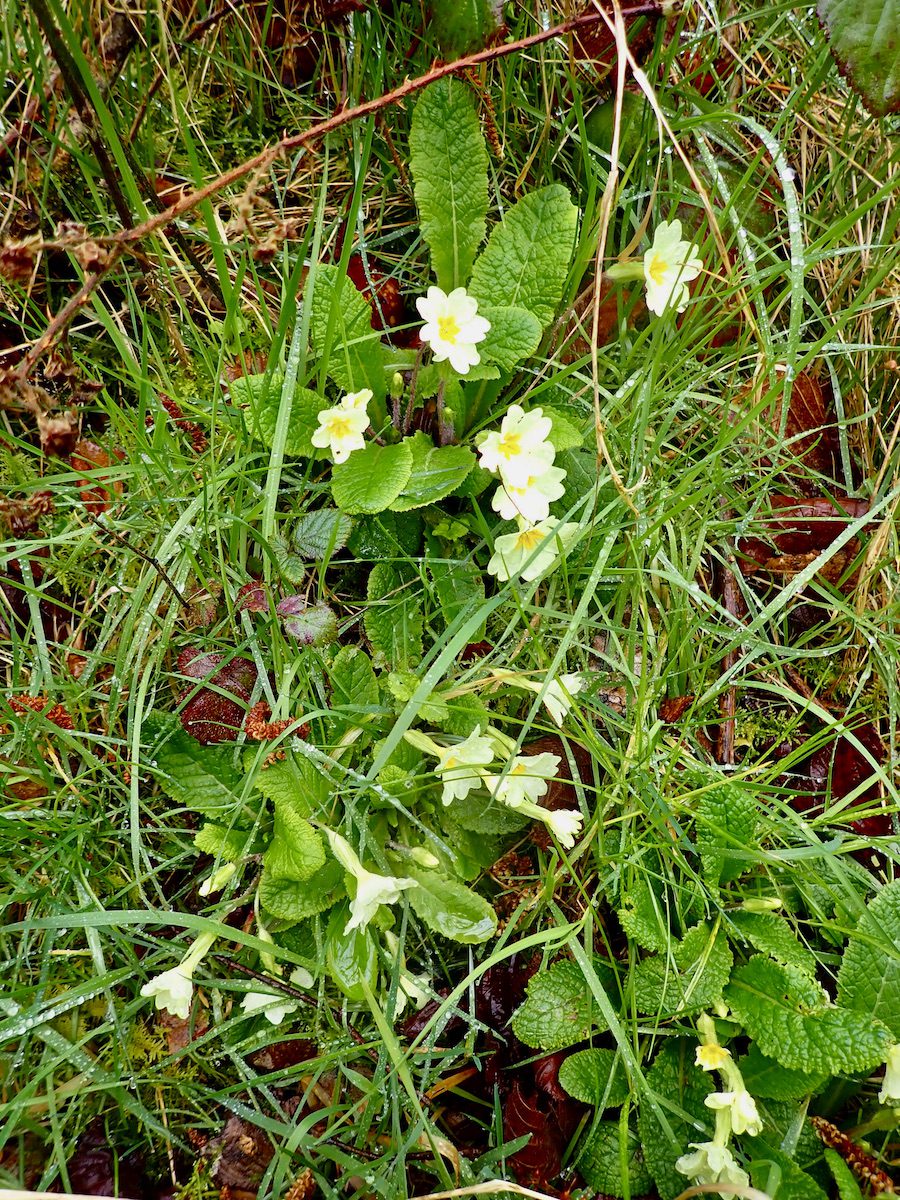
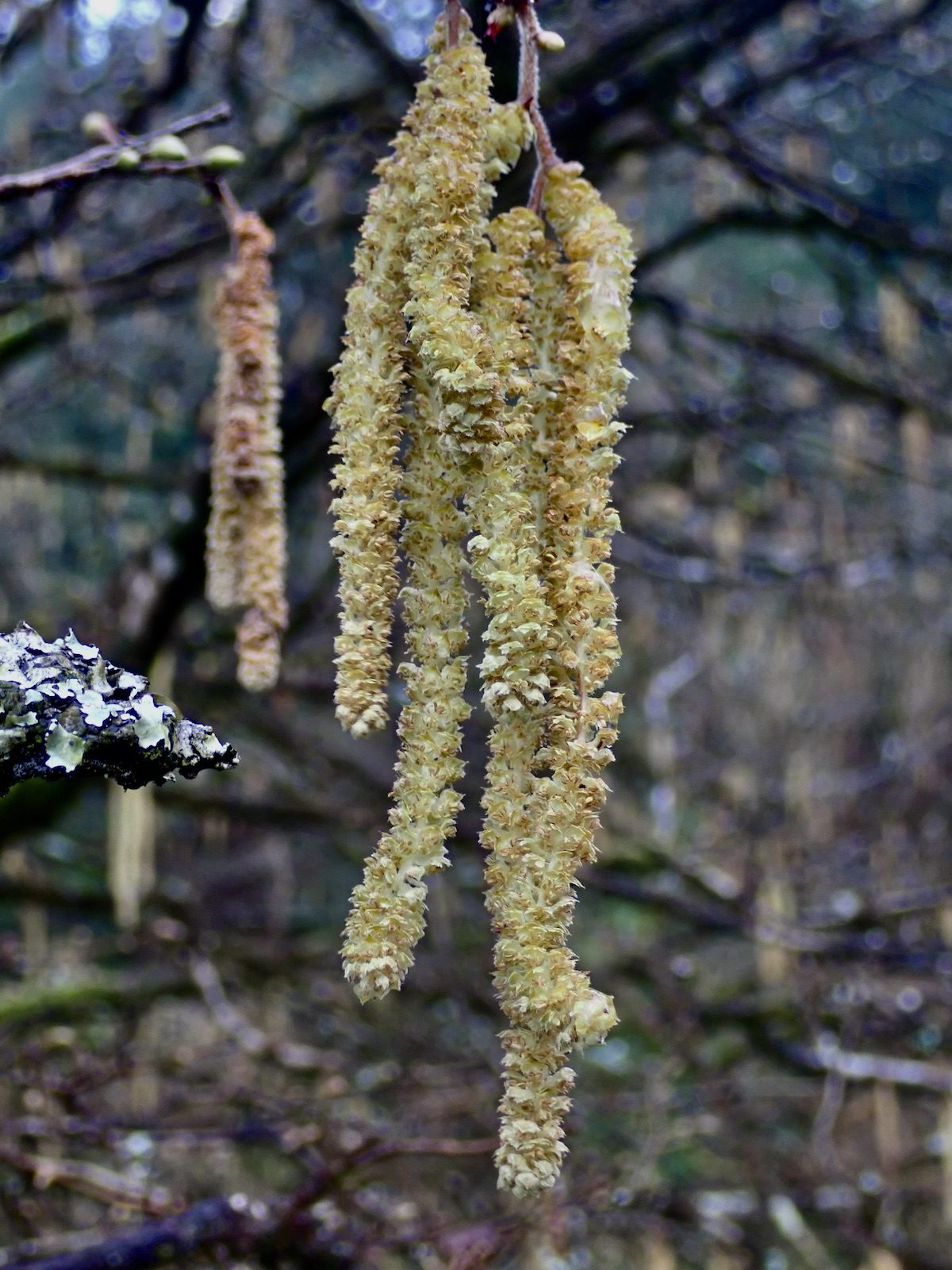
Pheasants broke cover occasionally startling me as they fled, mallards flew up from the river and buzzards mewed high above the trees.
All seemed as it should yet I couldn’t help but reflect on the depressing words of the ghillie who spoke of the dying river Wye on the BBCs Country file. The Wye that borders England was once one of the country’s greatest salmon rivers, today it is dying as a result of pollution and climate change.
The Taw, Torridge and most South West rivers are suffering a similar fate. It is sad that we could be the last generation to enjoy the privilege of fishing for the Atlantic salmon.
With this in mind I savour each cast hopeful that I might once again connect with that iconic silver bar.
FISHING A NEW WATER – Cheddar
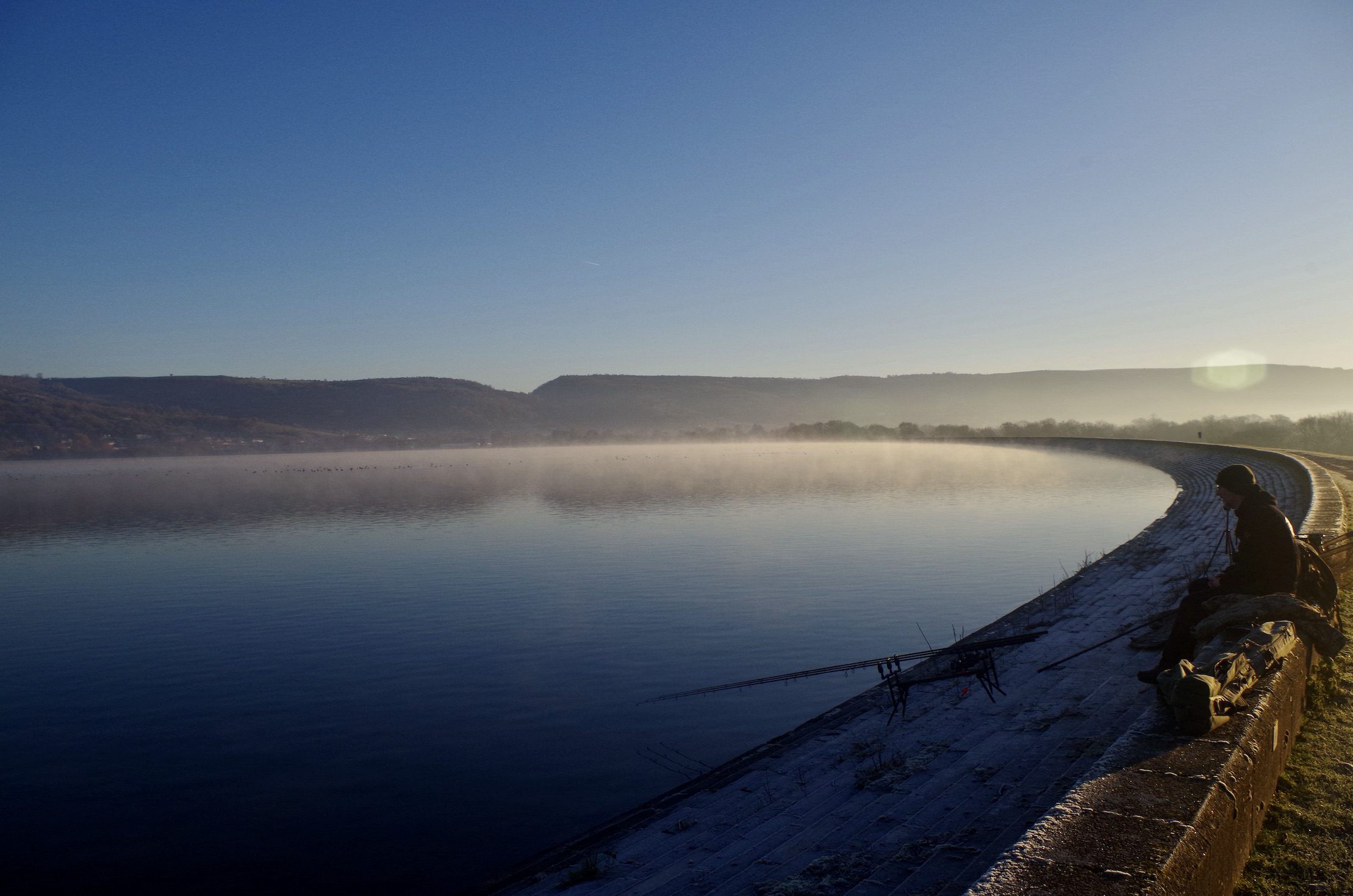
Tackle shops can often be the start of angling adventures as was the case when I was chatting with Mark Potter of Quay Sports. When Cheddar Reservoir popped up in a conversation about pike fishing Mark asked if I had ever fished the venue. I hadn’t but said it was a venue I have often wanted to try.
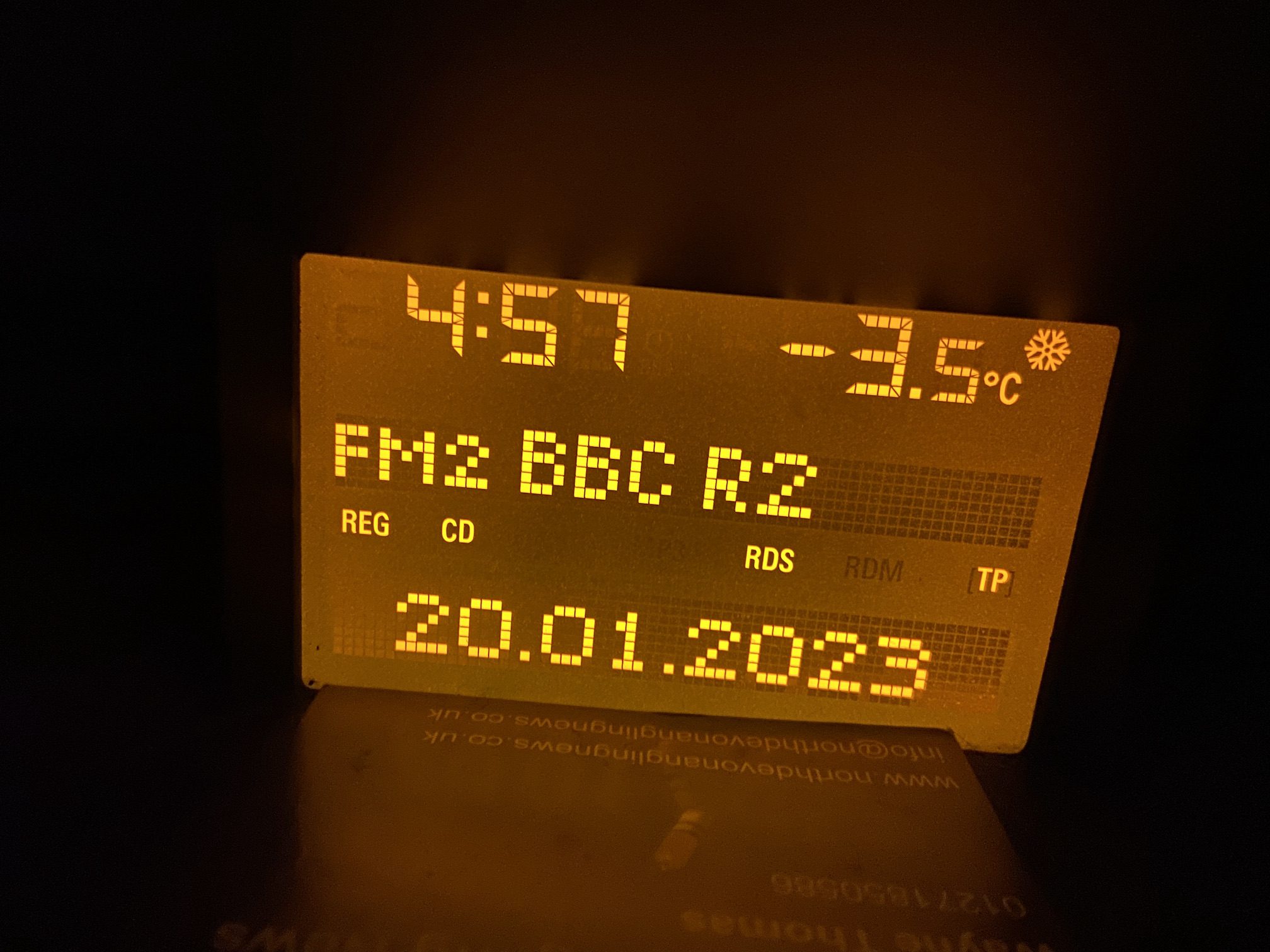
A few weeks later I started the car as the temperature read -3.5 degrees. After clearing icy windows I traversed the slippery roads to meet up at Quay Sports where Mark Potter, Mark Frith ( Lakebed leads) and I loaded the van with our tackle for the day.
We arrived at Cheddar reservoir as the sun slowly illuminated the frosty landscape. We met up with Ryan turner a good friend of Marks who had caught pike from the reservoir on previous trips.
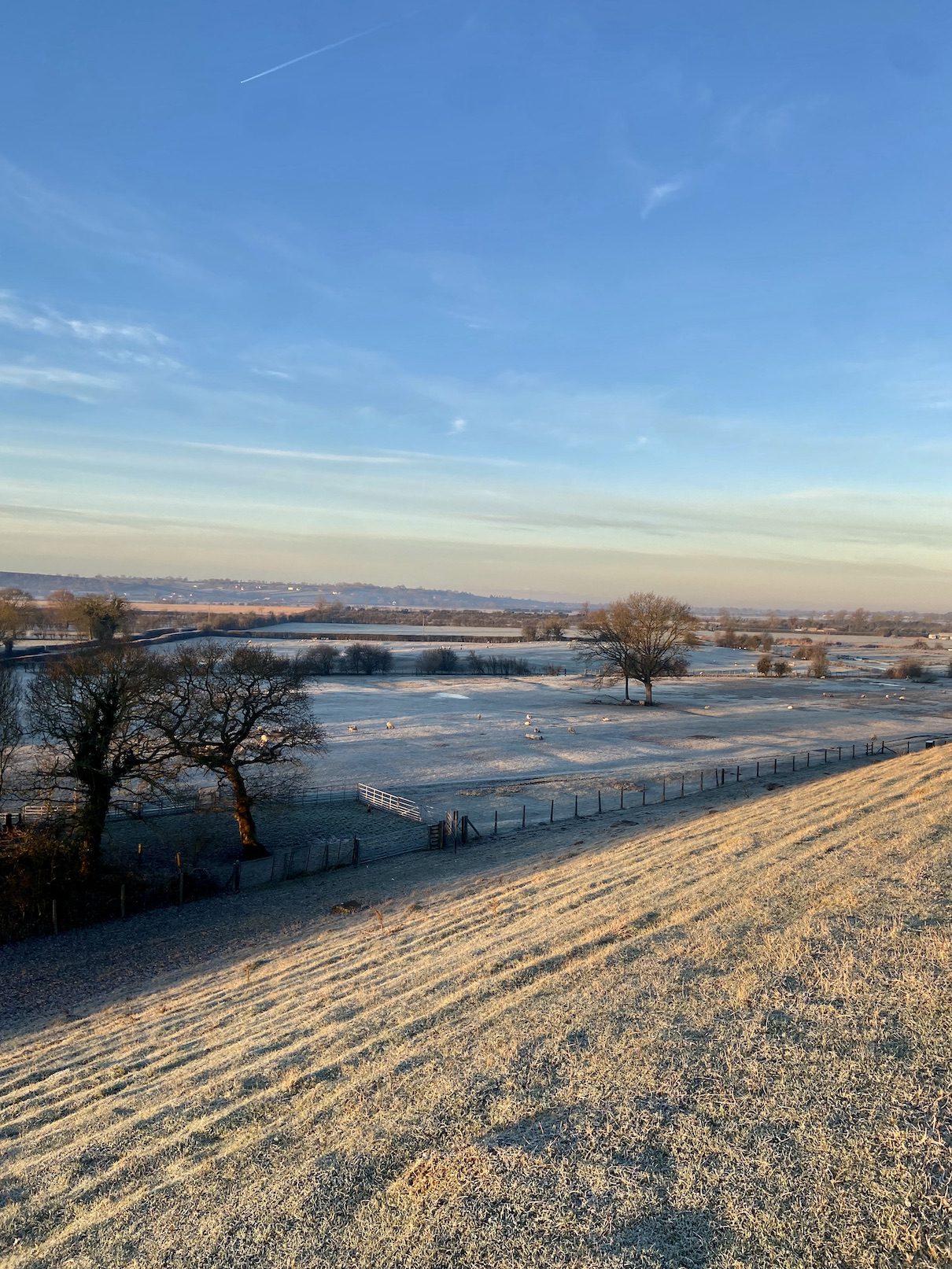
Cheddar Reservoir is a manmade concrete bowl completed in 1937 with a surface area of 260 acres. It is one of Bristol Waters reservoirs with the fishing managed by Cheddar Angling Club.
We were targeting the venues pike and headed for a deep area of the reservoir known to produce pike on a regular basis. Rod pods are essential for fishing from the concrete steps that surround the water and were coated with ice as we set up.
Dead-baits were the chosen tactic with some of us opting for legered baits others choosing the pleasing crimson of a pike float upon the water. Popped up baits are considered a good option on this water that has extensive areas of weed.
After casting an array of bait’s, we sat back to enjoy the view as the sun slowly rose in the sky. The Somerset levels stretched out to the South and East and the Mendip Hills and the famous Cheddar Gorge to the North. The vast sheet of water twinkled in the morning sun and large flocks of water birds floated upon the calm surface.
Ryan Turner said that it was very much a morning water and we were all full of optimism for the day ahead. Any moment an alarm would surely sing out the question was how big would the pike be? On checking my set up I was slightly concerned to find the line frozen solid in the rod rings! A quick tug on the line every five minutes ensured that it was kept free until the rising sun brought the temperature above freezing.
As the sun rose the dog walkers, strollers and joggers came out in good numbers circum-navigating the lake and glancing at the camouflaged guys sat expectantly behind their rods.
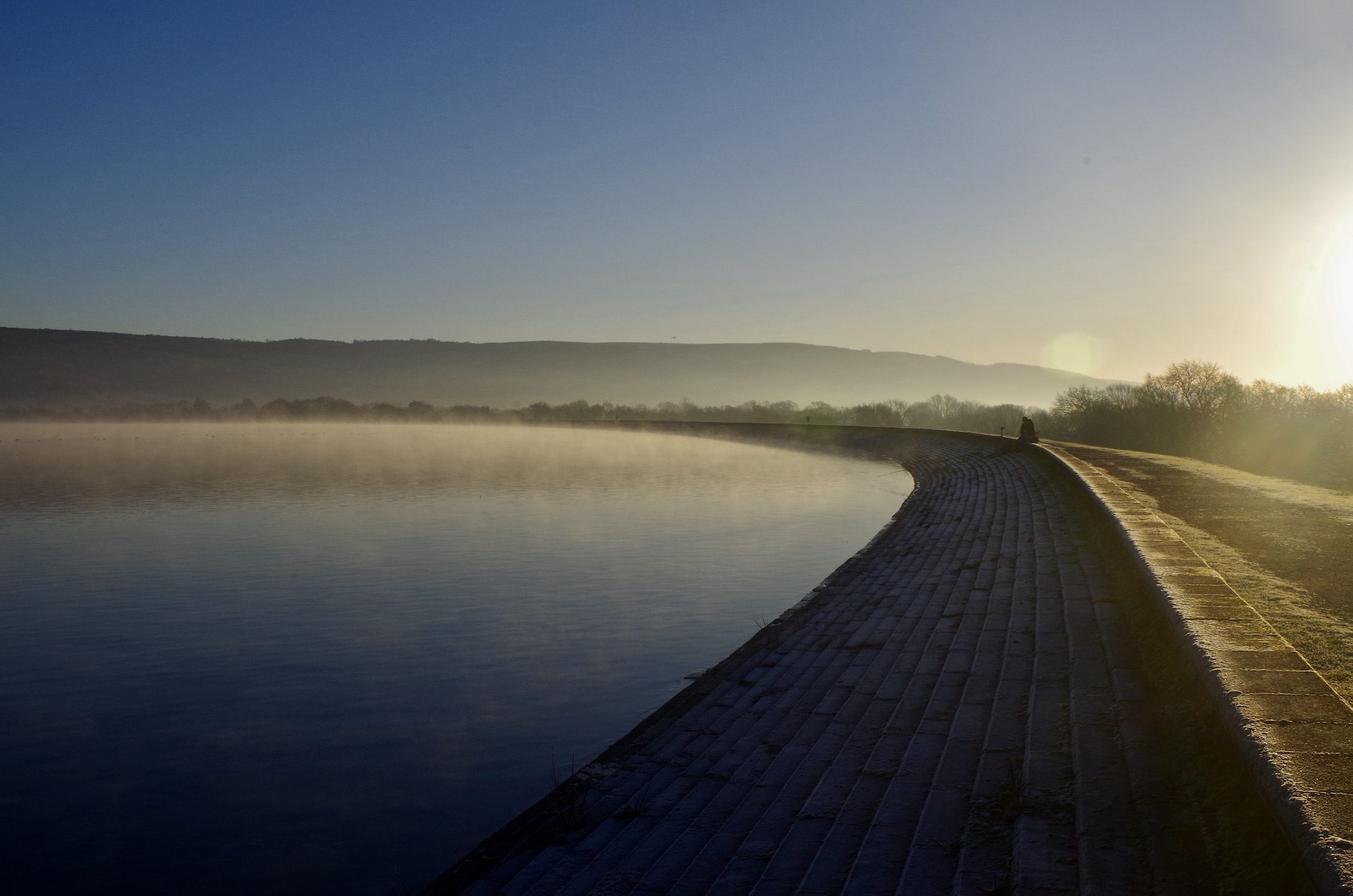
We chatted of fish, fishing venues of tactics and of past glories. Mark Frith has fished North Devon waters for many years and has many reflections on past days beside the water and the potential to catch a wide range of species. Modern days focus upon carp fishing has resulted in many of today’s generation overlooking the chance to catch specimen perch, eels and bream.
As the morning ebbed away it became obvious that the pike were not actively seeking a meal. Our hopes refocused upon a late in the day feeding spell as the light began to fade.
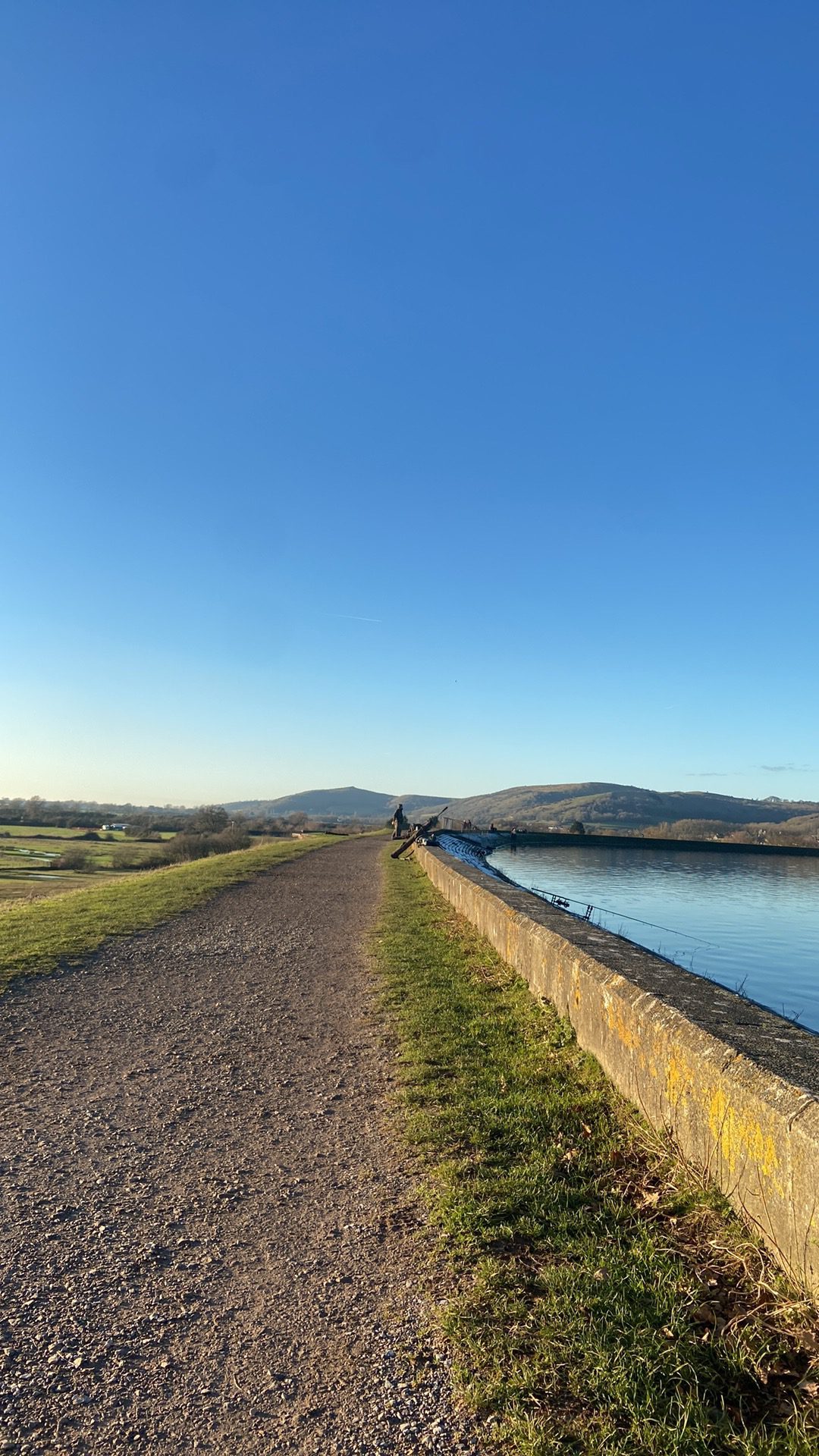
Baits were changed from time to time and relocated within our swims. We had decided on a sit and wait approach confident that pike would be present. At around 4.00pm Mark Friths alarm sounded and a small jack came to the net. Perhaps this would signal the start of a feeding spell?
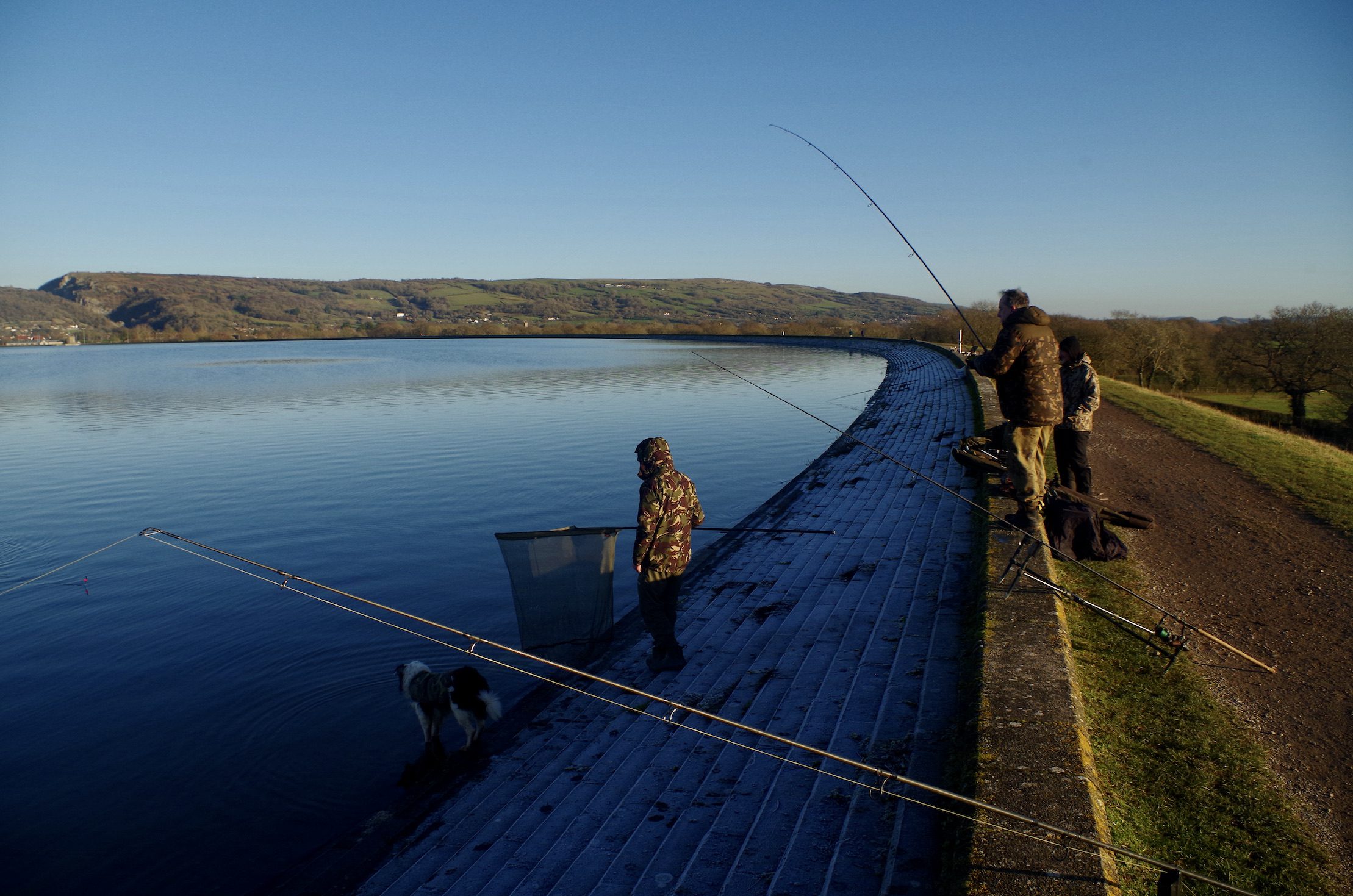
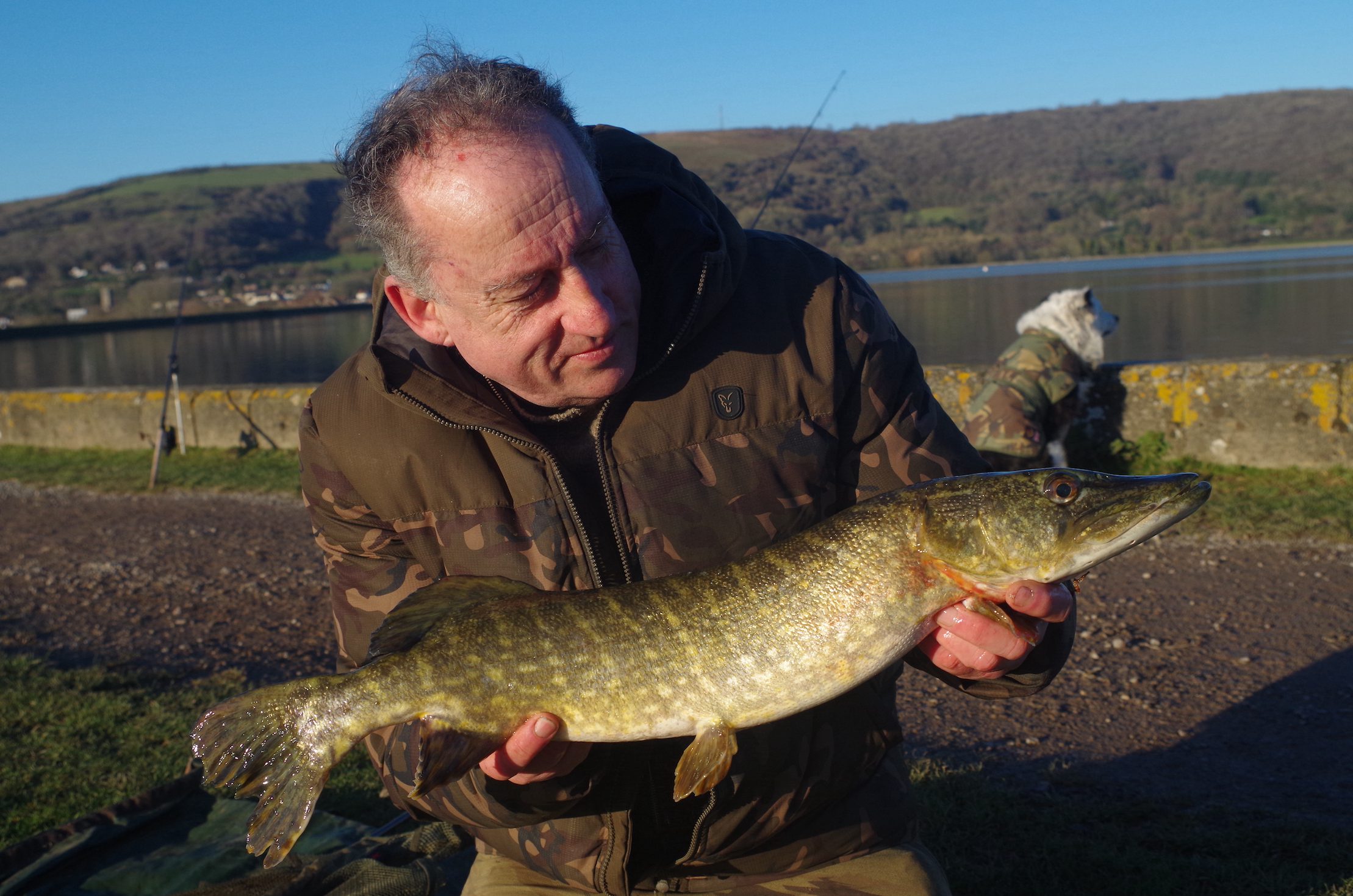
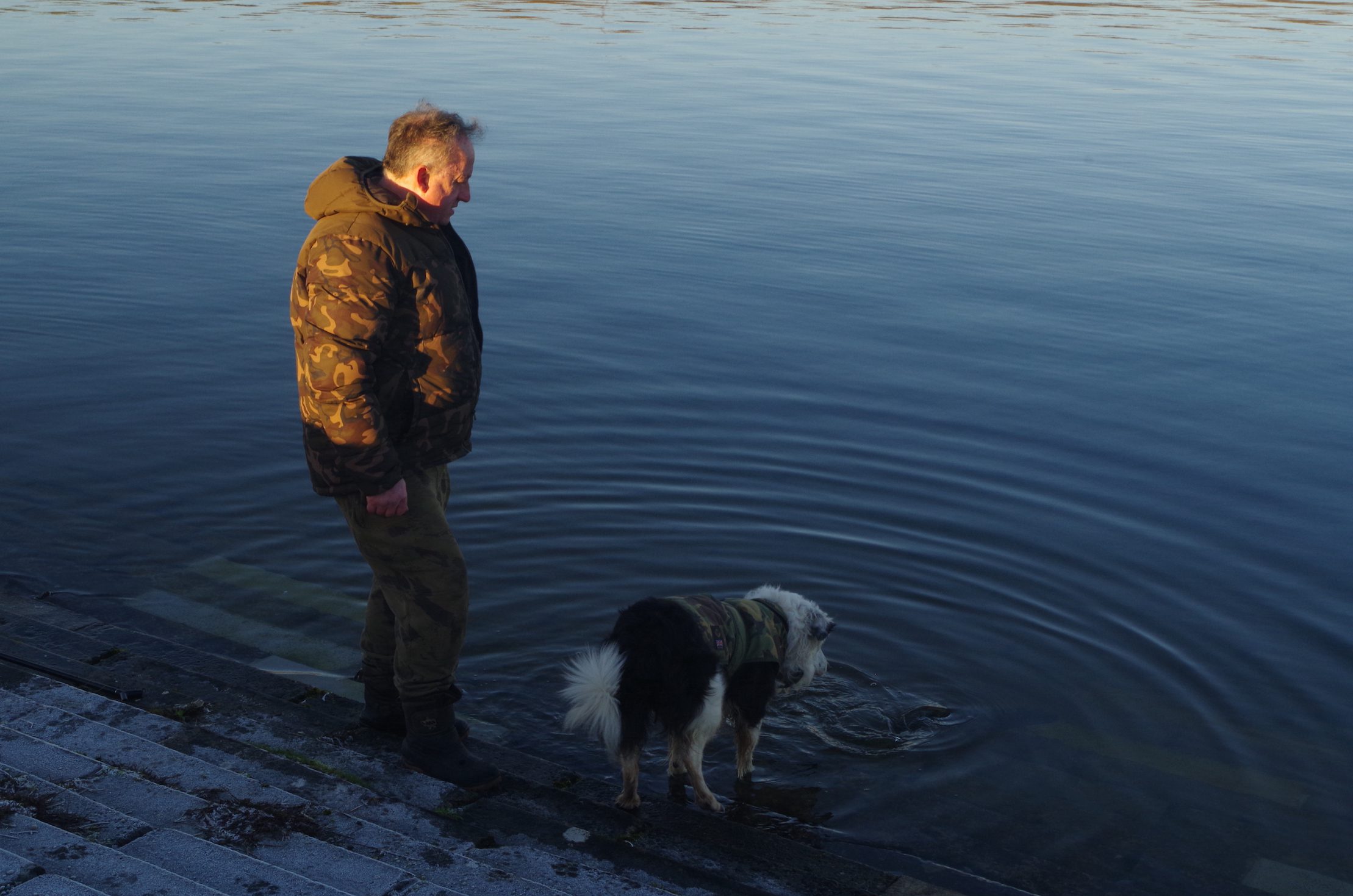
News that an angler fishing the far bank had caught three pike increased our hopes. He was using a bait boat and was placing his bait at long range. Perhaps the fish were too far out for us to reach?
The sun slowly sank to the horizon and the surroundings were illuminated by a golden glow. Large numbers of silver fish dimpled the surface with occasional large swirls indicating the likely presence of feeding predators. Hope lingered as the temperature began to drop along with the light.
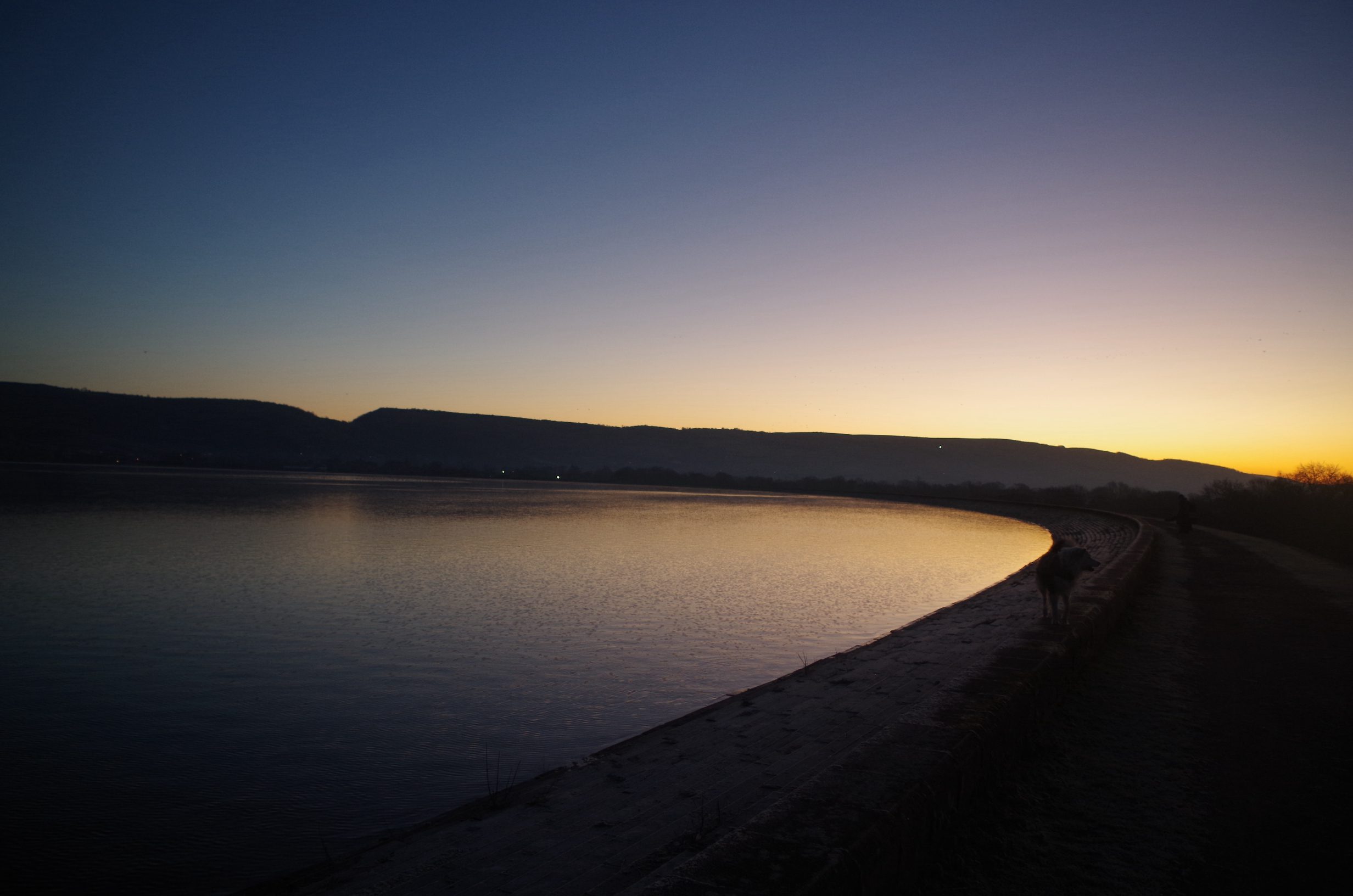
We packed away as darkness fell another day done. Ancient oaks were silhouetted against the embers of the day and the first stars blinked as night descended. The call of owls drifted across the fields and we headed for home. Despite a blank day for most of us our spirits were high as we discussed plans for the coming year and opportunities that would surely come our way.
